Frequent persons on Hungary's street signs
countries
468 names / 10684 streets
Lajos Kossuth
 1090
Lajos Kossuth de Udvard et Kossuthfalva was a Hungarian nobleman, lawyer, journalist, politician, statesman and governor-president of the Kingdom of Hungary during the revolution of 1848–1849.
1090
Lajos Kossuth de Udvard et Kossuthfalva was a Hungarian nobleman, lawyer, journalist, politician, statesman and governor-president of the Kingdom of Hungary during the revolution of 1848–1849.
Sándor Petőfi
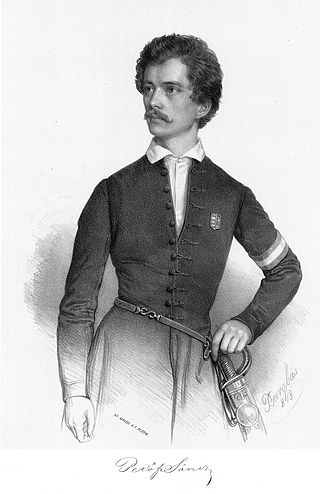 757
Sándor Petőfi was a Hungarian poet and liberal revolutionary. He is considered Hungary's national poet, and was one of the key figures of the Hungarian Revolution of 1848. He is the author of the...
757
Sándor Petőfi was a Hungarian poet and liberal revolutionary. He is considered Hungary's national poet, and was one of the key figures of the Hungarian Revolution of 1848. He is the author of the...
Francis II Rákóczi
 571
Francis II Rákóczi was a Hungarian nobleman and leader of Rákóczi's War of Independence against the Habsburgs in 1703–1711 as the prince of the Estates Confederated for Liberty of the Kingdom of...
571
Francis II Rákóczi was a Hungarian nobleman and leader of Rákóczi's War of Independence against the Habsburgs in 1703–1711 as the prince of the Estates Confederated for Liberty of the Kingdom of...
György Dózsa
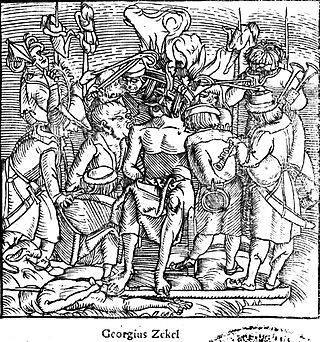 433
György Dózsa was a Székely man-at-arms from Transylvania, Kingdom of Hungary who led a peasants' revolt against the kingdom's landed nobility during the reign of King Vladislaus II of Hungary. The...
433
György Dózsa was a Székely man-at-arms from Transylvania, Kingdom of Hungary who led a peasants' revolt against the kingdom's landed nobility during the reign of King Vladislaus II of Hungary. The...
Endre Ady
 341
Endre Ady was a turn-of-the-century Hungarian poet and journalist. Regarded by many as the greatest Hungarian poet of the 20th century, he was noted for his steadfast belief in social progress and...
341
Endre Ady was a turn-of-the-century Hungarian poet and journalist. Regarded by many as the greatest Hungarian poet of the 20th century, he was noted for his steadfast belief in social progress and...
István Széchenyi
 297
Count István Széchenyi de Sárvár-Felsővidék was a Hungarian politician, political theorist, and writer. Widely considered one of the greatest statesmen in his nation's history, within Hungary he is...
297
Count István Széchenyi de Sárvár-Felsővidék was a Hungarian politician, political theorist, and writer. Widely considered one of the greatest statesmen in his nation's history, within Hungary he is...
János Arany
 267
János Arany was a Hungarian poet, writer, translator and journalist. He is often said to be the "Shakespeare of ballads" – he wrote more than 102 ballads that have been translated into over 50...
267
János Arany was a Hungarian poet, writer, translator and journalist. He is often said to be the "Shakespeare of ballads" – he wrote more than 102 ballads that have been translated into over 50...
Attila József
 249
Attila József was one of the most famous Hungarian poets of the 20th century. Generally not recognized during his lifetime, József was hailed during the communist era of the 1950s as Hungary's great...
249
Attila József was one of the most famous Hungarian poets of the 20th century. Generally not recognized during his lifetime, József was hailed during the communist era of the 1950s as Hungary's great...
Mór Jókai
 245
Móricz Jókay of Ásva, known as Mór Jókai, was a Hungarian novelist, dramatist and revolutionary. Outside of Hungary, he was also known as Maurice Jókai or Maurus Jokai or Mauritius Jókai. He was a...
245
Móricz Jókay of Ásva, known as Mór Jókai, was a Hungarian novelist, dramatist and revolutionary. Outside of Hungary, he was also known as Maurice Jókai or Maurus Jokai or Mauritius Jókai. He was a...
Árpád
 230
Árpád was the head of the confederation of the Magyar tribes at the turn of the 9th and 10th centuries. He might have been either the sacred ruler or kende of the Hungarians, or their military leader...
230
Árpád was the head of the confederation of the Magyar tribes at the turn of the 9th and 10th centuries. He might have been either the sacred ruler or kende of the Hungarians, or their military leader...
Mihály Táncsics
 229
Mihály Táncsics was a Hungarian writer, teacher, journalist and politician.
229
Mihály Táncsics was a Hungarian writer, teacher, journalist and politician.
John Hunyadi
 219
John Hunyadi was a leading Hungarian military and political figure in the Kingdom of Hungary during the 15th century. According to most contemporary sources, he was the member of a noble family of...
219
John Hunyadi was a leading Hungarian military and political figure in the Kingdom of Hungary during the 15th century. According to most contemporary sources, he was the member of a noble family of...
Stephen I of Hungary
 187
Stephen I, also known as King Saint Stephen, was the last Grand Prince of the Hungarians between 997 and 1000 or 1001, and the first King of Hungary from 1000 or 1001, until his death in 1038. The...
187
Stephen I, also known as King Saint Stephen, was the last Grand Prince of the Hungarians between 997 and 1000 or 1001, and the first King of Hungary from 1000 or 1001, until his death in 1038. The...
Miklós Zrínyi
 179
Miklós Zrínyi was a Croatian and Hungarian military leader, statesman and poet. He was a member of the House of Zrinski, a Croatian-Hungarian noble family. He is the author of the first epic poem,...
179
Miklós Zrínyi was a Croatian and Hungarian military leader, statesman and poet. He was a member of the House of Zrinski, a Croatian-Hungarian noble family. He is the author of the first epic poem,...
Ferenc Deák (politician)
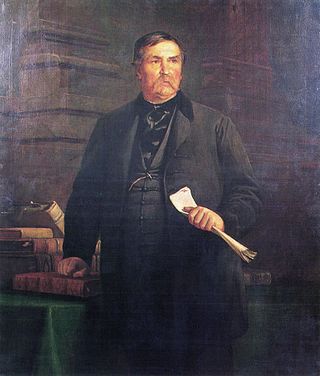 167
Ferenc Deák de Kehida was a Hungarian statesman and Minister of Justice. He was known as "The Wise Man of the Nation" and one of the greatest figures of Hungary's liberal movement.
167
Ferenc Deák de Kehida was a Hungarian statesman and Minister of Justice. He was known as "The Wise Man of the Nation" and one of the greatest figures of Hungary's liberal movement.
Mihály Vörösmarty
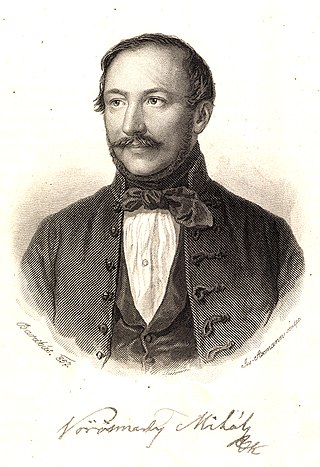 155
Mihály Vörösmarty was an important Hungarian poet and dramatist.
155
Mihály Vörösmarty was an important Hungarian poet and dramatist.
Endre Bajcsy-Zsilinszky
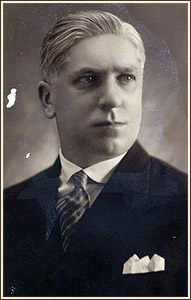 133
Endre Kálmán Bajcsy-Zsilinszky, was an influential Hungarian national radical politician and an important voice in the struggle against German expansion and military policy. Executed National...
133
Endre Kálmán Bajcsy-Zsilinszky, was an influential Hungarian national radical politician and an important voice in the struggle against German expansion and military policy. Executed National...
Matthias Corvinus
 120
Matthias Corvinus was King of Hungary and Croatia from 1458 to 1490, as Matthias I. After conducting several military campaigns, he was elected King of Bohemia in 1469 and adopted the title Duke of...
120
Matthias Corvinus was King of Hungary and Croatia from 1458 to 1490, as Matthias I. After conducting several military campaigns, he was elected King of Bohemia in 1469 and adopted the title Duke of...
János Damjanich
 109
János Damjanich was an Austrian military officer who became general of the Hungarian Revolutionary Army in 1848. He is considered a national hero in Hungary.
109
János Damjanich was an Austrian military officer who became general of the Hungarian Revolutionary Army in 1848. He is considered a national hero in Hungary.
Béla Bartók
 103
Béla Viktor János Bartók was a Hungarian composer, pianist and ethnomusicologist. He is considered one of the most important composers of the 20th century; he and Franz Liszt are regarded as...
103
Béla Viktor János Bartók was a Hungarian composer, pianist and ethnomusicologist. He is considered one of the most important composers of the 20th century; he and Franz Liszt are regarded as...
Ferenc Kölcsey
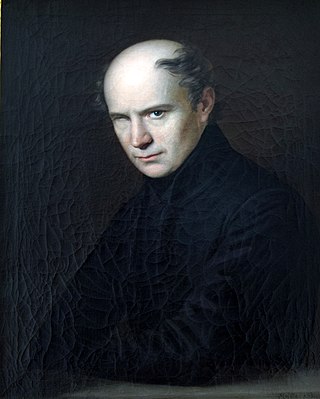 97
Ferenc Kölcsey was a Hungarian poet, literary critic, orator, and politician, noted for his support of the liberal current in Hungary regarding the politics involving the Austrian Empire. He wrote...
97
Ferenc Kölcsey was a Hungarian poet, literary critic, orator, and politician, noted for his support of the liberal current in Hungary regarding the politics involving the Austrian Empire. He wrote...
Zsigmond Móricz
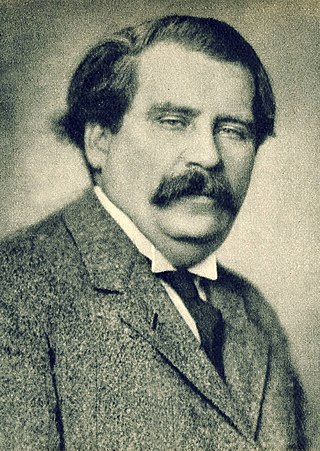 79
Zsigmond Móricz was a major Hungarian novelist and Social Realist.
79
Zsigmond Móricz was a major Hungarian novelist and Social Realist.
Stephen Bocskai
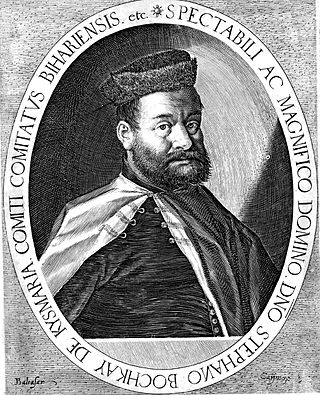 74
Stephen Bocskai or Bocskay was Prince of Transylvania and Hungary from 1605 to 1606. He was born to a Hungarian noble family. His father's estates were located in the eastern regions of the medieval...
74
Stephen Bocskai or Bocskay was Prince of Transylvania and Hungary from 1605 to 1606. He was born to a Hungarian noble family. His father's estates were located in the eastern regions of the medieval...
Géza Gárdonyi
 73
Géza Gárdonyi, born Géza Ziegler was a Hungarian writer and journalist. Although he wrote a range of works, he had his greatest success as a historical novelist, particularly with Eclipse of the...
73
Géza Gárdonyi, born Géza Ziegler was a Hungarian writer and journalist. Although he wrote a range of works, he had his greatest success as a historical novelist, particularly with Eclipse of the...
Mihály Munkácsy
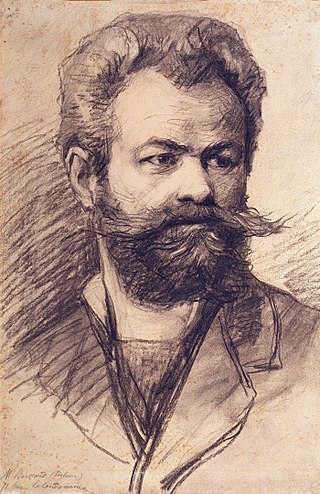 70
Mihály Munkácsy was a Hungarian painter. He earned international reputation with his genre pictures and large-scale biblical paintings.
70
Mihály Munkácsy was a Hungarian painter. He earned international reputation with his genre pictures and large-scale biblical paintings.
Mihály Csokonai
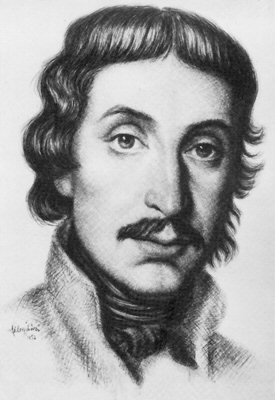 70
Mihály Csokonai was a Hungarian poet, a leading figure in the Hungarian literary revival of the Enlightenment.
70
Mihály Csokonai was a Hungarian poet, a leading figure in the Hungarian literary revival of the Enlightenment.
Miklós Radnóti
 68
Miklós Radnóti was a Hungarian poet, an outstanding representative of modern Hungarian lyric poetry as well as a certified secondary school teacher of Hungarian and French. He is characterised by his...
68
Miklós Radnóti was a Hungarian poet, an outstanding representative of modern Hungarian lyric poetry as well as a certified secondary school teacher of Hungarian and French. He is characterised by his...
Pál Kinizsi
 68
Pál Kinizsi was a Hungarian general in the service of Hungarian army under king Matthias Corvinus. He was the Count of Temes County from 1484 and Captain-General of the Lower Parts. He was a general...
68
Pál Kinizsi was a Hungarian general in the service of Hungarian army under king Matthias Corvinus. He was the Count of Temes County from 1484 and Captain-General of the Lower Parts. He was a general...
Bercsényi Miklós (főgenerális)
 65
Gróf székesi Bercsényi Miklós kuruc főgenerális, II. Rákóczi Ferenc közeli harcostársa, a Rákóczi-szabadságharc egyik irányítója.
65
Gróf székesi Bercsényi Miklós kuruc főgenerális, II. Rákóczi Ferenc közeli harcostársa, a Rákóczi-szabadságharc egyik irányítója.
Ferenc Erkel
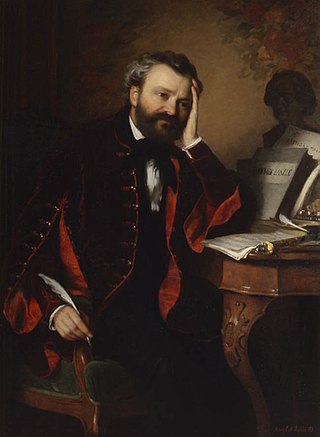 63
Ferenc Erkel was a Hungarian composer, conductor and pianist. He was the father of Hungarian grand opera, written mainly on historical themes, which are still often performed in Hungary. He also...
63
Ferenc Erkel was a Hungarian composer, conductor and pianist. He was the father of Hungarian grand opera, written mainly on historical themes, which are still often performed in Hungary. He also...
Imre Madách
 63
Imre Madách de Sztregova et Kelecsény was a Hungarian aristocrat, writer, poet, lawyer and politician. His major work is The Tragedy of Man. It is a dramatic poem approximately 4000 lines long, which...
63
Imre Madách de Sztregova et Kelecsény was a Hungarian aristocrat, writer, poet, lawyer and politician. His major work is The Tragedy of Man. It is a dramatic poem approximately 4000 lines long, which...
Lajos Batthyány
 63
Count Lajos Batthyány de Németújvár was the first Prime Minister of Hungary. He was born in Pozsony on 10 February 1807, and was executed by firing squad in Pest on 6 October 1849, the same day as...
63
Count Lajos Batthyány de Németújvár was the first Prime Minister of Hungary. He was born in Pozsony on 10 February 1807, and was executed by firing squad in Pest on 6 October 1849, the same day as...
Empress Elisabeth of Austria
 61
Elisabeth, nicknamed Sisi or Sissi, was Empress of Austria and Queen of Hungary from her marriage to Emperor Franz Joseph I on 24 April 1854 until her assassination in 1898.
61
Elisabeth, nicknamed Sisi or Sissi, was Empress of Austria and Queen of Hungary from her marriage to Emperor Franz Joseph I on 24 April 1854 until her assassination in 1898.
Károly Kisfaludy
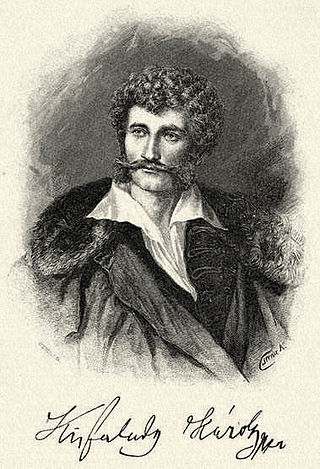 61
Károly Kisfaludy was a Hungarian dramatist and artist, brother of Sándor Kisfaludy. He was the founder of the national drama.
61
Károly Kisfaludy was a Hungarian dramatist and artist, brother of Sándor Kisfaludy. He was the founder of the national drama.
Mihály Tompa
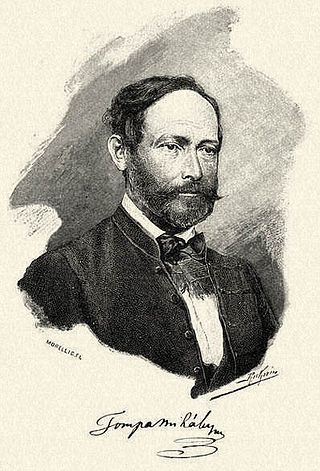 59
Mihály Tompa, was a Hungarian lyric poet, Calvinist minister and corresponding member of the Hungarian Academy of Sciences. Together with János Arany and Sándor Petőfi they formed the triumvirate of...
59
Mihály Tompa, was a Hungarian lyric poet, Calvinist minister and corresponding member of the Hungarian Academy of Sciences. Together with János Arany and Sándor Petőfi they formed the triumvirate of...
Franz Liszt
 57
Franz Liszt was a Hungarian composer, virtuoso pianist, conductor and teacher of the Romantic period. With a diverse body of work spanning more than six decades, he is considered to be one of the...
57
Franz Liszt was a Hungarian composer, virtuoso pianist, conductor and teacher of the Romantic period. With a diverse body of work spanning more than six decades, he is considered to be one of the...
Zoltán Kodály
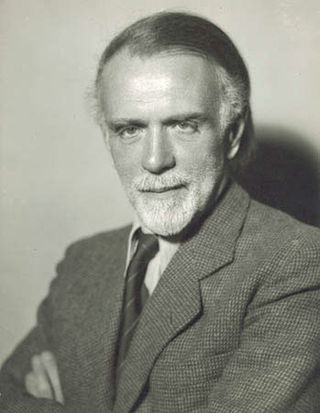 57
Zoltán Kodály was a Hungarian composer, ethnomusicologist, music pedagogue, linguist, and philosopher. He is well known internationally as the creator of the Kodály method of music education.
57
Zoltán Kodály was a Hungarian composer, ethnomusicologist, music pedagogue, linguist, and philosopher. He is well known internationally as the creator of the Kodály method of music education.
István Dobó
 55
Baron István Dobó de Ruszka (c. 1502 - Szerednye was a Hungarian soldier, best known as the successful defender of Eger against the Ottomans in 1552. Dobó was a member of the Hungarian land-owning...
55
Baron István Dobó de Ruszka (c. 1502 - Szerednye was a Hungarian soldier, best known as the successful defender of Eger against the Ottomans in 1552. Dobó was a member of the Hungarian land-owning...
Attila
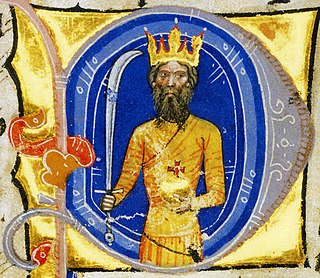 55
Attila, frequently called Attila the Hun, was the ruler of the Huns from 434 until his death, in March 453. He was also the leader of an empire consisting of Huns, Ostrogoths, Alans, and Bulgars,...
55
Attila, frequently called Attila the Hun, was the ruler of the Huns from 434 until his death, in March 453. He was also the leader of an empire consisting of Huns, Ostrogoths, Alans, and Bulgars,...
Gábor Baross
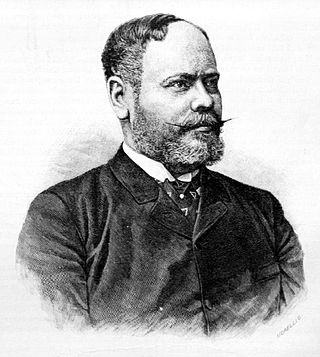 54
Noble Gábor Baross de Bellus was a Hungarian statesman in Hungarian parliament, was born at Barossháza now Pružina near Trencsén. He was for a time one of the professors there under Cardinal Kolos...
54
Noble Gábor Baross de Bellus was a Hungarian statesman in Hungarian parliament, was born at Barossháza now Pružina near Trencsén. He was for a time one of the professors there under Cardinal Kolos...
Ladislaus I of Hungary
 54
Ladislaus I, also known as Saint Ladislas, was King of Hungary from 1077 and King of Croatia from 1091. He was the second son of King Béla I of Hungary and Richeza of Poland. After Béla's death in...
54
Ladislaus I, also known as Saint Ladislas, was King of Hungary from 1077 and King of Croatia from 1091. He was the second son of King Béla I of Hungary and Richeza of Poland. After Béla's death in...
Kálmán Mikszáth
 52
Kálmán Mikszáth de Kiscsoltó was a widely reputed Hungarian novelist, journalist, and politician. His work remains in print in Hungarian and still appears from time to time in other languages.
52
Kálmán Mikszáth de Kiscsoltó was a widely reputed Hungarian novelist, journalist, and politician. His work remains in print in Hungarian and still appears from time to time in other languages.
György Klapka
 49
György (Móric) Klapka was a Hungarian general. He was one of the most important Hungarian generals of the Hungarian War of Independence of 1848–1849, politician, member of the Hungarian Parliament,...
49
György (Móric) Klapka was a Hungarian general. He was one of the most important Hungarian generals of the Hungarian War of Independence of 1848–1849, politician, member of the Hungarian Parliament,...
Vasvári Pál (történész)
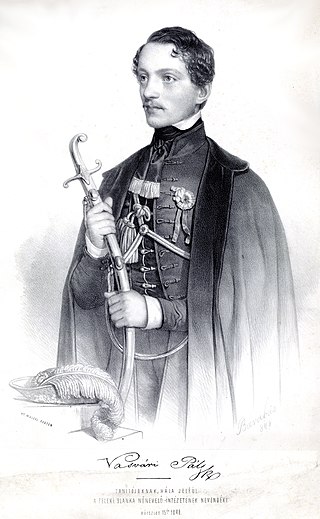 47
Vasvári Pál író, történész, pedagógus, filozófus, politikus, forradalmár, a „márciusi ifjak” egyik vezéralakja, honvéd őrnagy.
47
Vasvári Pál író, történész, pedagógus, filozófus, politikus, forradalmár, a „márciusi ifjak” egyik vezéralakja, honvéd őrnagy.
Ferenc Kazinczy
 45
Ferenc Kazinczy was a Hungarian author, poet, translator, neologist, an agent in the regeneration of the Hungarian language and literature at the turn of the 19th century. Today his name is connected...
45
Ferenc Kazinczy was a Hungarian author, poet, translator, neologist, an agent in the regeneration of the Hungarian language and literature at the turn of the 19th century. Today his name is connected...
Ferenc Móra
 45
Ferenc Móra was a Hungarian novelist, journalist, and museologist.
45
Ferenc Móra was a Hungarian novelist, journalist, and museologist.
Miklós Wesselényi
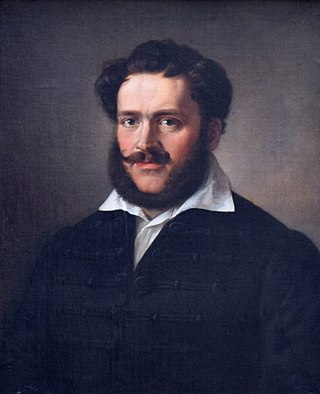 43
Baron Miklós Wesselényi de Hadad was a Hungarian statesman, leader of the upper house of the Diet, member of the Board of Academy of Sciences, hero of the 1838 Pest flood.
A prominent and wealthy...
43
Baron Miklós Wesselényi de Hadad was a Hungarian statesman, leader of the upper house of the Diet, member of the Board of Academy of Sciences, hero of the 1838 Pest flood.
A prominent and wealthy...
Loránd Eötvös
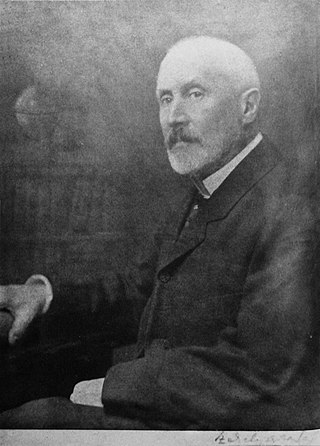 42
Baron Loránd Eötvös de Vásárosnamény, also called Baron Roland von Eötvös in English literature, was a Hungarian physicist. He is remembered today largely for his work on gravitation and surface...
42
Baron Loránd Eötvös de Vásárosnamény, also called Baron Roland von Eötvös in English literature, was a Hungarian physicist. He is remembered today largely for his work on gravitation and surface...
Saint Emeric of Hungary
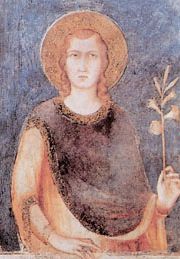 41
Emeric, also Emericus, Emerick, Emery, Emory, and venerated as Saint Emeric was the son of King Stephen I of Hungary and Giselle of Bavaria.
41
Emeric, also Emericus, Emerick, Emery, Emory, and venerated as Saint Emeric was the son of King Stephen I of Hungary and Giselle of Bavaria.
Gabriel Bethlen
 40
Gabriel Bethlen was Prince of Transylvania from 1613 to 1629 and Duke of Opole from 1622 to 1625. He was also King-elect of Hungary from 1620 to 1621, but he never took control of the whole kingdom....
40
Gabriel Bethlen was Prince of Transylvania from 1613 to 1629 and Duke of Opole from 1622 to 1625. He was also King-elect of Hungary from 1620 to 1621, but he never took control of the whole kingdom....
Antal Nagy de Buda
 40
Antal Nagy de Buda or Antal Budai Nagy was a petty nobleman from Kolozs County, Transylvania, who led the first major peasant revolt in medieval Hungary in 1437. He died in the decisive battle during...
40
Antal Nagy de Buda or Antal Budai Nagy was a petty nobleman from Kolozs County, Transylvania, who led the first major peasant revolt in medieval Hungary in 1437. He died in the decisive battle during...
John Calvin
 39
John Calvin was a French theologian, pastor and reformer in Geneva during the Protestant Reformation. He was a principal figure in the development of the system of Christian theology later called...
39
John Calvin was a French theologian, pastor and reformer in Geneva during the Protestant Reformation. He was a principal figure in the development of the system of Christian theology later called...
János Bottyán
 39
János Bottyán, also known as Blind Bottyán, Vak Bottyán János was a Hungarian kuruc general.
39
János Bottyán, also known as Blind Bottyán, Vak Bottyán János was a Hungarian kuruc general.
Ignaz Semmelweis
 37
Ignaz Philipp Semmelweis was a Hungarian physician and scientist of German descent, who was an early pioneer of antiseptic procedures, and was described as the "saviour of mothers". Postpartum...
37
Ignaz Philipp Semmelweis was a Hungarian physician and scientist of German descent, who was an early pioneer of antiseptic procedures, and was described as the "saviour of mothers". Postpartum...
Áron Gábor
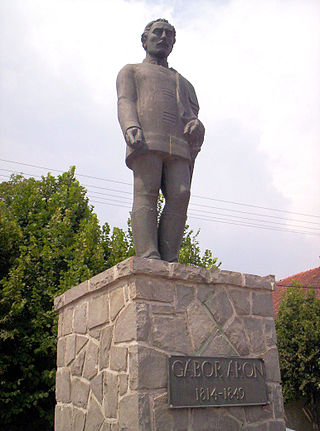 37
Áron Gábor was a Székely Hungarian artillery officer in the 1848-49 Hungarian Revolution. He became one of the leaders of Székely-Hungarian forces in Transylvania during the 1848 revolution against...
37
Áron Gábor was a Székely Hungarian artillery officer in the 1848-49 Hungarian Revolution. He became one of the leaders of Székely-Hungarian forces in Transylvania during the 1848 revolution against...
Miklós Toldi
 37
Miklós Toldi was a Hungarian nobleman from Bihar County of the Kingdom of Hungary, who is remembered as a legendary strong hero in Hungarian folklore. Hungarian poet János Arany based his famous...
37
Miklós Toldi was a Hungarian nobleman from Bihar County of the Kingdom of Hungary, who is remembered as a legendary strong hero in Hungarian folklore. Hungarian poet János Arany based his famous...
Bálint Balassi
 36
Baron Bálint Balassi de Kékkő et Gyarmat was a Hungarian Renaissance lyric poet. He wrote mostly in Hungarian, but was also proficient in eight more languages: Latin, Italian, German, Polish,...
36
Baron Bálint Balassi de Kékkő et Gyarmat was a Hungarian Renaissance lyric poet. He wrote mostly in Hungarian, but was also proficient in eight more languages: Latin, Italian, German, Polish,...
Váci Mihály
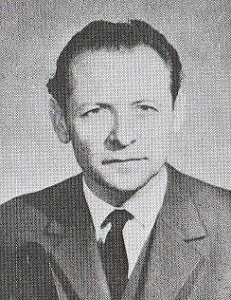 35
Váci Mihály Kossuth- és kétszeres József Attila-díjas költő, műfordító. A Kádár-rendszer időszakában, a hatvanas évek közepétől a nyolcvanas évek elejéig, Magyarország ünnepelt és legtöbbet szavalt...
35
Váci Mihály Kossuth- és kétszeres József Attila-díjas költő, műfordító. A Kádár-rendszer időszakában, a hatvanas évek közepétől a nyolcvanas évek elejéig, Magyarország ünnepelt és legtöbbet szavalt...
Esze Tamás
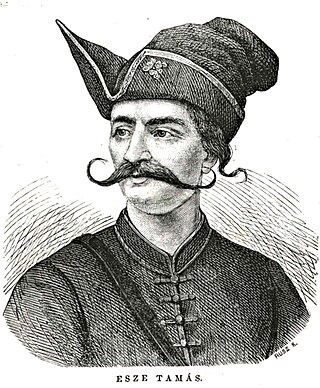 35
Esze Tamás a Rákóczi-szabadságharcot előkészítő tiszaháti felkelés vezéralakja, kuruc brigadéros.
35
Esze Tamás a Rákóczi-szabadságharcot előkészítő tiszaháti felkelés vezéralakja, kuruc brigadéros.
József Katona
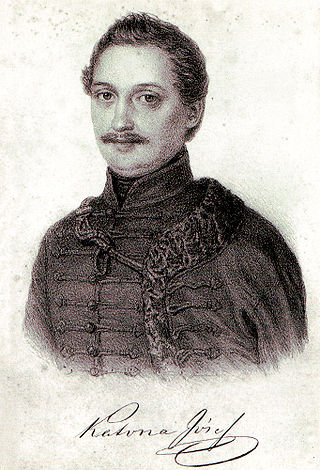 32
József Katona was a Hungarian playwright and poet, creator of the Hungarian historical tragedy Bánk bán.
32
József Katona was a Hungarian playwright and poet, creator of the Hungarian historical tragedy Bánk bán.
Dániel Berzsenyi
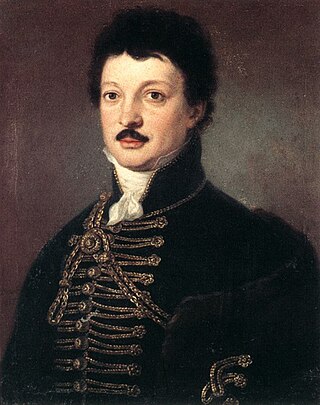 29
Dániel Berzsenyi was a Hungarian poet.
29
Dániel Berzsenyi was a Hungarian poet.
Somogyi Béla
Kelemen Mikes
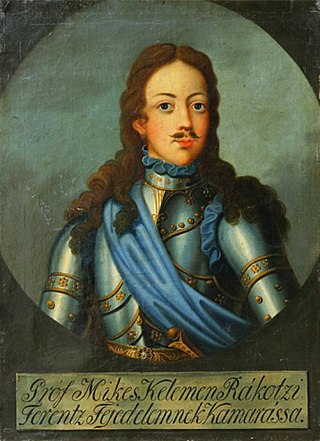 28
Kelemen Mikes (1690–1761) was a Transylvanian-born Hungarian political figure and essayist, noted for his rebellious activities against the Habsburg monarchy. Mikes is referred to as the "Hungarian...
28
Kelemen Mikes (1690–1761) was a Transylvanian-born Hungarian political figure and essayist, noted for his rebellious activities against the Habsburg monarchy. Mikes is referred to as the "Hungarian...
Géza, Grand Prince of the Hungarians
Álmos
 28
Álmos, also Almos or Almus, was—according to the uniform account of Hungarian chronicles—the first head of the "loose federation" of the Hungarian tribes from around 850. Whether he was the sacred...
28
Álmos, also Almos or Almus, was—according to the uniform account of Hungarian chronicles—the first head of the "loose federation" of the Hungarian tribes from around 850. Whether he was the sacred...
Ernő Kiss
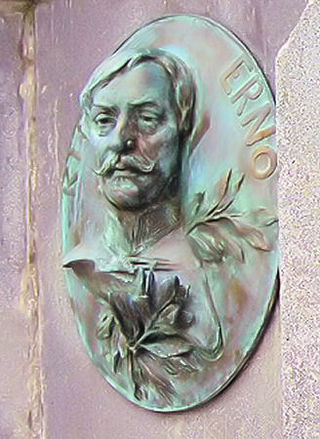 27
Ernő Kiss was a honvéd lieutenant-general. He was executed for his part in the Hungarian Revolution of 1848 and is considered one of the 13 Martyrs of Arad. Ernő Kiss was from a Transylvanian family...
27
Ernő Kiss was a honvéd lieutenant-general. He was executed for his part in the Hungarian Revolution of 1848 and is considered one of the 13 Martyrs of Arad. Ernő Kiss was from a Transylvanian family...
Emeric Thököly
 25
Emeric Thököly de Késmárk was a Hungarian nobleman, leader of anti-Habsburg uprisings like his father, Count István Thököly, before him. Emeric was Prince of Upper Hungary, an Ottoman vassal state,...
25
Emeric Thököly de Késmárk was a Hungarian nobleman, leader of anti-Habsburg uprisings like his father, Count István Thököly, before him. Emeric was Prince of Upper Hungary, an Ottoman vassal state,...
Kálmán Kandó
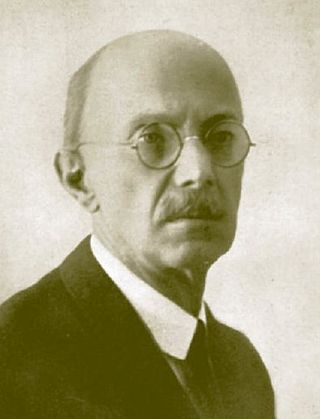 24
Kálmán Kandó de Egerfarmos et Sztregova was a Hungarian engineer, the inventor of phase converter and a pioneer in the development of AC electric railway traction.
24
Kálmán Kandó de Egerfarmos et Sztregova was a Hungarian engineer, the inventor of phase converter and a pioneer in the development of AC electric railway traction.
Mihály Babits
 24
Mihály Babits was a Hungarian poet, writer, essayist, and translator. His poems are well known for their intense religious themes. His novels such as “The Children of Death” (1927) explore...
24
Mihály Babits was a Hungarian poet, writer, essayist, and translator. His poems are well known for their intense religious themes. His novels such as “The Children of Death” (1927) explore...
Pista Dankó
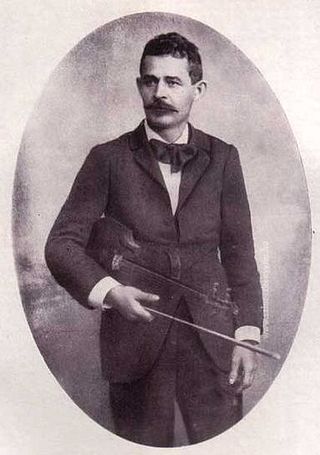 24
Pista Dankó was a Hungarian-born bandleader and composer belonging to the Romani people. He primarily worked in the folk music styles popular in Hungary in the 19th century. He was frequently known...
24
Pista Dankó was a Hungarian-born bandleader and composer belonging to the Romani people. He primarily worked in the folk music styles popular in Hungary in the 19th century. He was frequently known...
Ignác Martinovics
 22
Ignác Martinovics was a Hungarian scholar, chemist, philosopher, writer, secret agent, Freemason and a leader of the Hungarian Jacobin movement. He was condemned to death for high treason and...
22
Ignác Martinovics was a Hungarian scholar, chemist, philosopher, writer, secret agent, Freemason and a leader of the Hungarian Jacobin movement. He was condemned to death for high treason and...
Saint Florian
 21
Florian was a Christian holy man and the patron saint of chimney sweeps; soapmakers, and firefighters. His feast day is 4 May. Florian is also the patron saint of Poland, the city of Linz, Austria,...
21
Florian was a Christian holy man and the patron saint of chimney sweeps; soapmakers, and firefighters. His feast day is 4 May. Florian is also the patron saint of Poland, the city of Linz, Austria,...
Sándor Kőrösi Csoma
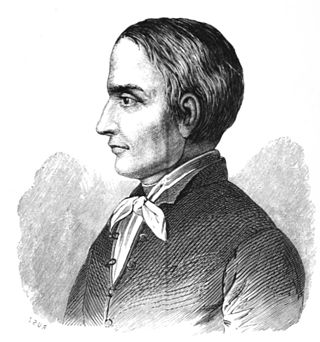 21
Sándor Csoma de Kőrös was a Hungarian philologist and Orientalist, author of the first Tibetan–English dictionary and grammar book. He was called Phyi-glin-gi-grwa-pa in Tibetan, meaning "the foreign...
21
Sándor Csoma de Kőrös was a Hungarian philologist and Orientalist, author of the first Tibetan–English dictionary and grammar book. He was called Phyi-glin-gi-grwa-pa in Tibetan, meaning "the foreign...
János Irinyi
 21
János Irinyi was a Hungarian chemist and inventor of the noiseless and non-explosive match. He achieved this by mixing the yellow phosphorus with lead dioxide instead of the potassium chlorate used...
21
János Irinyi was a Hungarian chemist and inventor of the noiseless and non-explosive match. He achieved this by mixing the yellow phosphorus with lead dioxide instead of the potassium chlorate used...
János Batsányi
 21
János Batsányi was a Hungarian poet.
21
János Batsányi was a Hungarian poet.
András Fáy
 21
András Fáy was a Hungarian author, lawyer, politician and businessman.
21
András Fáy was a Hungarian author, lawyer, politician and businessman.
Stephen V Báthory
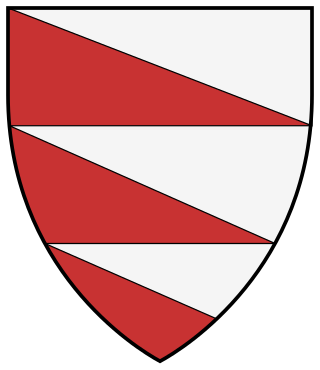 19
Stephen Báthory of Ecsed was a Hungarian commander, 'dapiferorum regalium magister' (1458–?), judge royal (1471–1493), and voivode of Transylvania (1479–1493). He rose to power under King Matthias...
19
Stephen Báthory of Ecsed was a Hungarian commander, 'dapiferorum regalium magister' (1458–?), judge royal (1471–1493), and voivode of Transylvania (1479–1493). He rose to power under King Matthias...
John the Apostle
 19
John the Apostle, also known as Saint John the Beloved and, in Eastern Orthodox Christianity, Saint John the Theologian, was one of the Twelve Apostles of Jesus according to the New Testament....
19
John the Apostle, also known as Saint John the Beloved and, in Eastern Orthodox Christianity, Saint John the Theologian, was one of the Twelve Apostles of Jesus according to the New Testament....
János Bolyai
 19
János Bolyai or Johann Bolyai, was a Hungarian mathematician who developed absolute geometry—a geometry that includes both Euclidean geometry and hyperbolic geometry. The discovery of a consistent...
19
János Bolyai or Johann Bolyai, was a Hungarian mathematician who developed absolute geometry—a geometry that includes both Euclidean geometry and hyperbolic geometry. The discovery of a consistent...
Archduke Joseph of Austria (Palatine of Hungary)
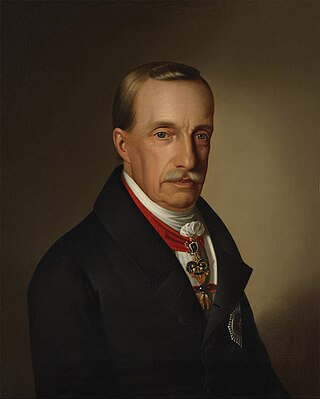 18
Archduke Joseph Anton of Austria was the 103rd and penultimate palatine of Hungary who served for more than fifty years from 1796 to 1847, after he had been appointed governor in 1795.
18
Archduke Joseph Anton of Austria was the 103rd and penultimate palatine of Hungary who served for more than fifty years from 1796 to 1847, after he had been appointed governor in 1795.
Béla I of Hungary
 18
Béla I the Boxer or the Wisent was King of Hungary from 1060 until his death. He descended from a younger branch of the Árpád dynasty. Béla's baptismal name was Adalbert. He left Hungary in 1031,...
18
Béla I the Boxer or the Wisent was King of Hungary from 1060 until his death. He descended from a younger branch of the Árpád dynasty. Béla's baptismal name was Adalbert. He left Hungary in 1031,...
Gyula Juhász (poet)
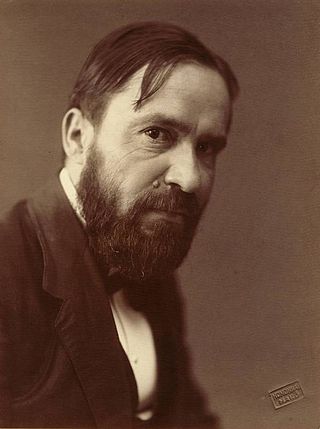 18
Gyula Juhász was a Hungarian poet, who was awarded the Baumgarten Prize.
18
Gyula Juhász was a Hungarian poet, who was awarded the Baumgarten Prize.
Vásárhelyi Pál (vízépítő mérnök)
 18
Vásárhelyi Pál magyar vízépítő mérnök, a Tisza szabályozásának mérnöke, a Magyar Tudományos Akadémia tagja.
18
Vásárhelyi Pál magyar vízépítő mérnök, a Tisza szabályozásának mérnöke, a Magyar Tudományos Akadémia tagja.
Ilona Zrínyi
 18
Countess Ilona Zrínyi was a noblewoman and heroine. She was one of the last surviving members of the Croatian-Hungarian Zrinski/Zrínyi noble family. She was the daughter of Petar Zrinski, Ban...
18
Countess Ilona Zrínyi was a noblewoman and heroine. She was one of the last surviving members of the Croatian-Hungarian Zrinski/Zrínyi noble family. She was the daughter of Petar Zrinski, Ban...
Louis I of Hungary
Imre Nagy
 17
Imre Nagy was a Hungarian communist politician who served as Chairman of the Council of Ministers of the Hungarian People's Republic from 1953 to 1955. In 1956 Nagy became leader of the Hungarian...
17
Imre Nagy was a Hungarian communist politician who served as Chairman of the Council of Ministers of the Hungarian People's Republic from 1953 to 1955. In 1956 Nagy became leader of the Hungarian...
József Bajza
 17
József Bajza was a Hungarian poet and critic.
17
József Bajza was a Hungarian poet and critic.
Elizabeth of Hungary
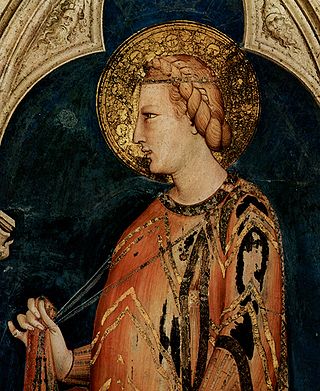 17
Elizabeth of Hungary, also known as Elisabeth of Thuringia, was a princess of the Kingdom of Hungary and the landgravine of Thuringia.
17
Elizabeth of Hungary, also known as Elisabeth of Thuringia, was a princess of the Kingdom of Hungary and the landgravine of Thuringia.
Péter Veres (politician)
 17
Péter Veres was a Hungarian politician and writer, who served as Minister of Defence from 1947 to 1948.
17
Péter Veres was a Hungarian politician and writer, who served as Minister of Defence from 1947 to 1948.
Péter Pázmány
 16
Péter Pázmány de Panasz, S.J., was a Hungarian Jesuit who was a noted philosopher, theologian, cardinal, pulpit orator and statesman. He was an important figure in the Counter-Reformation in Royal...
16
Péter Pázmány de Panasz, S.J., was a Hungarian Jesuit who was a noted philosopher, theologian, cardinal, pulpit orator and statesman. He was an important figure in the Counter-Reformation in Royal...
Sebestyén Tinódi Lantos
 16
Sebestyén Tinódi Lantos was a 16th-century Hungarian lyricist, epic poet, political historian, and minstrel.
16
Sebestyén Tinódi Lantos was a 16th-century Hungarian lyricist, epic poet, political historian, and minstrel.
Martin Luther
 16
Martin Luther was a German priest, theologian, author, hymnwriter, professor, and Augustinian friar. Luther was the seminal figure of the Protestant Reformation, and his theological beliefs form the...
16
Martin Luther was a German priest, theologian, author, hymnwriter, professor, and Augustinian friar. Luther was the seminal figure of the Protestant Reformation, and his theological beliefs form the...
Ottó Herman
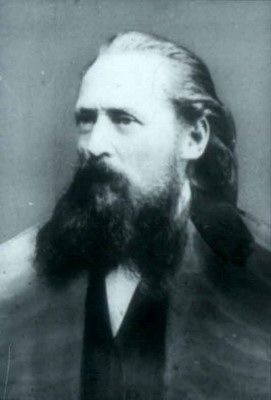 16
Ottó Herman was a Hungarian zoologist, ethnographer, archaeologist, and politician. A polymath recognized as a pioneer of Hungarian natural history research, he made numerous studies on Hungarian...
16
Ottó Herman was a Hungarian zoologist, ethnographer, archaeologist, and politician. A polymath recognized as a pioneer of Hungarian natural history research, he made numerous studies on Hungarian...
Stephen Báthory
 16
Stephen Báthory was Voivode of Transylvania (1571–1576), Prince of Transylvania (1576–1586), King of Poland and Grand Duke of Lithuania (1576–1586).
16
Stephen Báthory was Voivode of Transylvania (1571–1576), Prince of Transylvania (1576–1586), King of Poland and Grand Duke of Lithuania (1576–1586).
Károly Vécsey
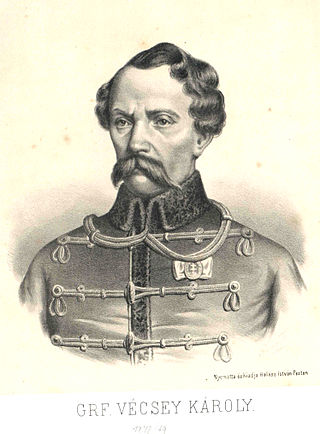 15
Count Károly Vécsey de Hernádvécse et Hajnácskő was a honvéd general in the Hungarian Army. He was executed for his part in the Hungarian Revolution of 1848, and is considered one of the 13 Martyrs...
15
Count Károly Vécsey de Hernádvécse et Hajnácskő was a honvéd general in the Hungarian Army. He was executed for his part in the Hungarian Revolution of 1848, and is considered one of the 13 Martyrs...
Coloman, King of Hungary
 15
Coloman the Learned, also the Book-Lover or the Bookish was King of Hungary from 1095 and King of Croatia from 1097 until his death. Because Coloman and his younger brother Álmos were underage when...
15
Coloman the Learned, also the Book-Lover or the Bookish was King of Hungary from 1095 and King of Croatia from 1097 until his death. Because Coloman and his younger brother Álmos were underage when...
Árpád Tóth
 15
Árpád Tóth was a Hungarian poet and translator.
15
Árpád Tóth was a Hungarian poet and translator.
János Vajda (poet)
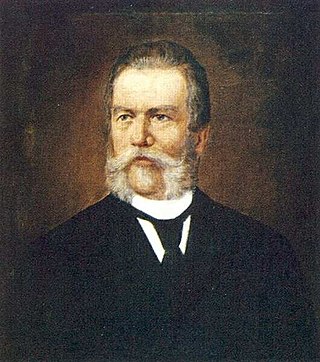 15
János Vajda was a Hungarian poet and journalist. His first poetry was published in Életképek in 1844. He was a member of the Kisfaludy Society.
15
János Vajda was a Hungarian poet and journalist. His first poetry was published in Életképek in 1844. He was a member of the Kisfaludy Society.
Áchim L. András
 15
Áchim L. András magyar gazdálkodó, szocialista parasztpolitikus, szerkesztő, akit Bajcsy-Zsilinszky Endre és testvére, Zsilinszky Gábor agyonlőtt. Az alföldi demokratikus agrármozgalmak meghatározó...
15
Áchim L. András magyar gazdálkodó, szocialista parasztpolitikus, szerkesztő, akit Bajcsy-Zsilinszky Endre és testvére, Zsilinszky Gábor agyonlőtt. Az alföldi demokratikus agrármozgalmak meghatározó...
Ignác Török
 15
Ignác Török was a honvéd general in the Hungarian Army. He was executed for his part in the Hungarian Revolution of 1848, and is considered one of the 13 Martyrs of Arad.
15
Ignác Török was a honvéd general in the Hungarian Army. He was executed for his part in the Hungarian Revolution of 1848, and is considered one of the 13 Martyrs of Arad.
Mihály Fazekas
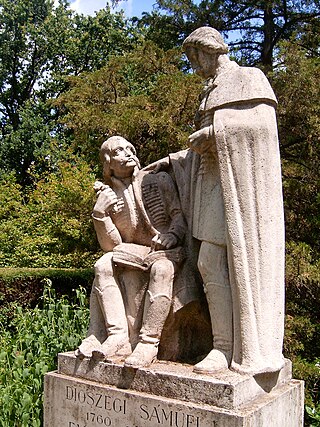 15
Mihály Fazekas was a Hungarian writer from Debrecen. He was an army private for seven years before being commissioned as a Hussar officer. As a hobby, Fazekas studied the natural sciences (botany)...
15
Mihály Fazekas was a Hungarian writer from Debrecen. He was an army private for seven years before being commissioned as a Hussar officer. As a hobby, Fazekas studied the natural sciences (botany)...
Ádám Balogh
 15
Ádám Balogh de Bér was one of the most famous kuruc colonels of the Hungarian army during Rákóczi's War for Independence against the rule of the Austrian Habsburg dynasty.
15
Ádám Balogh de Bér was one of the most famous kuruc colonels of the Hungarian army during Rákóczi's War for Independence against the rule of the Austrian Habsburg dynasty.
Tivadar Puskás
 15
Tivadar Puskás de Ditró was a Hungarian inventor, telephone pioneer, and inventor of the telephone exchange. He was also the founder of Telefon Hírmondó.
15
Tivadar Puskás de Ditró was a Hungarian inventor, telephone pioneer, and inventor of the telephone exchange. He was also the founder of Telefon Hírmondó.
Áron Tamási
 15
Áron Tamási was a Hungarian writer. He became well known in his native region of Transylvania and in Hungary for his stories written in his original Székely style.
15
Áron Tamási was a Hungarian writer. He became well known in his native region of Transylvania and in Hungary for his stories written in his original Székely style.
György Szondy
 14
György Szondy was a Hungarian soldier and the captain of Drégely Castle. He was a respected soldier, even by his Turkish foes, whose recognition can be seen by his burial by Hadim Ali Pasha with full...
14
György Szondy was a Hungarian soldier and the captain of Drégely Castle. He was a respected soldier, even by his Turkish foes, whose recognition can be seen by his burial by Hadim Ali Pasha with full...
Vilmos Lázár
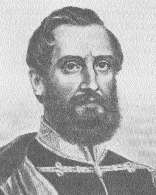 14
Vilmos Lázár de Szkáros was a honvéd colonel in the Hungarian Army. He was executed for his part in the Hungarian Revolution of 1848, and is considered one of the 13 Martyrs of Arad. According to...
14
Vilmos Lázár de Szkáros was a honvéd colonel in the Hungarian Army. He was executed for his part in the Hungarian Revolution of 1848, and is considered one of the 13 Martyrs of Arad. According to...
Előd
 14
Előd was – according to the chronicler Anonymus, author of the Gesta Hungarorum – one of the seven chieftains of the Magyars (Hungarians), who led them to the Carpathian Basin in 895.
14
Előd was – according to the chronicler Anonymus, author of the Gesta Hungarorum – one of the seven chieftains of the Magyars (Hungarians), who led them to the Carpathian Basin in 895.
László Németh
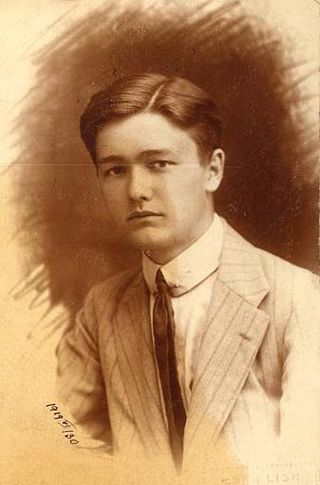 14
László Németh was a Hungarian dentist, writer, dramatist and essayist. He was born in Nagybánya the son of József Németh (1873–1946) and Vilma Gaál (1879–1957). Over the Christmas of 1925, he married...
14
László Németh was a Hungarian dentist, writer, dramatist and essayist. He was born in Nagybánya the son of József Németh (1873–1946) and Vilma Gaál (1879–1957). Over the Christmas of 1925, he married...
Yuri Gagarin
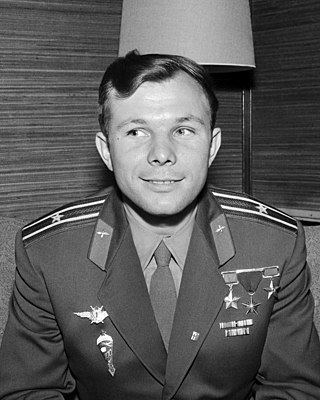 14
Yuri Alekseyevich Gagarin was a Soviet pilot and cosmonaut who, aboard the first successful crewed spaceflight, became the first human to journey into outer space. Travelling on Vostok 1, Gagarin...
14
Yuri Alekseyevich Gagarin was a Soviet pilot and cosmonaut who, aboard the first successful crewed spaceflight, became the first human to journey into outer space. Travelling on Vostok 1, Gagarin...
Artúr Görgei
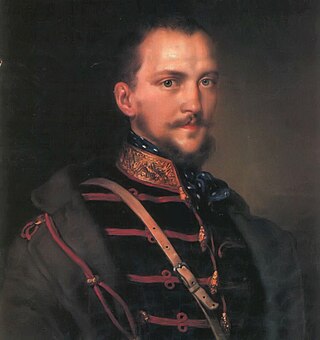 13
Artúr Görgei de Görgő et Toporc was a Hungarian military leader renowned for being one of the greatest generals of the Hungarian Revolutionary Army.
13
Artúr Görgei de Görgő et Toporc was a Hungarian military leader renowned for being one of the greatest generals of the Hungarian Revolutionary Army.
Saint George
 13
Saint George, also George of Lydda, was an early Christian martyr who is venerated as a saint in Christianity. According to tradition, he was a soldier in the Roman army. Of Cappadocian Greek origin,...
13
Saint George, also George of Lydda, was an early Christian martyr who is venerated as a saint in Christianity. According to tradition, he was a soldier in the Roman army. Of Cappadocian Greek origin,...
Lajos Aulich
 13
Lajos Aulich was the third Minister of War of the Hungarian State.
13
Lajos Aulich was the third Minister of War of the Hungarian State.
Dezső Kosztolányi
 13
Dezső Kosztolányi was a Hungarian writer, journalist, translator, and also a speaker of Esperanto. He wrote in all literary genres, from poetry to essays to theatre plays. Building his own style, he...
13
Dezső Kosztolányi was a Hungarian writer, journalist, translator, and also a speaker of Esperanto. He wrote in all literary genres, from poetry to essays to theatre plays. Building his own style, he...
Ányos Jedlik
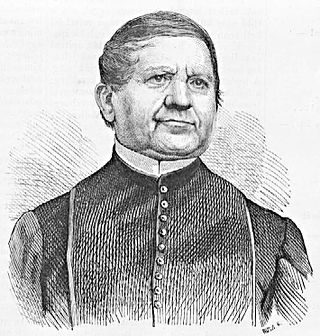 13
Ányos István Jedlik was a Hungarian inventor, engineer, physicist, and Benedictine priest. He was also a member of the Hungarian Academy of Sciences, and author of several books. He is considered by...
13
Ányos István Jedlik was a Hungarian inventor, engineer, physicist, and Benedictine priest. He was also a member of the Hungarian Academy of Sciences, and author of several books. He is considered by...
Kiss János (balettművész)
 13
Kiss János Kossuth-díjas magyar balettművész, balettigazgató, érdemes művész, a Halhatatlanok Társulatának örökös tagja.
13
Kiss János Kossuth-díjas magyar balettművész, balettigazgató, érdemes művész, a Halhatatlanok Társulatának örökös tagja.
Emmerich Kálmán
 12
Emmerich Kálmán was a Hungarian composer of operettas and a prominent figure in the development of Viennese operetta in the 20th century. Among his most popular works are Die Csárdásfürstin (1915)...
12
Emmerich Kálmán was a Hungarian composer of operettas and a prominent figure in the development of Viennese operetta in the 20th century. Among his most popular works are Die Csárdásfürstin (1915)...
Alexander Pushkin
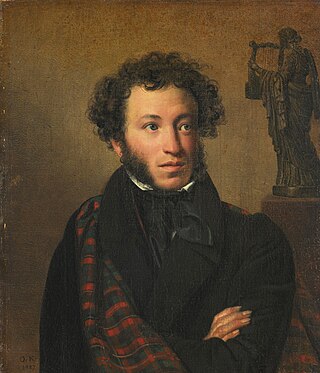 12
Alexander Sergeyevich Pushkin was a Russian poet, playwright, and novelist of the Romantic era. He is considered by many to be the greatest Russian poet, as well as the founder of modern Russian...
12
Alexander Sergeyevich Pushkin was a Russian poet, playwright, and novelist of the Romantic era. He is considered by many to be the greatest Russian poet, as well as the founder of modern Russian...
Lujza Blaha
 12
Lujza Blaha was a Hungarian actress and singer. She was known as "the nation's nightingale", an epithet given her by writer Mór Jókai.
12
Lujza Blaha was a Hungarian actress and singer. She was known as "the nation's nightingale", an epithet given her by writer Mór Jókai.
Gyula Benczúr
 12
Gyula Benczúr was a Hungarian painter and art teacher. An "outstanding exponent of academicism", he specialized in portraits and historical scenes. He is "considered one of the greatest Hungarian...
12
Gyula Benczúr was a Hungarian painter and art teacher. An "outstanding exponent of academicism", he specialized in portraits and historical scenes. He is "considered one of the greatest Hungarian...
Miklós Ybl
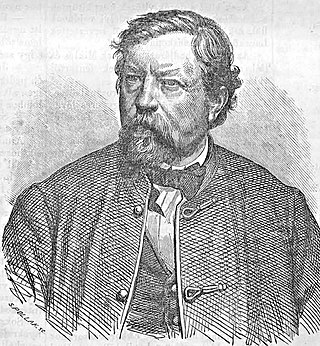 12
Miklós Ybl was one of Europe's leading architects in the mid to late nineteenth century as well as Hungary's most influential architect during his career. His most well-known work is the Hungarian...
12
Miklós Ybl was one of Europe's leading architects in the mid to late nineteenth century as well as Hungary's most influential architect during his career. His most well-known work is the Hungarian...
József Mindszenty
 12
József Mindszenty was a Hungarian cardinal of the Catholic Church who served as Archbishop of Esztergom and leader of the Catholic Church in Hungary from 1945 to 1973. According to the Encyclopædia...
12
József Mindszenty was a Hungarian cardinal of the Catholic Church who served as Archbishop of Esztergom and leader of the Catholic Church in Hungary from 1945 to 1973. According to the Encyclopædia...
Teleki
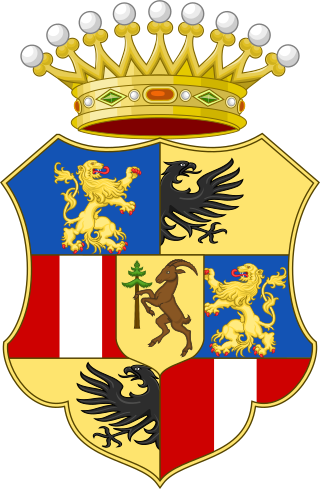 12
The Teleki family is an old Hungarian noble family whose members, for centuries, occupied many important positions in the Principality of Transylvania, in the Holy Roman Empire and later in the...
12
The Teleki family is an old Hungarian noble family whose members, for centuries, occupied many important positions in the Principality of Transylvania, in the Holy Roman Empire and later in the...
Donát Bánki
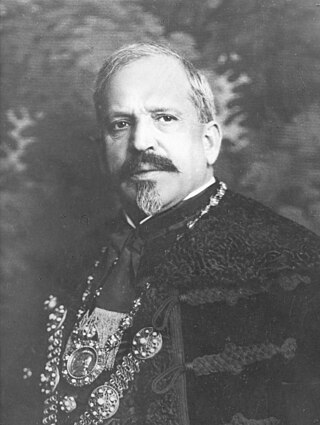 12
Donát Bánki
was a Hungarian mechanical engineer and inventor of Jewish heritage. In 1893 he invented the carburetor for the stationary engine, together with János Csonka. The invention is often,...
12
Donát Bánki
was a Hungarian mechanical engineer and inventor of Jewish heritage. In 1893 he invented the carburetor for the stationary engine, together with János Csonka. The invention is often,...
János Bihari
 11
János Bihari was an influential Hungarian Romani violinist. He is one of the founders of Romani academic music and the musical genre verbunkos.
11
János Bihari was an influential Hungarian Romani violinist. He is one of the founders of Romani academic music and the musical genre verbunkos.
Arisztid Dessewffy
 11
Arisztid Dessewffy de Csernek et Tarkő was a honvéd general in the Hungarian Army. He was executed for his part in the Hungarian Revolution of 1848, and is considered one of the 13 Martyrs of Arad....
11
Arisztid Dessewffy de Csernek et Tarkő was a honvéd general in the Hungarian Army. He was executed for his part in the Hungarian Revolution of 1848, and is considered one of the 13 Martyrs of Arad....
Rózsa Ferenc (politikus)
 11
Rózsa Ferenc építőmérnök, újságíró, kommunista aktivista a Horthy-korszak alatt. A Szabad Nép szerkesztőjeként is dolgozott.
11
Rózsa Ferenc építőmérnök, újságíró, kommunista aktivista a Horthy-korszak alatt. A Szabad Nép szerkesztőjeként is dolgozott.
Gyula Illyés
 11
Gyula Illyés born Gyula Illés was a Hungarian poet and novelist. He was one of the so-called népi writers, named so because they aimed to show – propelled by strong sociological interest and...
11
Gyula Illyés born Gyula Illés was a Hungarian poet and novelist. He was one of the so-called népi writers, named so because they aimed to show – propelled by strong sociological interest and...
Ferenc Nádasdy
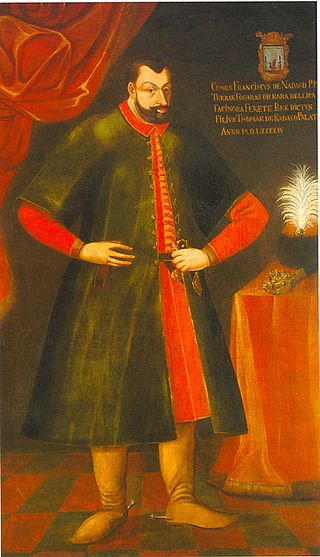 11
Count Ferenc II Nádasdy de Nádasd et Fogarasföld was a Hungarian nobleman. His family, Nádasdy, was one of the wealthiest and most influential of the era in Hungary. In 1571, when Ferenc was 16, his...
11
Count Ferenc II Nádasdy de Nádasd et Fogarasföld was a Hungarian nobleman. His family, Nádasdy, was one of the wealthiest and most influential of the era in Hungary. In 1571, when Ferenc was 16, his...
Alfréd Hajós
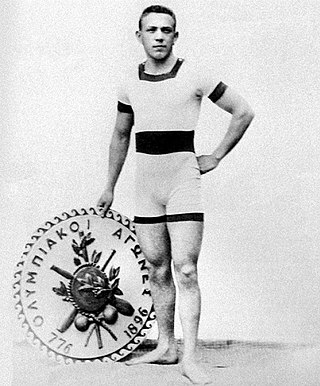 11
Alfréd Hajós was a Hungarian swimmer, football (soccer) player, referee, manager, and career architect. He was the first modern Olympic swimming champion and the first Olympic champion of Hungary....
11
Alfréd Hajós was a Hungarian swimmer, football (soccer) player, referee, manager, and career architect. He was the first modern Olympic swimming champion and the first Olympic champion of Hungary....
Károly Knezić
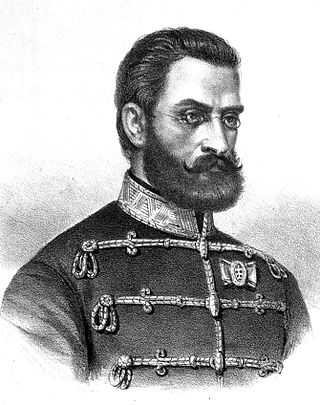 11
Károly Knezić was a honvéd general in the Hungarian Army. On his father's side he had Croatian roots, while his mother was a Hungarian. He was executed for his part in the Hungarian Revolution of...
11
Károly Knezić was a honvéd general in the Hungarian Army. On his father's side he had Croatian roots, while his mother was a Hungarian. He was executed for his part in the Hungarian Revolution of...
Gyula Derkovits
 11
Gyula Derkovits was a Hungarian painter and graphic artist whose work shows elements of Expressionism, Cubism and Constructivism.
11
Gyula Derkovits was a Hungarian painter and graphic artist whose work shows elements of Expressionism, Cubism and Constructivism.
Bertalan Szemere
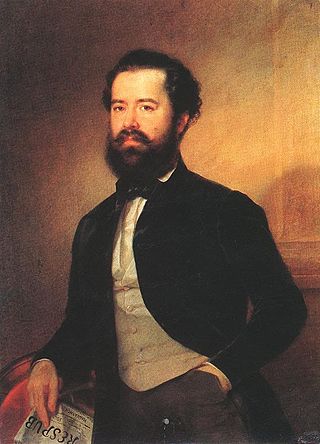 10
Bertalan Szemere was a Hungarian poet and nationalist who became the third Prime Minister of Hungary during the short period of the Hungarian Revolution of 1848 when Hungary was independent of rule...
10
Bertalan Szemere was a Hungarian poet and nationalist who became the third Prime Minister of Hungary during the short period of the Hungarian Revolution of 1848 when Hungary was independent of rule...
John Corvinus
 10
John Corvinus was the illegitimate son of Matthias Corvinus, King of Hungary, and his mistress, Barbara Edelpöck.
10
John Corvinus was the illegitimate son of Matthias Corvinus, King of Hungary, and his mistress, Barbara Edelpöck.
Gyulai Pál (irodalomtörténész)
 10
Gyulai Pál magyar irodalomtörténész, költő, író, egyetemi tanár, műkritikus, 1879-től 1899-ig Kisfaludy Társaság 4. elnöke, a Magyar Tudományos Akadémia tiszteleti tagja, a magyar főrendiház tagja és...
10
Gyulai Pál magyar irodalomtörténész, költő, író, egyetemi tanár, műkritikus, 1879-től 1899-ig Kisfaludy Társaság 4. elnöke, a Magyar Tudományos Akadémia tiszteleti tagja, a magyar főrendiház tagja és...
György Bessenyei
 10
György Bessenyei (1747–1811) was a Hungarian playwright and poet.
10
György Bessenyei (1747–1811) was a Hungarian playwright and poet.
Sigismund, Holy Roman Emperor
 10
Sigismund of Luxembourg was Holy Roman Emperor from 1433 until his death in 1437. He was elected King of Germany in 1410, and was also King of Bohemia from 1419, as well as prince-elector of...
10
Sigismund of Luxembourg was Holy Roman Emperor from 1433 until his death in 1437. He was elected King of Germany in 1410, and was also King of Bohemia from 1419, as well as prince-elector of...
Mari Jászai
 10
Mari Jászai was a Hungarian actress.
10
Mari Jászai was a Hungarian actress.
Szent Imre
 10
Szent Imre magyar királyi herceg Szent István király és Boldog Gizella királyné fia, a magyar trón örököse. Anyai nagybátyjáról, II. Henrik német-római császárról nevezték el, a Hahóti kódex és...
10
Szent Imre magyar királyi herceg Szent István király és Boldog Gizella királyné fia, a magyar trón örököse. Anyai nagybátyjáról, II. Henrik német-római császárról nevezték el, a Hahóti kódex és...
Miklós Jósika
 10
Miklós Jósika was a Hungarian soldier, politician and writer. He is recognized as the first successful novelist in Hungarian literature, through the publishing of one of his first works, Abafi...
10
Miklós Jósika was a Hungarian soldier, politician and writer. He is recognized as the first successful novelist in Hungarian literature, through the publishing of one of his first works, Abafi...
Michael (archangel)
 10
Michael, also called Saint Michael the Archangel, Archangel Michael and Saint Michael the Taxiarch is an archangel in Judaism, Christianity, Islam, and the Baha'i faith. The earliest surviving...
10
Michael, also called Saint Michael the Archangel, Archangel Michael and Saint Michael the Taxiarch is an archangel in Judaism, Christianity, Islam, and the Baha'i faith. The earliest surviving...
Mór Perczel
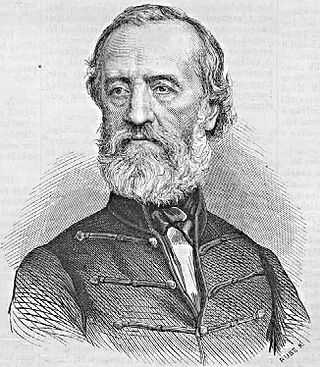 10
Sir Mór Perczel de Bonyhád, was a Hungarian landholder, general, and one of the leaders of the Hungarian Revolution of 1848.
10
Sir Mór Perczel de Bonyhád, was a Hungarian landholder, general, and one of the leaders of the Hungarian Revolution of 1848.
Gerard of Csanád
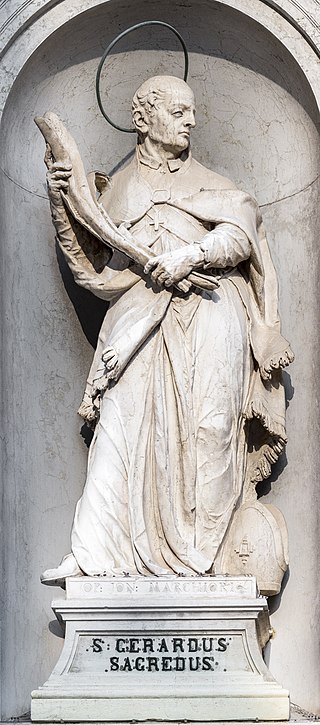 10
Gerard or Gerard Sagredo was the first bishop of Csanád in the Kingdom of Hungary from around 1030 to his death. Most information about his life was preserved in his legends which contain most...
10
Gerard or Gerard Sagredo was the first bishop of Csanád in the Kingdom of Hungary from around 1030 to his death. Most information about his life was preserved in his legends which contain most...
Bertalan Székely
 10
Bertalan Székely was a Hungarian history and portrait painter who worked in the Romantic and Academic styles.
10
Bertalan Székely was a Hungarian history and portrait painter who worked in the Romantic and Academic styles.
Hajnóczy József (jogász)
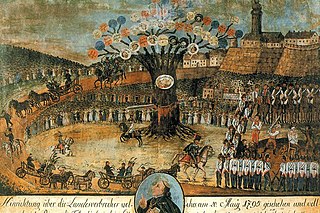 9
Hajnóczy József Krizosztomusz alispán, ügyvéd, királyi tanácsos, kamarai főtitkár, író. A magyar jakobinusok egyik vezető személyisége volt.
9
Hajnóczy József Krizosztomusz alispán, ügyvéd, királyi tanácsos, kamarai főtitkár, író. A magyar jakobinusok egyik vezető személyisége volt.
Aurél Stromfeld
 9
Aurél Stromfeld was a Hungarian general. He served as commander-in-chief of the Hungarian Red Army during the Hungarian Soviet Republic and had a major role in temporarily pressing back the Czech and...
9
Aurél Stromfeld was a Hungarian general. He served as commander-in-chief of the Hungarian Red Army during the Hungarian Soviet Republic and had a major role in temporarily pressing back the Czech and...
Frigyes Karinthy
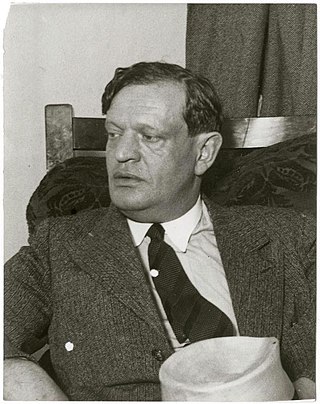 9
Frigyes Karinthy was a Hungarian author, playwright, poet, journalist, and translator. He was the first proponent of the six degrees of separation concept, in his 1929 short story, Chains...
9
Frigyes Karinthy was a Hungarian author, playwright, poet, journalist, and translator. He was the first proponent of the six degrees of separation concept, in his 1929 short story, Chains...
György Lahner
 9
György Lahner was a honvéd general in the Hungarian Army. He was executed for his part in the Hungarian Revolution of 1848, and is considered one of the 13 Martyrs of Arad.
9
György Lahner was a honvéd general in the Hungarian Army. He was executed for his part in the Hungarian Revolution of 1848, and is considered one of the 13 Martyrs of Arad.
Albert Szent-Györgyi
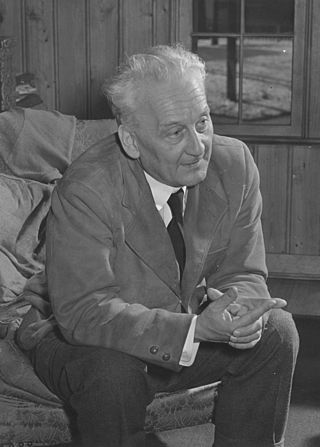 9
Albert Imre Szent-Györgyi de Nagyrápolt was a Hungarian biochemist who won the Nobel Prize in Physiology or Medicine in 1937. He is credited with first isolating vitamin C and discovering many of the...
9
Albert Imre Szent-Györgyi de Nagyrápolt was a Hungarian biochemist who won the Nobel Prize in Physiology or Medicine in 1937. He is credited with first isolating vitamin C and discovering many of the...
Gisela of Hungary
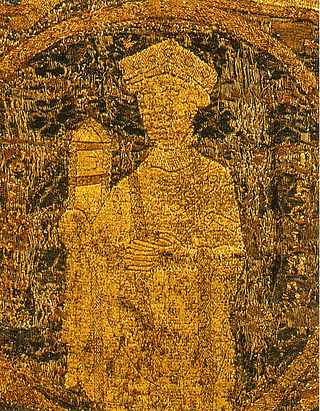 9
Gisela of Hungary was the first queen consort of Hungary by marriage to Stephen I of Hungary, and the sister of Henry II, Holy Roman Emperor. She has been beatified by the Catholic Church.
9
Gisela of Hungary was the first queen consort of Hungary by marriage to Stephen I of Hungary, and the sister of Henry II, Holy Roman Emperor. She has been beatified by the Catholic Church.
Árpád Feszty
 9
Árpád Feszty was a Hungarian painter.
He was born in the town of Ógyalla. His ancestors were German settlers. He was the fifth child of Silvester Rehrenbeck (1819–1910), an affluent landowner at...
9
Árpád Feszty was a Hungarian painter.
He was born in the town of Ógyalla. His ancestors were German settlers. He was the fifth child of Silvester Rehrenbeck (1819–1910), an affluent landowner at...
Tessedik Sámuel (lelkész, 1742–1820)
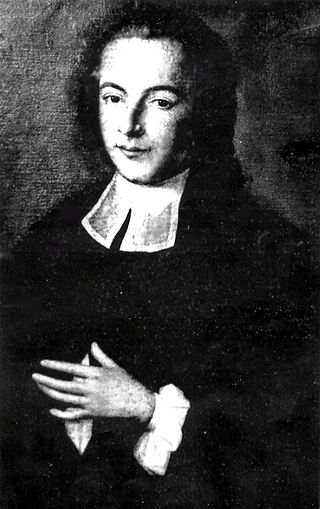 9
Tessedik Sámuel, szlovákul: Samuel Tešedík, németül Samuel Teschedik evangélikus lelkész, pedagógus, pedagógiai és gazdasági szakíró.
9
Tessedik Sámuel, szlovákul: Samuel Tešedík, németül Samuel Teschedik evangélikus lelkész, pedagógus, pedagógiai és gazdasági szakíró.
Kond (chieftain)
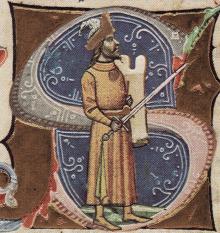 9
Kond was – according to chronicler Anonymus – one of the seven chieftains of the Magyars (Hungarians), who led the Hungarians to the Carpathian Basin in 895.
9
Kond was – according to chronicler Anonymus – one of the seven chieftains of the Magyars (Hungarians), who led the Hungarians to the Carpathian Basin in 895.
Szántó Kovács János
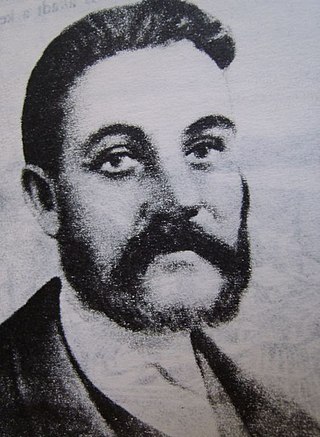 9
Szántó Kovács János földmunkás, proletár, a magyarországi- és hódmezővásárhelyi agrárszocializmus vezetője.
9
Szántó Kovács János földmunkás, proletár, a magyarországi- és hódmezővásárhelyi agrárszocializmus vezetője.
Seven chieftains of the Magyars
József Nagysándor
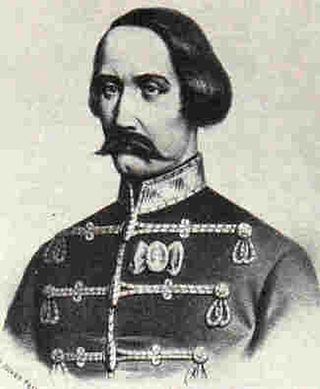 8
József Nagysándor was a honvéd general in the Hungarian Army. He was executed for his part in the Hungarian Revolution of 1848, and is considered one of the 13 Martyrs of Arad.
8
József Nagysándor was a honvéd general in the Hungarian Army. He was executed for his part in the Hungarian Revolution of 1848, and is considered one of the 13 Martyrs of Arad.
Károly Kós
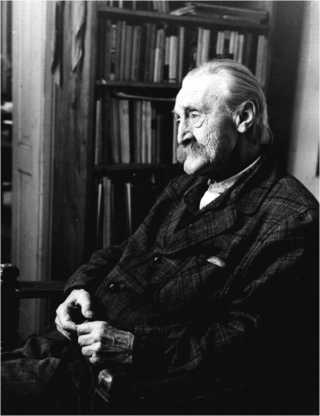 8
Károly Kós was a Hungarian architect, writer, illustrator, ethnologist and politician of Austria-Hungary and Romania.
8
Károly Kós was a Hungarian architect, writer, illustrator, ethnologist and politician of Austria-Hungary and Romania.
Ervin Szabó
 8
Ervin Szabó was a Hungarian social scientist, librarian and anarcho-syndicalist revolutionary.
8
Ervin Szabó was a Hungarian social scientist, librarian and anarcho-syndicalist revolutionary.
László Csány
 8
László Csány was a Hungarian politician, who served as Minister of Public Works and Transport in 1849. He is a martyr of the Hungarian Revolution of 1848.
8
László Csány was a Hungarian politician, who served as Minister of Public Works and Transport in 1849. He is a martyr of the Hungarian Revolution of 1848.
Ottó Bláthy
 8
Ottó Titusz Bláthy was a Hungarian electrical engineer. During his career he became the co-inventor of the modern electric transformer, the tension regulator, the AC watt-hour meter, the turbo...
8
Ottó Titusz Bláthy was a Hungarian electrical engineer. During his career he became the co-inventor of the modern electric transformer, the tension regulator, the AC watt-hour meter, the turbo...
Viktor Madarász
 8
Viktor Madarász was a Hungarian painter in the Romantic style. He is best known for his historical scenes and portraits.
8
Viktor Madarász was a Hungarian painter in the Romantic style. He is best known for his historical scenes and portraits.
Elizabeth Szilágyi
 8
Erzsébet Szilágyi was a Hungarian noblewoman, wife of John Hunyadi and mother of Matthias Corvinus, King of Hungary.
8
Erzsébet Szilágyi was a Hungarian noblewoman, wife of John Hunyadi and mother of Matthias Corvinus, King of Hungary.
Saint Barbara
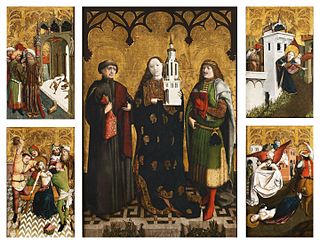 8
Saint Barbara, known in the Eastern Orthodox Church as the Great Martyr Barbara, was an early Christian Greek saint and martyr.
8
Saint Barbara, known in the Eastern Orthodox Church as the Great Martyr Barbara, was an early Christian Greek saint and martyr.
Vas Gereben
 8
Vas Gereben magyar ügyvéd és hírlapíró, a szabadságharc utáni években Jókai után a legnépszerűbb elbeszélők egyike. Írói álneve: Harapófogó Dániel.
8
Vas Gereben magyar ügyvéd és hírlapíró, a szabadságharc utáni években Jókai után a legnépszerűbb elbeszélők egyike. Írói álneve: Harapófogó Dániel.
József Egry
 8
József Egry (1883–1951) was a Hungarian painter, considered a significant representative of Hungarian modernism.
8
József Egry (1883–1951) was a Hungarian painter, considered a significant representative of Hungarian modernism.
Béla IV of Hungary
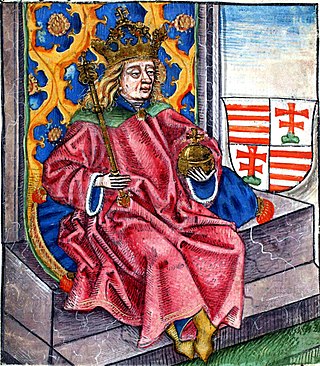 8
Béla IV was King of Hungary and Croatia between 1235 and 1270, and Duke of Styria from 1254 to 1258. As the oldest son of King Andrew II, he was crowned upon the initiative of a group of influential...
8
Béla IV was King of Hungary and Croatia between 1235 and 1270, and Duke of Styria from 1254 to 1258. As the oldest son of King Andrew II, he was crowned upon the initiative of a group of influential...
Lóczy Lajos (geológus, 1849–1920)
 8
Lóci Lóczy Lajos magyar geológus, geográfus, egyetemi tanár, a Magyar Tudományos Akadémia tagja. A magyar földtan és földrajz kiváló tudósa. Életművéből kiemelkedik és nagy nemzetközi visszhangot is...
8
Lóci Lóczy Lajos magyar geológus, geográfus, egyetemi tanár, a Magyar Tudományos Akadémia tagja. A magyar földtan és földrajz kiváló tudósa. Életművéből kiemelkedik és nagy nemzetközi visszhangot is...
Ferenc Molnár
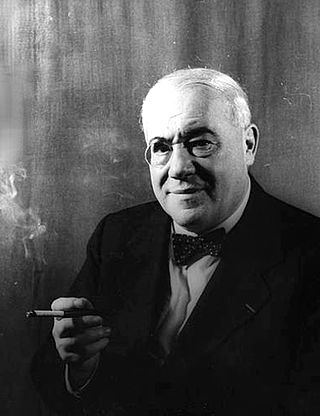 8
Ferenc Molnár, often anglicized as Franz Molnar, was a Hungarian-born author, stage director, dramatist, and poet, widely regarded as Hungary's most celebrated and controversial playwright. His...
8
Ferenc Molnár, often anglicized as Franz Molnar, was a Hungarian-born author, stage director, dramatist, and poet, widely regarded as Hungary's most celebrated and controversial playwright. His...
István Csók
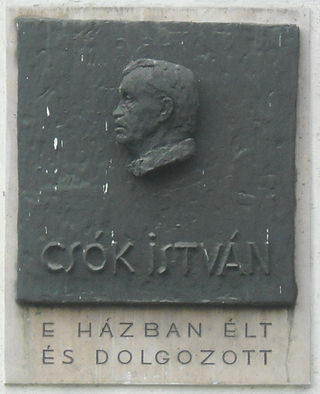 8
István Csók was a Hungarian Impressionist painter. Csók lived and exhibited in Paris for a portion of his life. He became most famous in Hungary for his nudes, portraits, and landscapes of the Lake...
8
István Csók was a Hungarian Impressionist painter. Csók lived and exhibited in Paris for a portion of his life. He became most famous in Hungary for his nudes, portraits, and landscapes of the Lake...
Béni Egressy
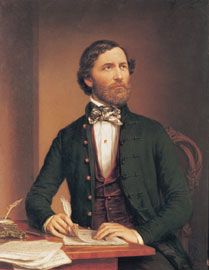 8
Béni Egressy was a Hungarian composer, librettist, translator and actor. He created a number of popular melodic compositions, including the one to Mihály Vörösmarty's patriotic poem Szózat. He also...
8
Béni Egressy was a Hungarian composer, librettist, translator and actor. He created a number of popular melodic compositions, including the one to Mihály Vörösmarty's patriotic poem Szózat. He also...
Albert Wass
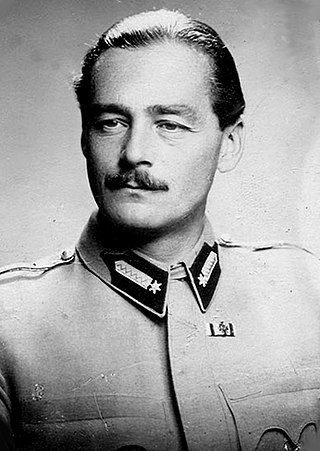 8
Count Albert Wass de Szentegyed et Czege was a Hungarian nobleman, forest engineer, novelist, poet, member of the Wass de Czege family.
8
Count Albert Wass de Szentegyed et Czege was a Hungarian nobleman, forest engineer, novelist, poet, member of the Wass de Czege family.
Ferenc Erdei
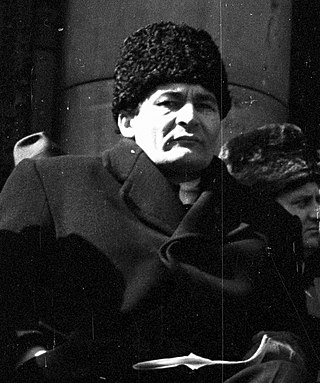 8
Ferenc Erdei was a Hungarian politician and sociologist, who served as Interior Minister in the unofficial interim government led by Béla Miklós. After the Soviet occupation of Hungary this cabinet...
8
Ferenc Erdei was a Hungarian politician and sociologist, who served as Interior Minister in the unofficial interim government led by Béla Miklós. After the Soviet occupation of Hungary this cabinet...
Géza Gyóni
 8
Géza Gyóni was a Hungarian war poet. He died in a Russian prisoner of war camp during the First World War.
8
Géza Gyóni was a Hungarian war poet. He died in a Russian prisoner of war camp during the First World War.
Gyula Krúdy
 7
Gyula Krúdy was a Hungarian writer and journalist.
7
Gyula Krúdy was a Hungarian writer and journalist.
Antal Grassalkovich
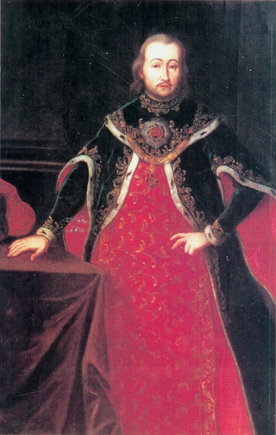 7
Anton Graf Grassalkovich de Gyarak was an Imperial Real Privy Councilor, President of the Royal Hungarian Court Chamber, Chief Justice of Hungary (1731–1748), and confidant of Empress Maria Theresia.
7
Anton Graf Grassalkovich de Gyarak was an Imperial Real Privy Councilor, President of the Royal Hungarian Court Chamber, Chief Justice of Hungary (1731–1748), and confidant of Empress Maria Theresia.
Lajos Kassák
 7
Lajos Kassák was a Hungarian poet, novelist, painter, essayist, editor, theoretician of the avant-garde, and occasional translator. He was among the first genuine working-class writers in Hungarian...
7
Lajos Kassák was a Hungarian poet, novelist, painter, essayist, editor, theoretician of the avant-garde, and occasional translator. He was among the first genuine working-class writers in Hungarian...
Sándor Bródy (writer)
 7
Sándor Bródy was a Hungarian author and journalist.
7
Sándor Bródy was a Hungarian author and journalist.
Pongrác Kacsóh
 7
Pongrác Kacsóh (1873-1923) was a Hungarian composer. He is best known for his operetta based on Sándor Petőfi's János Vitéz to a libretto by Jenő Heltai.
7
Pongrác Kacsóh (1873-1923) was a Hungarian composer. He is best known for his operetta based on Sándor Petőfi's János Vitéz to a libretto by Jenő Heltai.
Irányi Dániel
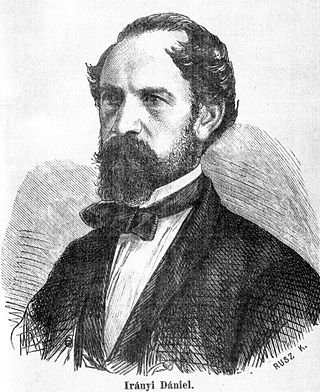 7
Irányi Dániel a márciusi ifjak egyike, politikus, publicista.
7
Irányi Dániel a márciusi ifjak egyike, politikus, publicista.
John von Neumann
 7
John von Neumann was a Hungarian and American mathematician, physicist, computer scientist, engineer and polymath. He had perhaps the widest coverage of any mathematician of his time, integrating...
7
John von Neumann was a Hungarian and American mathematician, physicist, computer scientist, engineer and polymath. He had perhaps the widest coverage of any mathematician of his time, integrating...
Saint Nicholas
 7
Saint Nicholas of Myra, also known as Nicholas of Bari, was an early Christian bishop of Greek descent from the maritime city of Patara in Anatolia during the time of the Roman Empire. Because of the...
7
Saint Nicholas of Myra, also known as Nicholas of Bari, was an early Christian bishop of Greek descent from the maritime city of Patara in Anatolia during the time of the Roman Empire. Because of the...
Asztalos Sándor (katona)
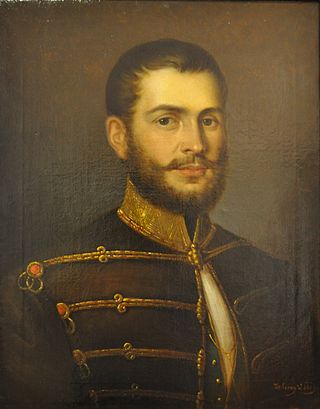 7
Asztalos Sándor magyar honvédezredes, az aradi hős.
7
Asztalos Sándor magyar honvédezredes, az aradi hős.
Frigyes Korányi (physician)
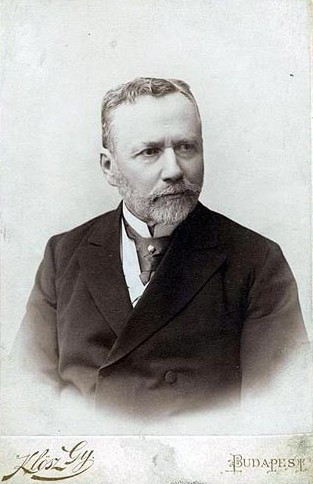 7
Baron Frigyes Korányi de Tolcsva was a Hungarian physician specializing in internal medicine, especially pulmonary medicine. The Korányi's sign is named after him.
7
Baron Frigyes Korányi de Tolcsva was a Hungarian physician specializing in internal medicine, especially pulmonary medicine. The Korányi's sign is named after him.
Pál Szinyei Merse
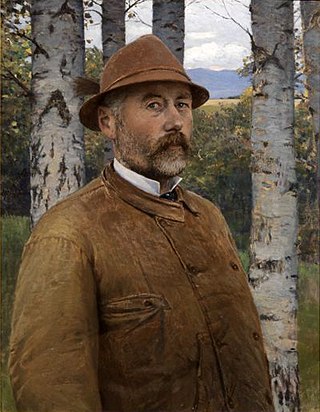 7
Pál Szinyei Merse was a Hungarian painter and art educator.
7
Pál Szinyei Merse was a Hungarian painter and art educator.
Henryk Dembiński
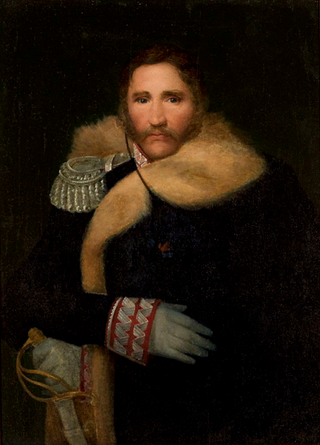 7
Henryk Dembiński was a Polish engineer, traveler and general.
7
Henryk Dembiński was a Polish engineer, traveler and general.
Franz Lehár
 7
Franz Lehár was an Austro-Hungarian composer. He is mainly known for his operettas, of which the most successful and best known is The Merry Widow.
7
Franz Lehár was an Austro-Hungarian composer. He is mainly known for his operettas, of which the most successful and best known is The Merry Widow.
Dobozi Mihály
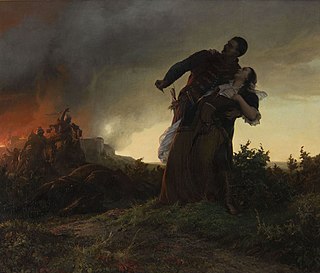 7
Dobozi Mihály – a korabeli írások adatai szerint nagy valószínűséggel a fejérmegyei Dobozra való egytelkes nemes katona volt, aki részt vett a maróti csatában.
7
Dobozi Mihály – a korabeli írások adatai szerint nagy valószínűséggel a fejérmegyei Dobozra való egytelkes nemes katona volt, aki részt vett a maróti csatában.
Bálint Török
 7
Bálint Török de Enying was a Hungarian aristocrat, Ban of Nándorfehérvár (Belgrade), and between 1527–1542 the Lord of Csesznek. He led a rebellion against the Ottoman Empire until he was captured by...
7
Bálint Török de Enying was a Hungarian aristocrat, Ban of Nándorfehérvár (Belgrade), and between 1527–1542 the Lord of Csesznek. He led a rebellion against the Ottoman Empire until he was captured by...
Pálné Veres
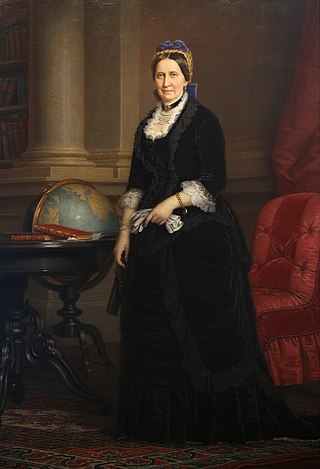 6
Hermína Karolína Benická Verešová commonly known as Pálné Veres was a teacher and feminist from the Slovak Region of the Kingdom of Hungary. Her family were German-speaking Lutherans. Her father was...
6
Hermína Karolína Benická Verešová commonly known as Pálné Veres was a teacher and feminist from the Slovak Region of the Kingdom of Hungary. Her family were German-speaking Lutherans. Her father was...
Lázár Mészáros
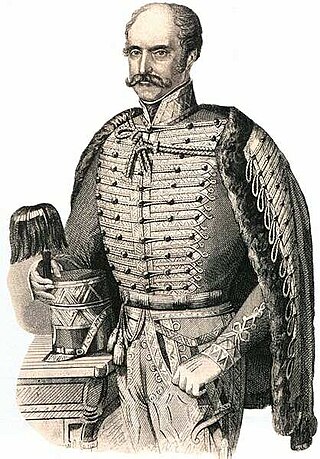 6
General Lázár Mészáros (English: Lazarus Mészáros), was the Minister of War during the 1848 Hungarian Revolution.
6
General Lázár Mészáros (English: Lazarus Mészáros), was the Minister of War during the 1848 Hungarian Revolution.
Károly Lotz
 6
Lotz Károly Antal Pál, or Karl Anton Paul Lotz was a German-Hungarian painter.
6
Lotz Károly Antal Pál, or Karl Anton Paul Lotz was a German-Hungarian painter.
Mihály Zichy
 6
Mihály Zichy was a Hungarian painter and graphic artist. He is considered a notable representative of Hungarian romantic painting. He lived and worked primarily in St. Petersburg and Paris during his...
6
Mihály Zichy was a Hungarian painter and graphic artist. He is considered a notable representative of Hungarian romantic painting. He lived and worked primarily in St. Petersburg and Paris during his...
Ernő Poeltenberg
 6
Ernő Poeltenberg was a honvéd general in the Hungarian Army. He was executed for his part in the Hungarian Revolution of 1848, and is considered one of the 13 Martyrs of Arad.
6
Ernő Poeltenberg was a honvéd general in the Hungarian Army. He was executed for his part in the Hungarian Revolution of 1848, and is considered one of the 13 Martyrs of Arad.
Károly Leiningen-Westerburg
 6
Károly Leiningen-Westerburg was a German honvéd general in the Hungarian Army, and a member of the German House of Leiningen. He was executed for his part in the Hungarian Revolution of 1848, and is...
6
Károly Leiningen-Westerburg was a German honvéd general in the Hungarian Army, and a member of the German House of Leiningen. He was executed for his part in the Hungarian Revolution of 1848, and is...
József Schweidel
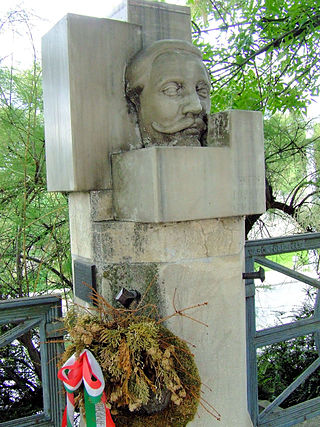 6
József Schweidel was a honvéd general in the Hungarian Army. He was executed for his part in the Hungarian Revolution of 1848, and is considered one of the 13 Martyrs of Arad.
6
József Schweidel was a honvéd general in the Hungarian Army. He was executed for his part in the Hungarian Revolution of 1848, and is considered one of the 13 Martyrs of Arad.
János Fadrusz
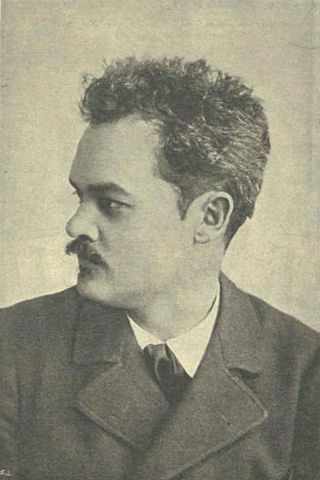 6
János Fadrusz was a Hungarian sculptor in the Neoclassical style. He was especially noted for his works on historical subjects.
6
János Fadrusz was a Hungarian sculptor in the Neoclassical style. He was especially noted for his works on historical subjects.
Mihály Pollack
 6
Mihály Pollack was an Austrian-born Hungarian architect, key figure of neoclassical architecture. His main work is the Hungarian National Museum (1837–46).
6
Mihály Pollack was an Austrian-born Hungarian architect, key figure of neoclassical architecture. His main work is the Hungarian National Museum (1837–46).
Gergely Bornemissza
 6
Gergely Bornemissza was a Hungarian soldier and national hero.
6
Gergely Bornemissza was a Hungarian soldier and national hero.
Anthony of Padua
 6
Anthony of Padua, OFM or Anthony of Lisbon was a Portuguese Catholic priest and friar of the Franciscan Order.
6
Anthony of Padua, OFM or Anthony of Lisbon was a Portuguese Catholic priest and friar of the Franciscan Order.
Rómer Flóris
 6
Rómer Flóris bencés szerzetes, régész, művészettörténész, festőművész, egyetemi tanár, a Magyar Tudományos Akadémia tagja, nagyváradi nagy-prépost-kanonok, címzetes püspök A magyar régészet atyja.
6
Rómer Flóris bencés szerzetes, régész, művészettörténész, festőművész, egyetemi tanár, a Magyar Tudományos Akadémia tagja, nagyváradi nagy-prépost-kanonok, címzetes püspök A magyar régészet atyja.
Mihály Horváth
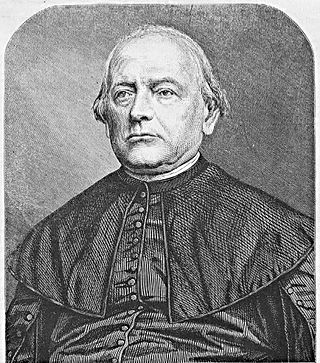 6
Mihály Horváth was a Hungarian Roman Catholic bishop, historian, and politician. He was an exponent of Hungarian nationalism with an emphasis on its historical culture.
6
Mihály Horváth was a Hungarian Roman Catholic bishop, historian, and politician. He was an exponent of Hungarian nationalism with an emphasis on its historical culture.
Lőrinc Szabó
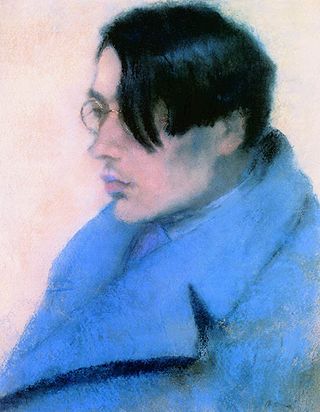 6
Lőrinc Szabó de Gáborján was a Hungarian poet and literary translator.
6
Lőrinc Szabó de Gáborján was a Hungarian poet and literary translator.
Mihály Károlyi
 6
Count Mihály Ádám György Miklós Károlyi de Nagykároly was a Hungarian politician who served as a leader of the short-lived and unrecognized First Hungarian Republic from 1918 to 1919. He served as...
6
Count Mihály Ádám György Miklós Károlyi de Nagykároly was a Hungarian politician who served as a leader of the short-lived and unrecognized First Hungarian Republic from 1918 to 1919. He served as...
László Paál
 6
László Paál was a Hungarian Impressionist landscape painter.
6
László Paál was a Hungarian Impressionist landscape painter.
Martin of Tours
 6
Martin of Tours, also known as Martin the Merciful, was the third bishop of Tours. He has become one of the most familiar and recognizable Christian saints in France, heralded as the patron saint of...
6
Martin of Tours, also known as Martin the Merciful, was the third bishop of Tours. He has become one of the most familiar and recognizable Christian saints in France, heralded as the patron saint of...
Elek Benedek
 6
Benedek Elek was a Hungarian journalist and writer, widely known as "The Great Folk-Tale Teller" of The "Szekely Hungarian" Fairy-Tales.
6
Benedek Elek was a Hungarian journalist and writer, widely known as "The Great Folk-Tale Teller" of The "Szekely Hungarian" Fairy-Tales.
Antal Szerb
 6
Antal Szerb was a noted Hungarian scholar and writer. He is generally considered to be one of the major Hungarian writers of the 20th century.
6
Antal Szerb was a noted Hungarian scholar and writer. He is generally considered to be one of the major Hungarian writers of the 20th century.
Andrew the Apostle
 6
Andrew the Apostle, also called Saint Andrew, was an apostle of Jesus. According to the New Testament, he was a fisherman and one of the Twelve Apostles chosen by Jesus. The title First-Called stems...
6
Andrew the Apostle, also called Saint Andrew, was an apostle of Jesus. According to the New Testament, he was a fisherman and one of the Twelve Apostles chosen by Jesus. The title First-Called stems...
István Fekete
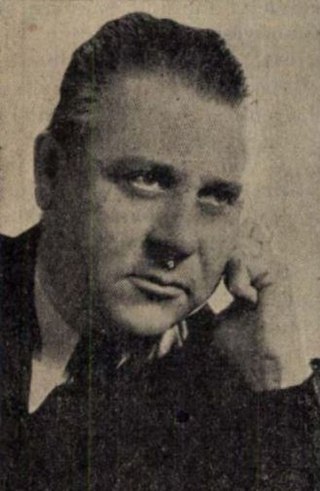 6
István Fekete was a Hungarian writer. He wrote several youth novels and animal stories.
6
István Fekete was a Hungarian writer. He wrote several youth novels and animal stories.
Blanka Teleki
 6
Countess Blanka Teleki de Szék was a Hungarian noblewoman, educator and women's rights activist. She is regarded as an early feminist and pioneer in the education of females.
6
Countess Blanka Teleki de Szék was a Hungarian noblewoman, educator and women's rights activist. She is regarded as an early feminist and pioneer in the education of females.
Giuseppe Garibaldi
 5
Giuseppe Maria Garibaldi was an Italian general, patriot, revolutionary and republican. He contributed to Italian unification (Risorgimento) and the creation of the Kingdom of Italy. He is considered...
5
Giuseppe Maria Garibaldi was an Italian general, patriot, revolutionary and republican. He contributed to Italian unification (Risorgimento) and the creation of the Kingdom of Italy. He is considered...
János Apáczai Csere
 5
János Apáczai Csere was a Hungarian polyglot, pedagogist, philosopher and theologian, famous for his work The Hungarian Encyclopedia, the first textbook to be written in Hungarian. The Encyclopædia...
5
János Apáczai Csere was a Hungarian polyglot, pedagogist, philosopher and theologian, famous for his work The Hungarian Encyclopedia, the first textbook to be written in Hungarian. The Encyclopædia...
Charles I of Hungary
Gáspár Károlyi
 5
Gáspár Károlyi, or in Protestant usage, Károli was a Hungarian Calvinist pastor. He was a major figure in the Reformed Church in Hungary. He edited the Vizsoly Bible.
5
Gáspár Károlyi, or in Protestant usage, Károli was a Hungarian Calvinist pastor. He was a major figure in the Reformed Church in Hungary. He edited the Vizsoly Bible.
Eötvös Károly
 5
Ráczkevi Eötvös Károly politikus, ügyvéd, író, publicista, országgyűlési képviselő, „a Vajda”. Korának egyik legnevesebb ügyvédje és legismertebb közéleti személyisége, az 1883-as tiszaeszlári vérvád...
5
Ráczkevi Eötvös Károly politikus, ügyvéd, író, publicista, országgyűlési képviselő, „a Vajda”. Korának egyik legnevesebb ügyvédje és legismertebb közéleti személyisége, az 1883-as tiszaeszlári vérvád...
Albert Apponyi
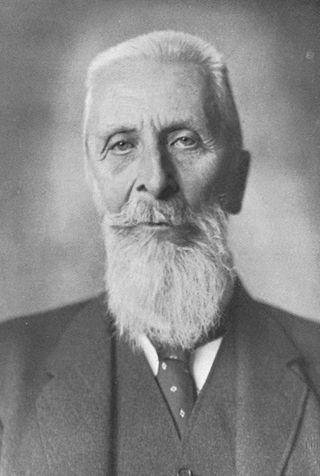 5
Albert György Gyula Mária Apponyi, Count of Nagyappony was a Hungarian aristocrat and politician. He was a board member of the Hungarian Academy of Sciences, Chairman of Saint Stephen's Academy from...
5
Albert György Gyula Mária Apponyi, Count of Nagyappony was a Hungarian aristocrat and politician. He was a board member of the Hungarian Academy of Sciences, Chairman of Saint Stephen's Academy from...
Zsuzsanna Lorántffy
 5
Zsuzsanna Lorántffy, anglicized as Susanna Lorantffy was a Princess consort of Transylvania by marriage to György Rákóczi I, Prince of Transylvania.
5
Zsuzsanna Lorántffy, anglicized as Susanna Lorantffy was a Princess consort of Transylvania by marriage to György Rákóczi I, Prince of Transylvania.
István Bibó
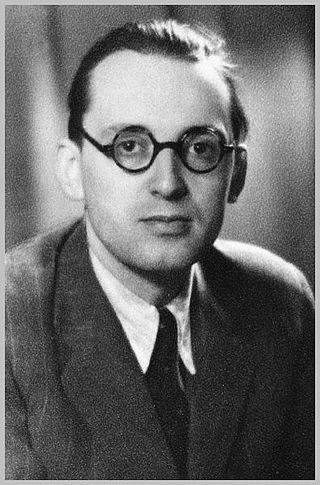 5
István Bibó was a Hungarian lawyer, civil servant, politician and political theorist.
5
István Bibó was a Hungarian lawyer, civil servant, politician and political theorist.
Dezső Szabó (writer)
 5
Dezső Szabó was a Hungarian linguist, writer, noted mainly for his three-volume novel "Az elsodort falu" and his pamphlets. Szabó's oeuvre is contradictory, some consider it as the peak of Hungarian...
5
Dezső Szabó was a Hungarian linguist, writer, noted mainly for his three-volume novel "Az elsodort falu" and his pamphlets. Szabó's oeuvre is contradictory, some consider it as the peak of Hungarian...
Vilmos Tartsay
 5
Vilmos Tartsay, was a military officer who took part in the Hungarian resistance movement in the Second World War.
5
Vilmos Tartsay, was a military officer who took part in the Hungarian resistance movement in the Second World War.
Saint Anne
 5
According to apocrypha, as well as Christian and Islamic tradition, Saint Anne was the mother of Mary, the wife of Joachim and the maternal grandmother of Jesus. Mary's mother is not named in the...
5
According to apocrypha, as well as Christian and Islamic tradition, Saint Anne was the mother of Mary, the wife of Joachim and the maternal grandmother of Jesus. Mary's mother is not named in the...
Virág Benedek
 5
Virág Benedek tanár, költő, műfordító, történetíró, a magyar ódaköltészet első mestere.
5
Virág Benedek tanár, költő, műfordító, történetíró, a magyar ódaköltészet első mestere.
Vilmos Apor
 5
Baron Vilmos Apor de Altorja was a Hungarian Roman Catholic prelate, born as a baron in the noble Apor family, and served as a bishop during World War II. He became famous for protesting against the...
5
Baron Vilmos Apor de Altorja was a Hungarian Roman Catholic prelate, born as a baron in the noble Apor family, and served as a bishop during World War II. He became famous for protesting against the...
Kuno von Klebelsberg
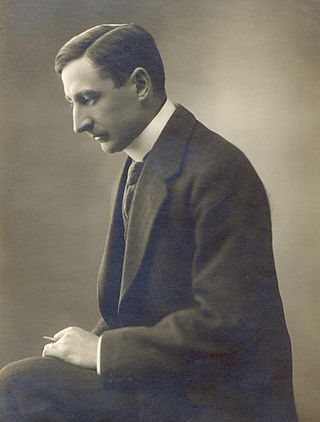 5
Count Kuno von Klebelsberg zu Thumburg was a Hungarian politician who served as Minister of the Interior and Minister of Culture of the Kingdom of Hungary between the two world wars.
5
Count Kuno von Klebelsberg zu Thumburg was a Hungarian politician who served as Minister of the Interior and Minister of Culture of the Kingdom of Hungary between the two world wars.
Mészáros Lőrinc (ferences szerzetes)
 5
Nagybotú Mészáros Lőrinc, gyakran csak „Lőrinc pap” magyar katolikus pap, plébános, a Dózsa György-féle parasztfelkelés résztvevője, egyik vezetője.
5
Nagybotú Mészáros Lőrinc, gyakran csak „Lőrinc pap” magyar katolikus pap, plébános, a Dózsa György-féle parasztfelkelés résztvevője, egyik vezetője.
József Kiss (poet)
 5
József Kiss was a Hungarian poet and editor.
5
József Kiss was a Hungarian poet and editor.
István Türr
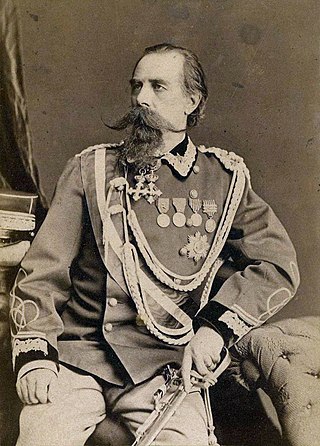 5
István Türr was a Hungarian soldier, revolutionary, canal architect and engineer, remembered in Italy for his role in that country's unification and his association with Garibaldi. In the later years...
5
István Türr was a Hungarian soldier, revolutionary, canal architect and engineer, remembered in Italy for his role in that country's unification and his association with Garibaldi. In the later years...
Saint Joseph
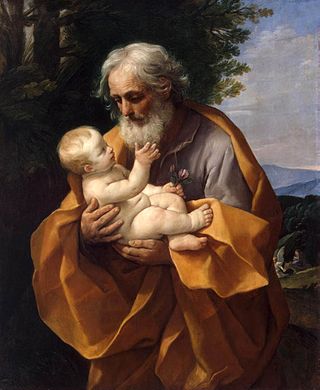 5
Joseph was a 1st-century Jewish man of Nazareth who, according to the canonical Gospels, was married to Mary, the mother of Jesus, and was the legal father of Jesus.
5
Joseph was a 1st-century Jewish man of Nazareth who, according to the canonical Gospels, was married to Mary, the mother of Jesus, and was the legal father of Jesus.
Endrődi Sándor (költő)
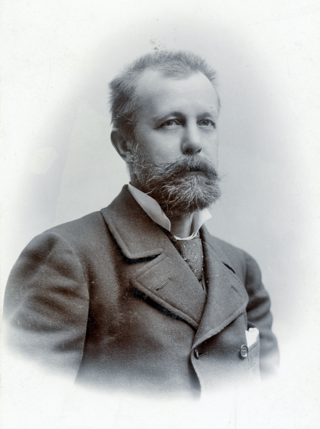 5
Endrődi Sándor magyar költő, író, az MTA levelező tagja.
5
Endrődi Sándor magyar költő, író, az MTA levelező tagja.
János Kodolányi
 5
János Kodolányi Hungarian writer of short stories, dramas, novels and sociographies. The Kodolányi János University of Applied Sciences was named after him.
5
János Kodolányi Hungarian writer of short stories, dramas, novels and sociographies. The Kodolányi János University of Applied Sciences was named after him.
Béla Balázs
 5
Béla Balázs, born Herbert Béla Bauer, was a Hungarian film critic, aesthetician, writer and poet of Jewish heritage. He was a proponent of formalist film theory.
5
Béla Balázs, born Herbert Béla Bauer, was a Hungarian film critic, aesthetician, writer and poet of Jewish heritage. He was a proponent of formalist film theory.
Simon István (költő)
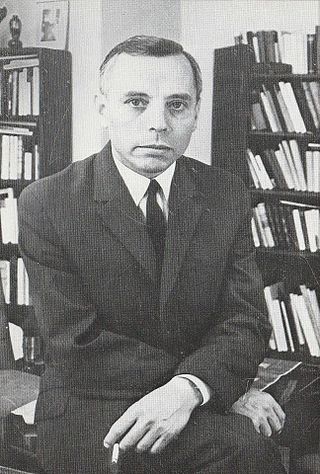 5
Simon István magyar költő, műfordító, esszéíró, szerkesztő, országgyűlési képviselő, egyetemi tanár.
5
Simon István magyar költő, műfordító, esszéíró, szerkesztő, országgyűlési képviselő, egyetemi tanár.
Ferenc Faludi
 5
Ferenc Faludi was a Hungarian poet who has been referred to as "the father of the new Hungarian lyric." Because of Suppression of the Society of Jesus he switched to being in charge of a poorhouse....
5
Ferenc Faludi was a Hungarian poet who has been referred to as "the father of the new Hungarian lyric." Because of Suppression of the Society of Jesus he switched to being in charge of a poorhouse....
Kelemen László
 4
Kelemen László (1762-1814) was a Hungarian stage dramatist and theater director. He played a major pioneer role in Hungarian theater history as the founder of the first professional Hungarian...
4
Kelemen László (1762-1814) was a Hungarian stage dramatist and theater director. He played a major pioneer role in Hungarian theater history as the founder of the first professional Hungarian...
Szabolcska Mihály
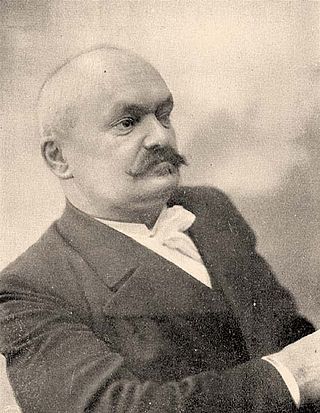 4
Szabolcska Mihály református lelkész, költő. Fia Szabolcska László (1897–1957) irodalomtörténész volt.
4
Szabolcska Mihály református lelkész, költő. Fia Szabolcska László (1897–1957) irodalomtörténész volt.
Kálmán Thaly
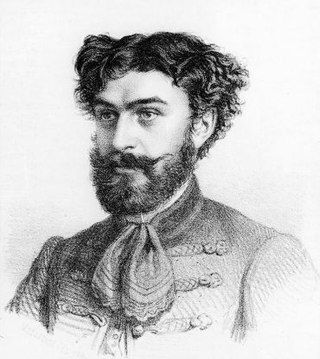 4
Kálmán Thaly was a Hungarian poet, historian and politician. His most important works are his Kuruc poetry, the most famous literary forgery in the history of Hungarian literature.
4
Kálmán Thaly was a Hungarian poet, historian and politician. His most important works are his Kuruc poetry, the most famous literary forgery in the history of Hungarian literature.
Farkas Bolyai
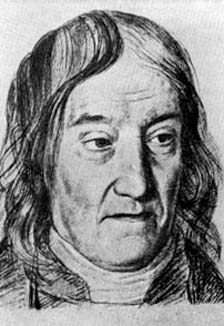 4
Farkas Bolyai was a Hungarian mathematician, mainly known for his work in geometry.
4
Farkas Bolyai was a Hungarian mathematician, mainly known for his work in geometry.
Géza Mészöly (painter)
 4
Géza Mészöly was a Hungarian landscape painter.
4
Géza Mészöly was a Hungarian landscape painter.
Noszlopy Gáspár
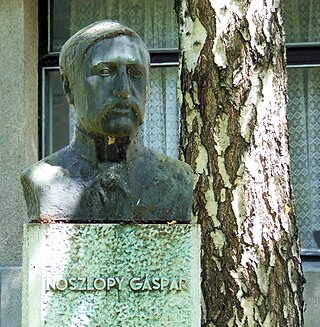 4
Noszlopi Noszlopy Gáspár honvédőrnagy, kormánybiztos, az 1848–49-es szabadságharcot követő függetlenségi szervezkedések egyik vezetője és vértanúja.
4
Noszlopi Noszlopy Gáspár honvédőrnagy, kormánybiztos, az 1848–49-es szabadságharcot követő függetlenségi szervezkedések egyik vezetője és vértanúja.
Brusznyai Árpád
 4
Brusznyai Árpád, középiskolai tanár, az 1956-os forradalom kivégzett mártírja.
4
Brusznyai Árpád, középiskolai tanár, az 1956-os forradalom kivégzett mártírja.
Pál Teleki
 4
Count Pál János Ede Teleki de Szék was a Hungarian politician who served as Prime Minister of the Kingdom of Hungary from 1920 to 1921 and from 1939 to 1941. He was also an expert in geography, a...
4
Count Pál János Ede Teleki de Szék was a Hungarian politician who served as Prime Minister of the Kingdom of Hungary from 1920 to 1921 and from 1939 to 1941. He was also an expert in geography, a...
Áron Márton
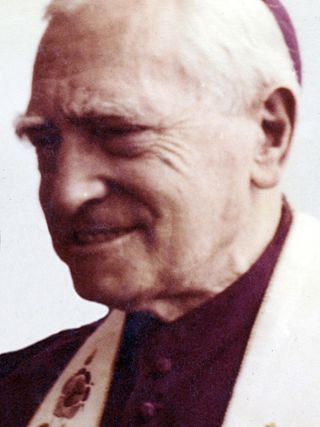 4
Áron Márton was an ethnic Hungarian Roman Catholic prelate who served as the Bishop of Alba Iulia from his appointment in late 1938 until his resignation in 1980. He served as a prelate during a...
4
Áron Márton was an ethnic Hungarian Roman Catholic prelate who served as the Bishop of Alba Iulia from his appointment in late 1938 until his resignation in 1980. He served as a prelate during a...
Nagy Jenő (katonatiszt)
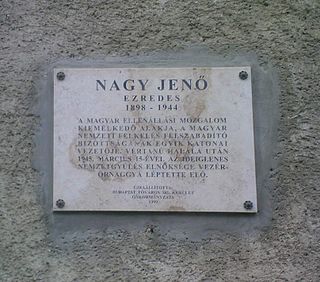 4
Nagy Jenő magyar katonatiszt, vezérkari ezredes. A nyilaskeresztes hatalom egyik áldozata.
4
Nagy Jenő magyar katonatiszt, vezérkari ezredes. A nyilaskeresztes hatalom egyik áldozata.
Vajda Péter (költő)
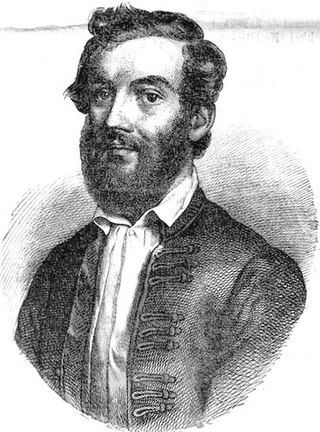 4
Vajda Péter magyar költő, drámaíró, pedagógus, evangélikus gimnáziumi tanár, a Magyar Tudományos Akadémia és a Kisfaludy Társaság rendes tagja. Vajda János költő nagybátyja.
4
Vajda Péter magyar költő, drámaíró, pedagógus, evangélikus gimnáziumi tanár, a Magyar Tudományos Akadémia és a Kisfaludy Társaság rendes tagja. Vajda János költő nagybátyja.
László Teleki
 4
Count László Teleki IV de Szék was a Hungarian writer and statesman. He is remembered as the author of the drama Kegyencz. In older books in English he is given the name "Ladislas Teleky".
4
Count László Teleki IV de Szék was a Hungarian writer and statesman. He is remembered as the author of the drama Kegyencz. In older books in English he is given the name "Ladislas Teleky".
Felsőbüki Nagy Pál
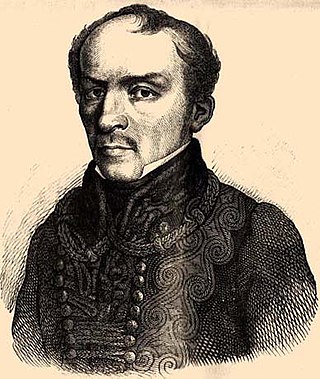 4
Felsőbüki Nagy Pál liberális nemesi politikus, országgyűlési követ, az MTA igazgatótanácsának tagja (1830).
4
Felsőbüki Nagy Pál liberális nemesi politikus, országgyűlési követ, az MTA igazgatótanácsának tagja (1830).
Vay Ádám (főkapitány)
 4
Vajai Vay Ádám kuruc szenátor, II. Rákóczi Ferenc udvari főkapitánya.
4
Vajai Vay Ádám kuruc szenátor, II. Rákóczi Ferenc udvari főkapitánya.
George Martinuzzi
 4
George Martinuzzi, O.S.P.P.E., was a Croatian nobleman, Pauline monk and Hungarian statesman who supported King John Zápolya and his son, King John Sigismund Zápolya. He was Bishop of Nagyvárad,...
4
George Martinuzzi, O.S.P.P.E., was a Croatian nobleman, Pauline monk and Hungarian statesman who supported King John Zápolya and his son, King John Sigismund Zápolya. He was Bishop of Nagyvárad,...
Ábrahám Ganz
 4
Ábrahám Ganz was a Swiss-born iron manufacturer, machine and technical engineer, entrepreneur, father of Ganz Works. He was the founder and the manager of the company that he made the flagship of the...
4
Ábrahám Ganz was a Swiss-born iron manufacturer, machine and technical engineer, entrepreneur, father of Ganz Works. He was the founder and the manager of the company that he made the flagship of the...
Miklós Izsó
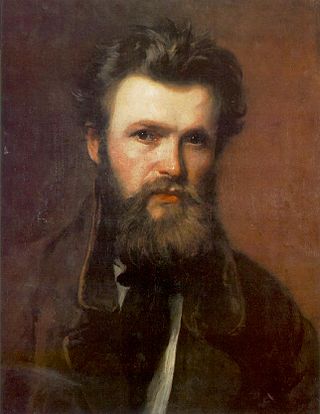 4
Miklós Izsó was a Hungarian sculptor whose sculptural style integrated elements of classicism and academic style.
4
Miklós Izsó was a Hungarian sculptor whose sculptural style integrated elements of classicism and academic style.
Nikola Jurišić
 4
Baron Nikola Jurišić was a Croatian nobleman, soldier, and diplomat.
4
Baron Nikola Jurišić was a Croatian nobleman, soldier, and diplomat.
Balázs Orbán
 4
Balázs Orbán, Baron of Lengyelfalva was a Hungarian author, ethnographic collector, parliamentarian, correspondent member of the Hungarian Academy of Sciences (1887).
4
Balázs Orbán, Baron of Lengyelfalva was a Hungarian author, ethnographic collector, parliamentarian, correspondent member of the Hungarian Academy of Sciences (1887).
Dennis Gabor
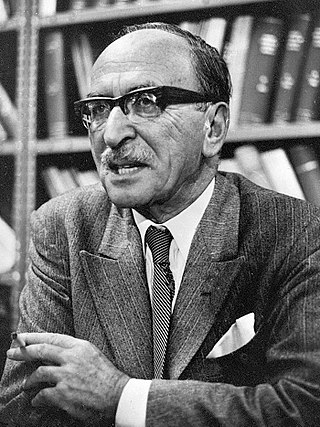 4
Dennis Gabor was a Hungarian-British electrical engineer and physicist who invented holography, for which he received the 1971 Nobel Prize in Physics. He obtained British citizenship in 1934, and...
4
Dennis Gabor was a Hungarian-British electrical engineer and physicist who invented holography, for which he received the 1971 Nobel Prize in Physics. He obtained British citizenship in 1934, and...
Zsigmondy Vilmos
 4
Zsigmondy Vilmos magyar bányamérnök, a Magyar Tudományos Akadémia tagja. A magyarországi artézi kutak fúrásának kialakítója és elterjesztője, Zsigmondy Richárd Nobel-díjas kémikus nagybátyja.
4
Zsigmondy Vilmos magyar bányamérnök, a Magyar Tudományos Akadémia tagja. A magyarországi artézi kutak fúrásának kialakítója és elterjesztője, Zsigmondy Richárd Nobel-díjas kémikus nagybátyja.
Margit Kaffka
 4
Margit Kaffka was a Hungarian writer and poet.
4
Margit Kaffka was a Hungarian writer and poet.
Panna Czinka
 4
Panna Czinka was a famous Hungarian-Romani violinist.
4
Panna Czinka was a famous Hungarian-Romani violinist.
János Csonka
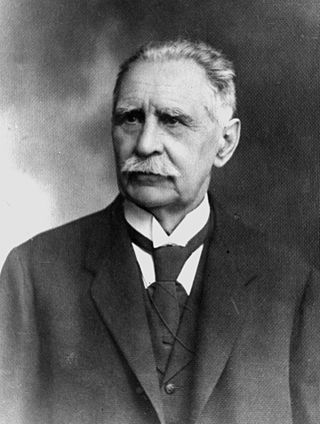 4
János Csonka was a Hungarian engineer, the co-inventor of the carburetor for the stationary engine with Donát Bánki, patented on 13 February 1893.
4
János Csonka was a Hungarian engineer, the co-inventor of the carburetor for the stationary engine with Donát Bánki, patented on 13 February 1893.
Lajos Pósa (mathematician)
 4
Lajos Pósa is a Hungarian mathematician working in the topic of combinatorics, and one of the most prominent mathematics educators of Hungary, best known for his mathematics camps for gifted...
4
Lajos Pósa is a Hungarian mathematician working in the topic of combinatorics, and one of the most prominent mathematics educators of Hungary, best known for his mathematics camps for gifted...
Leó Frankel
 3
Leó Frankel was a Hungarian socialist revolutionary and labour leader of Jewish descent.
3
Leó Frankel was a Hungarian socialist revolutionary and labour leader of Jewish descent.
Gönczy Pál
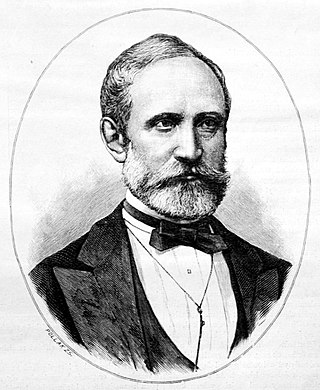 3
Gönczy Pál magyar pedagógus, a magyar népoktatásügy kiemelkedő képviselője, az MTA tagja.
3
Gönczy Pál magyar pedagógus, a magyar népoktatásügy kiemelkedő képviselője, az MTA tagja.
Victor Hugo
 3
Victor-Marie Hugo, vicomte Hugo, sometimes nicknamed the Ocean Man, was a French Romantic writer and politician. During a literary career that spanned more than sixty years, he wrote in a variety of...
3
Victor-Marie Hugo, vicomte Hugo, sometimes nicknamed the Ocean Man, was a French Romantic writer and politician. During a literary career that spanned more than sixty years, he wrote in a variety of...
Dezső Szilágyi
 3
Dezső Szilágyi was a Hungarian politician and jurist, who served as Minister of Justice between 1889 and 1895.
3
Dezső Szilágyi was a Hungarian politician and jurist, who served as Minister of Justice between 1889 and 1895.
Josef von Fodor
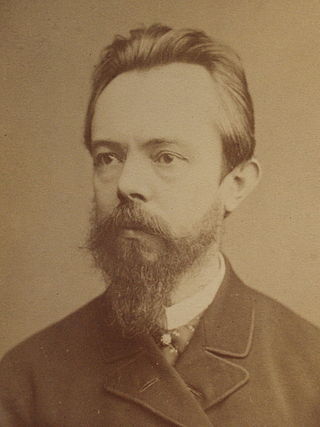 3
Josef von Fodor de Galánta was a Hungarian professor of hygiene at the University of Buda-Pesth and pioneer of public health.
3
Josef von Fodor de Galánta was a Hungarian professor of hygiene at the University of Buda-Pesth and pioneer of public health.
Róza Laborfalvi
 3
Róza Laborfalvi was a Hungarian noblewoman, actress and wife of novelist Mór Jókai de Ásva.
3
Róza Laborfalvi was a Hungarian noblewoman, actress and wife of novelist Mór Jókai de Ásva.
Gergely Czuczor
 3
Gergely Czuczor was a Hungarian Benedictine monk, a poet and linguist, member of the Hungarian Academy of Sciences. Baptized István he took Gergely (Gregory) as his religious name.
3
Gergely Czuczor was a Hungarian Benedictine monk, a poet and linguist, member of the Hungarian Academy of Sciences. Baptized István he took Gergely (Gregory) as his religious name.
Kálmán Széll
 3
Kálmán Széll de Duka et Szentgyörgyvölgy was a Hungarian politician who served as Prime Minister of Hungary from 1899 to 1903.
3
Kálmán Széll de Duka et Szentgyörgyvölgy was a Hungarian politician who served as Prime Minister of Hungary from 1899 to 1903.
Szigethy Attila
 3
Szigethy Attila magyar politikus, részt vett az 1956-os forradalomban.
3
Szigethy Attila magyar politikus, részt vett az 1956-os forradalomban.
Hock János (katolikus pap)
 3
Hock János katolikus plébános, politikus és író, a tiszavirág-életű Magyar Nemzeti Tanács elnöke.
3
Hock János katolikus plébános, politikus és író, a tiszavirág-életű Magyar Nemzeti Tanács elnöke.
Csermák Antal György
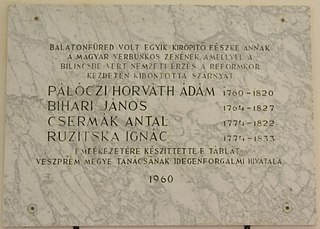 3
Csermák Antal György zeneszerző.
3
Csermák Antal György zeneszerző.
Lajos Áprily
 3
Lajos Áprily was a Hungarian poet and translator who won the 1954 Attila József Prize for his contributions to Hungarian literature. Áprily was born 14 November 1887 in Brassó, Austria-Hungary and...
3
Lajos Áprily was a Hungarian poet and translator who won the 1954 Attila József Prize for his contributions to Hungarian literature. Áprily was born 14 November 1887 in Brassó, Austria-Hungary and...
Mihály Székely
 3
Mihály Székely was a Hungarian bass singer famous for Mozartian roles. His name in Hungarian form is Székely Mihály, his original family name was Spagatner.
3
Mihály Székely was a Hungarian bass singer famous for Mozartian roles. His name in Hungarian form is Székely Mihály, his original family name was Spagatner.
Ferenc Kossuth
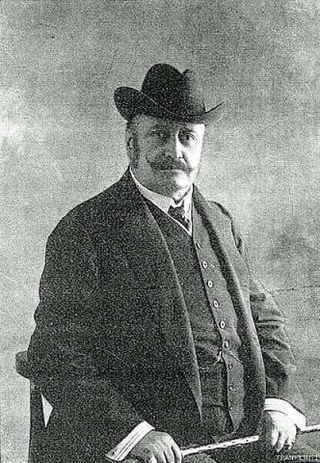 3
Ferenc Lajos Ákos Kossuth de Udvard et Kossuthfalva was a Hungarian civil engineer and politician.
3
Ferenc Lajos Ákos Kossuth de Udvard et Kossuthfalva was a Hungarian civil engineer and politician.
Ferenc Toldy
 3
Ferenc Toldy was a Hungarian literary critic.
3
Ferenc Toldy was a Hungarian literary critic.
Johannes Gutenberg
 3
Johannes Gensfleisch zur Laden zum Gutenberg was a German inventor and craftsman who introduced letterpress printing to Europe with his movable-type printing press. Though movable type was already in...
3
Johannes Gensfleisch zur Laden zum Gutenberg was a German inventor and craftsman who introduced letterpress printing to Europe with his movable-type printing press. Though movable type was already in...
Júlia Szendrey
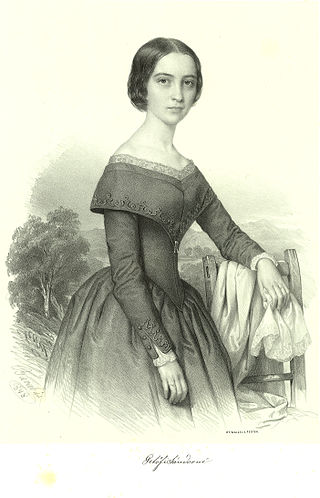 3
Júlia Szendrey was a Hungarian poet, writer and translator, most known as the wife of celebrated Hungarian poet Sándor Petőfi.
3
Júlia Szendrey was a Hungarian poet, writer and translator, most known as the wife of celebrated Hungarian poet Sándor Petőfi.
János Pásztor
 3
János Pásztor (1881–1945) was a renowned Hungarian academic sculptor in the first decades of the 20th century.
3
János Pásztor (1881–1945) was a renowned Hungarian academic sculptor in the first decades of the 20th century.
Margaret of Hungary (saint)
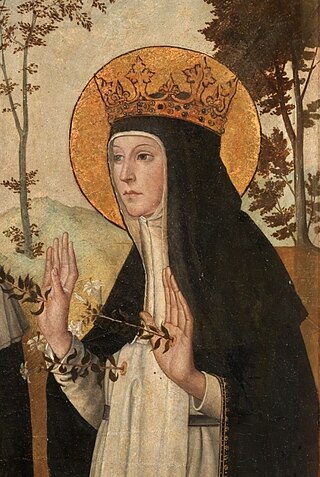 3
Margaret of Hungary, OP was a Dominican nun and the daughter of King Béla IV of Hungary and Maria Laskarina. She was the younger sister of Kinga of Poland (Kunegunda) and Yolanda of Poland and,...
3
Margaret of Hungary, OP was a Dominican nun and the daughter of King Béla IV of Hungary and Maria Laskarina. She was the younger sister of Kinga of Poland (Kunegunda) and Yolanda of Poland and,...
Ferenc Nagy
 3
Ferenc Nagy was a Hungarian politician of the Smallholders Party who served as Prime Minister of Hungary from 1946 until his forced resignation in 1947. He was also a Speaker of the National Assembly...
3
Ferenc Nagy was a Hungarian politician of the Smallholders Party who served as Prime Minister of Hungary from 1946 until his forced resignation in 1947. He was also a Speaker of the National Assembly...
Pál Maléter
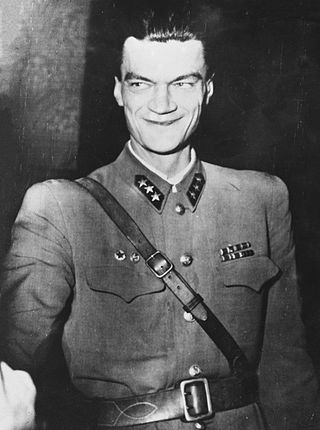 3
Pál Maléter was the military leader of the 1956 Hungarian Revolution.
3
Pál Maléter was the military leader of the 1956 Hungarian Revolution.
Miksa Déri
 3
Miksa Déri was a Hungarian electrical engineer, inventor, power plant builder. He contributed with his partners Károly Zipernowsky and Ottó Bláthy, in the development of the closed iron core...
3
Miksa Déri was a Hungarian electrical engineer, inventor, power plant builder. He contributed with his partners Károly Zipernowsky and Ottó Bláthy, in the development of the closed iron core...
Bókay János (író)
 3
Bókai Bókay János magyar író, műfordító.
3
Bókai Bókay János magyar író, műfordító.
Sándor Korányi
Mathiász János
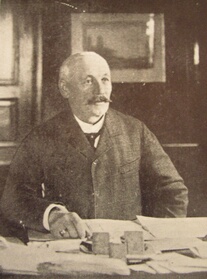 3
Mathiász János magyar szőlész-borász. A magyar és a világ szőlészetének és borászatának megmentőjeként végezte munkáját, amikor a filoxéra vész pusztította a szőlőtőkéket. Ez időben grandiózus...
3
Mathiász János magyar szőlész-borász. A magyar és a világ szőlészetének és borászatának megmentőjeként végezte munkáját, amikor a filoxéra vész pusztította a szőlőtőkéket. Ez időben grandiózus...
Csány László
 3
Csány László politikus, közmunka- és közlekedésügyi miniszter a Szemere-kormányban, táblabíró, az 1848–49-es szabadságharc vértanúja.
3
Csány László politikus, közmunka- és közlekedésügyi miniszter a Szemere-kormányban, táblabíró, az 1848–49-es szabadságharc vértanúja.
Gábor Klauzál
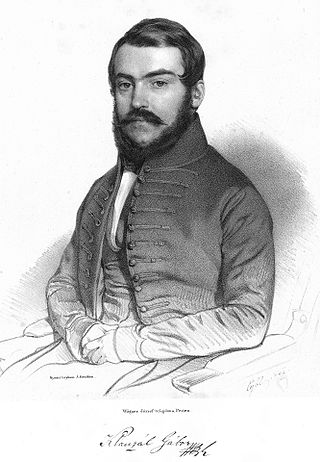 3
Gábor Klauzál de Szlavovicz was a Hungarian politician, who served as Minister of Agriculture, Industry and Trade during the Hungarian Revolution of 1848 in the first government of Hungary. He...
3
Gábor Klauzál de Szlavovicz was a Hungarian politician, who served as Minister of Agriculture, Industry and Trade during the Hungarian Revolution of 1848 in the first government of Hungary. He...
József Szabó de Szentmiklós
 3
József Szabó de Szentmiklós, Hungarian geologist, was born at Kalocsa. He was the brother of Ferenc Szabó.
3
József Szabó de Szentmiklós, Hungarian geologist, was born at Kalocsa. He was the brother of Ferenc Szabó.
Pope Urban I
 3
Pope Urban I, also known as Saint Urban (175?–230), was the bishop of Rome from 222 to 23 May 230. He was born in Rome and succeeded Callixtus I, who had been martyred. It was believed for centuries...
3
Pope Urban I, also known as Saint Urban (175?–230), was the bishop of Rome from 222 to 23 May 230. He was born in Rome and succeeded Callixtus I, who had been martyred. It was believed for centuries...
Lajos Bárdos
 3
Lajos Bárdos was a composer, conductor, music theorist, and professor of music at the Franz Liszt Academy of Music, in Budapest, Hungary, where he had previously studied under Albert Siklós and...
3
Lajos Bárdos was a composer, conductor, music theorist, and professor of music at the Franz Liszt Academy of Music, in Budapest, Hungary, where he had previously studied under Albert Siklós and...
Zsigmond Kemény
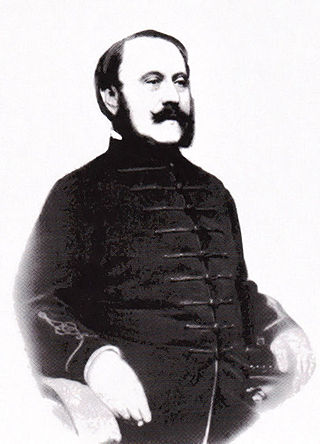 3
Baron Zsigmond Kemény was a writer from the Austrian Empire.
3
Baron Zsigmond Kemény was a writer from the Austrian Empire.
Thomas Edison
 3
Thomas Alva Edison was an American inventor and businessman. He developed many devices in fields such as electric power generation, mass communication, sound recording, and motion pictures. These...
3
Thomas Alva Edison was an American inventor and businessman. He developed many devices in fields such as electric power generation, mass communication, sound recording, and motion pictures. These...
Nagyváthy János
 3
Nagyváthy János az első magyar nyelvű rendszeres mezőgazdasági munka szerzője.
3
Nagyváthy János az első magyar nyelvű rendszeres mezőgazdasági munka szerzője.
Eusebius of Esztergom
 3
Blessed Eusebius of Esztergom was a Hungarian canon, hermit and the founder of the Order of Saint Paul the First Hermit.
3
Blessed Eusebius of Esztergom was a Hungarian canon, hermit and the founder of the Order of Saint Paul the First Hermit.
András Hadik
 3
Count András Hadik de Futak was a Hungarian nobleman and Field Marshal of the Imperial Army. He was Governor of Galicia and Lodomeria from January 1774 to June 1774, and is the father of Karl Joseph...
3
Count András Hadik de Futak was a Hungarian nobleman and Field Marshal of the Imperial Army. He was Governor of Galicia and Lodomeria from January 1774 to June 1774, and is the father of Karl Joseph...
Gáspár Heltai
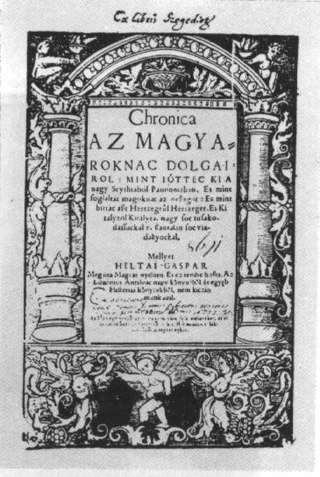 3
Gáspár Heltai was a Protestant writer and printer from Transylvania who produced many books in Hungarian. He was also the father of the sister-in-law of Ferenc Dávid.
3
Gáspár Heltai was a Protestant writer and printer from Transylvania who produced many books in Hungarian. He was also the father of the sister-in-law of Ferenc Dávid.
László Verebélÿ
 3
László Verebélÿ was a Hungarian university professor and electrical engineer. He worked in Hungary, Italy, Germany, Austria, England and the United States and did important work on the development of...
3
László Verebélÿ was a Hungarian university professor and electrical engineer. He worked in Hungary, Italy, Germany, Austria, England and the United States and did important work on the development of...
Károly Kernstok
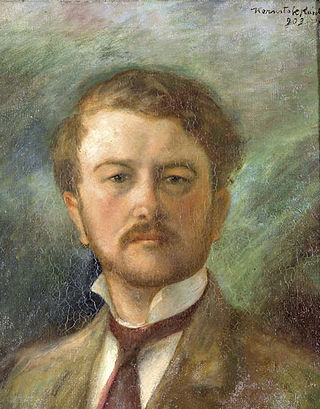 3
Károly Kernstok was a Hungarian painter. In the early twentieth century, he was known for being among the leading groups of Hungarian painters known as the "Neos" and The Eight (1909–1918), before...
3
Károly Kernstok was a Hungarian painter. In the early twentieth century, he was known for being among the leading groups of Hungarian painters known as the "Neos" and The Eight (1909–1918), before...
Kozma Ferenc (költő)
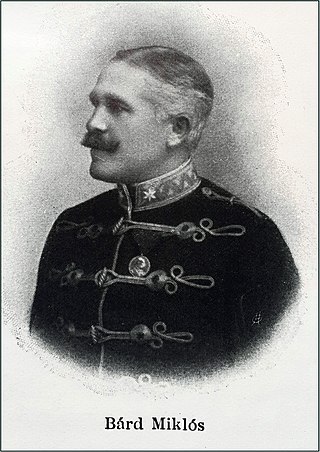 3
Leveldi Kozma Ferenc, írói nevein: Rimay Kálmán és Bárd Miklós magyar költő, katona. Kozma Andor (1861–1933) költő testvére, Kozma Sándor (1825–1897) jogász fia.
3
Leveldi Kozma Ferenc, írói nevein: Rimay Kálmán és Bárd Miklós magyar költő, katona. Kozma Andor (1861–1933) költő testvére, Kozma Sándor (1825–1897) jogász fia.
Ferenc Medgyessy
 3
Ferenc Medgyessy was a Hungarian sculptor and physician. After graduating in medicine he studied art in Paris, later he studied Michelangelo and the Etruscan art in Florence. His art was dominated by...
3
Ferenc Medgyessy was a Hungarian sculptor and physician. After graduating in medicine he studied art in Paris, later he studied Michelangelo and the Etruscan art in Florence. His art was dominated by...
Oszkár Jászi
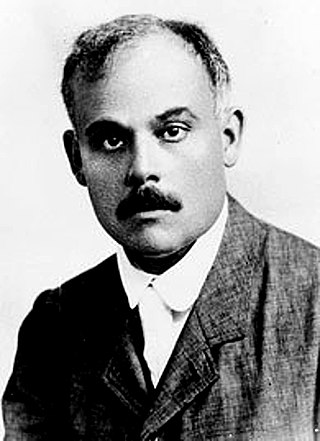 3
Oszkár Jászi, also known in English as Oscar Jászi, was a Hungarian social scientist, historian, and politician.
3
Oszkár Jászi, also known in English as Oscar Jászi, was a Hungarian social scientist, historian, and politician.
Lavotta János
 3
Izsépfalvi Lavotta János magyar zeneszerző, hegedűművész, a verbunkos delelő korszakának egyik kiváló képviselője. A verbunkos triász tagja. Művelt muzsikus volt, a nyugati kultúra hatása művein is...
3
Izsépfalvi Lavotta János magyar zeneszerző, hegedűművész, a verbunkos delelő korszakának egyik kiváló képviselője. A verbunkos triász tagja. Művelt muzsikus volt, a nyugati kultúra hatása művein is...
Ignác Alpár
 3
Ignác Alpár József was a Hungarian architect.
3
Ignác Alpár József was a Hungarian architect.
Károly Pap
 2
Károly Pap was a Hungarian writer.
2
Károly Pap was a Hungarian writer.
Irinyi József
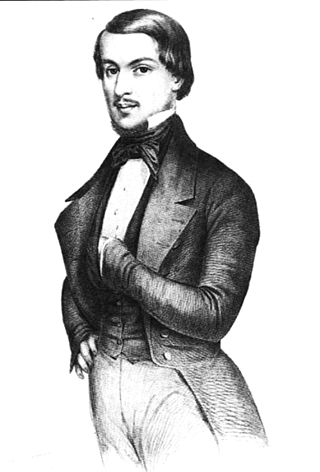 2
Irinyi Irinyi József magyar hírlapíró, műfordító, országgyűlési képviselő, Irinyi János öccse.
2
Irinyi Irinyi József magyar hírlapíró, műfordító, országgyűlési képviselő, Irinyi János öccse.
Podmaniczky Frigyes
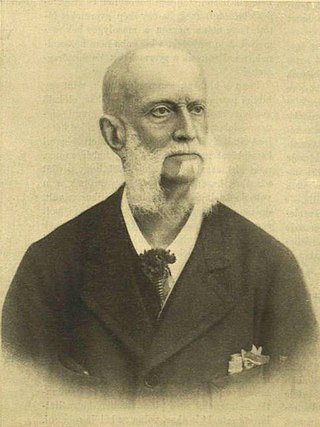 2
Báró podmanini és aszódi Podmaniczky Frigyes magyar politikus, író, valóságos belső titkos tanácsos, országgyűlési képviselő, a fővárosi közmunkatanács alelnöke, a Magyar Tudományos Akadémia levelező...
2
Báró podmanini és aszódi Podmaniczky Frigyes magyar politikus, író, valóságos belső titkos tanácsos, országgyűlési képviselő, a fővárosi közmunkatanács alelnöke, a Magyar Tudományos Akadémia levelező...
Milán Füst
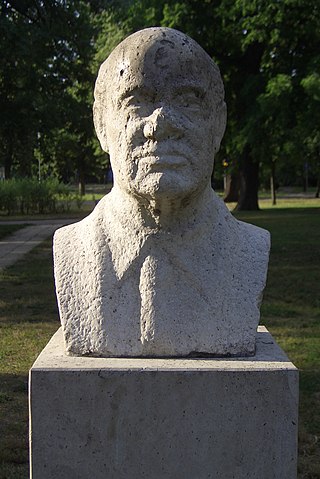 2
Milán Füst was a Hungarian writer, poet and playwright.
2
Milán Füst was a Hungarian writer, poet and playwright.
Jenő Heltai
 2
Jenő Heltai, until 1913 Eugen Herzl, was a Hungarian author, poet, journalist and producer. He was of Jewish descent, though he later converted to Christianity. Several of his novels and plays have...
2
Jenő Heltai, until 1913 Eugen Herzl, was a Hungarian author, poet, journalist and producer. He was of Jewish descent, though he later converted to Christianity. Several of his novels and plays have...
Ferenc Puskás
 2
Ferenc Puskás was a Hungarian footballer and manager, widely regarded as one of the greatest players of all time and the sport's first international superstar. A forward and an attacking midfielder,...
2
Ferenc Puskás was a Hungarian footballer and manager, widely regarded as one of the greatest players of all time and the sport's first international superstar. A forward and an attacking midfielder,...
Királyi Pál
 2
Királyi József Pál magyar publicista és országgyűlési képviselő.
2
Királyi József Pál magyar publicista és országgyűlési képviselő.
István Ferenczy
 2
István Ferenczy was a Hungarian sculptor.
2
István Ferenczy was a Hungarian sculptor.
Keleti Márton
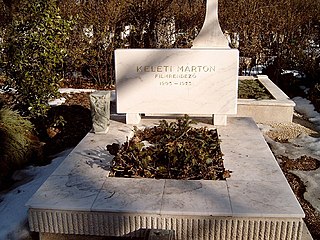 2
Keleti Márton háromszoros Kossuth-díjas magyar filmrendező, érdemes és kiváló művész.
2
Keleti Márton háromszoros Kossuth-díjas magyar filmrendező, érdemes és kiváló művész.
Falu Tamás
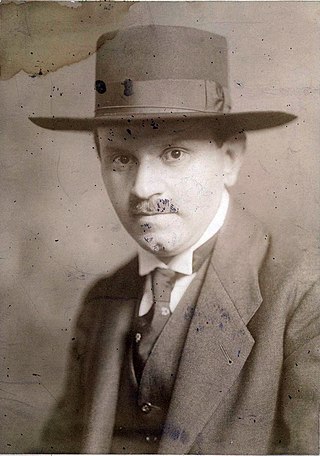 2
Falu Tamás magyar jogász, költő és regényíró. Sógora Bér Dezső festő, grafikus.
2
Falu Tamás magyar jogász, költő és regényíró. Sógora Bér Dezső festő, grafikus.
Szekfű Gyula
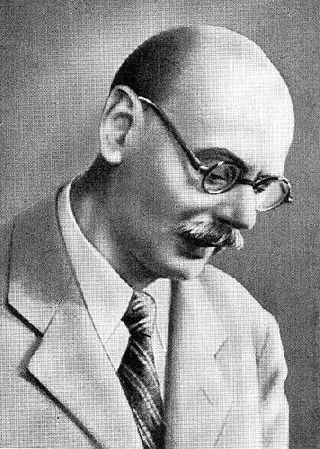 2
Szekfű Gyula Ignác magyar történész, publicista, egyetemi tanár, az MTA tagja, a kora újkori magyar történelem kutatója. A Három nemzedék szerzőjeként a Horthy-rendszer egyik fő ideológusa,...
2
Szekfű Gyula Ignác magyar történész, publicista, egyetemi tanár, az MTA tagja, a kora újkori magyar történelem kutatója. A Három nemzedék szerzőjeként a Horthy-rendszer egyik fő ideológusa,...
Vilmos Zsolnay
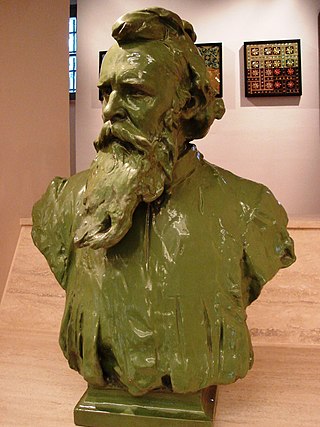 2
Vilmos Zsolnay was a Hungarian industrialist and entrepreneur. As the director of the Zsolnay porcelain manufacture he introduced new materials and inventions into the manufacture of pottery and...
2
Vilmos Zsolnay was a Hungarian industrialist and entrepreneur. As the director of the Zsolnay porcelain manufacture he introduced new materials and inventions into the manufacture of pottery and...
Cházár András
 2
Jólészi Cházár András a váci siketnéma intézet alapításának kezdeményezője, ügyvéd, megyei főjegyző. Az elesettek, fogyatékosok szószólója, 1790-ben a „szántóvető polgárság” nevében írott „esedező...
2
Jólészi Cházár András a váci siketnéma intézet alapításának kezdeményezője, ügyvéd, megyei főjegyző. Az elesettek, fogyatékosok szószólója, 1790-ben a „szántóvető polgárság” nevében írott „esedező...
Sibrik Miklós
 2
Szarvaskendi Sibrik Miklós a dunántúli birtokos nemes Sibrik család tagja, kuruc ezereskapitány, II. Rákóczi Ferenc fejedelemnek előbb főasztalnoka, majd 1708-tól viceudvarmestere. 1711 után urát a...
2
Szarvaskendi Sibrik Miklós a dunántúli birtokos nemes Sibrik család tagja, kuruc ezereskapitány, II. Rákóczi Ferenc fejedelemnek előbb főasztalnoka, majd 1708-tól viceudvarmestere. 1711 után urát a...
Berda József
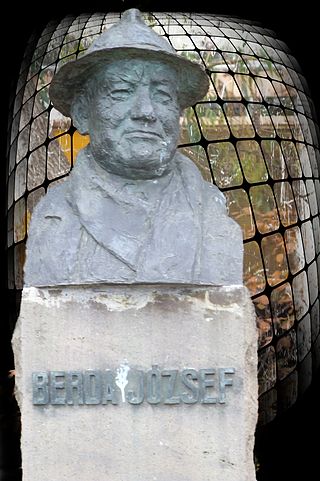 2
Berda József Baumgarten- és József Attila-díjas magyar költő.
2
Berda József Baumgarten- és József Attila-díjas magyar költő.
Ódry Árpád
 2
Ódry Árpád magyar színész, színiakadémiai tanár, rendező, színigazgató. Testvére Ódry Attila operaénekes.
2
Ódry Árpád magyar színész, színiakadémiai tanár, rendező, színigazgató. Testvére Ódry Attila operaénekes.
Robert Koch
 2
Heinrich Hermann Robert Koch was a German physician and microbiologist. As the discoverer of the specific causative agents of deadly infectious diseases including tuberculosis, cholera and anthrax,...
2
Heinrich Hermann Robert Koch was a German physician and microbiologist. As the discoverer of the specific causative agents of deadly infectious diseases including tuberculosis, cholera and anthrax,...
Bezerédj Pál
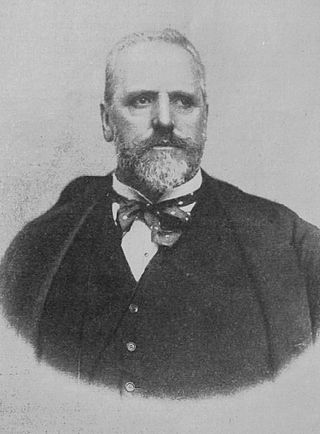 2
Bezerédj Pál, bezerédi, mezőgazdász, a magyar selyemhernyó-tenyésztés és selyemgyártás mentora.
2
Bezerédj Pál, bezerédi, mezőgazdász, a magyar selyemhernyó-tenyésztés és selyemgyártás mentora.
Baksay Sándor
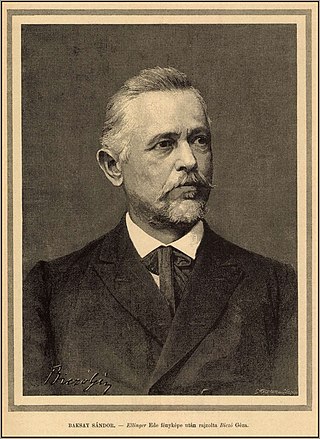 2
Baksay Sándor református lelkész, a Dunamelléki református egyházkerület püspöke 1904-től haláláig, szépíró, költő, műfordító, a Magyar Tudományos Akadémia tagja.
2
Baksay Sándor református lelkész, a Dunamelléki református egyházkerület püspöke 1904-től haláláig, szépíró, költő, műfordító, a Magyar Tudományos Akadémia tagja.
Faller Jenő
 2
Dr. Faller Jenő okleveles bányamérnök, a műszaki tudományok kandidátusa (1955), a Központi Bányászati Múzeum igazgatója, a Hazafias Népfront Sopron Városi Bizottságának elnöke, Sopron Város Tanácsa...
2
Dr. Faller Jenő okleveles bányamérnök, a műszaki tudományok kandidátusa (1955), a Központi Bányászati Múzeum igazgatója, a Hazafias Népfront Sopron Városi Bizottságának elnöke, Sopron Város Tanácsa...
Karikás Frigyes
 2
Karikás Frigyes, írói álnevein: Bálint, Katona Fjodor, K. F., Virág Ferenc író, politikus, újságíró, műfordító, pártmunkás.
2
Karikás Frigyes, írói álnevein: Bálint, Katona Fjodor, K. F., Virág Ferenc író, politikus, újságíró, műfordító, pártmunkás.
Károlyi István (politikus, 1845–1907)
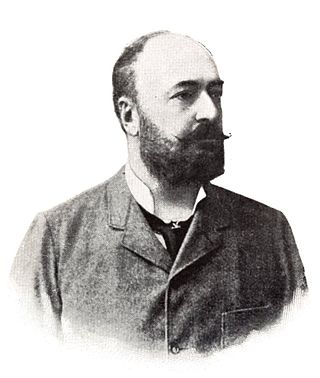 2
Nagykárolyi gróf Károlyi István politikus, a Magyar Tudományos Akadémia igazgatósági tagja. Liberális eszmei világú, többnyire pártonkívüli politikusként, országgyűlési képviselőként 1887-től vett...
2
Nagykárolyi gróf Károlyi István politikus, a Magyar Tudományos Akadémia igazgatósági tagja. Liberális eszmei világú, többnyire pártonkívüli politikusként, országgyűlési képviselőként 1887-től vett...
Joseph Szigeti
 2
Joseph Szigeti was a Hungarian violinist.
2
Joseph Szigeti was a Hungarian violinist.
Pállya Celesztin
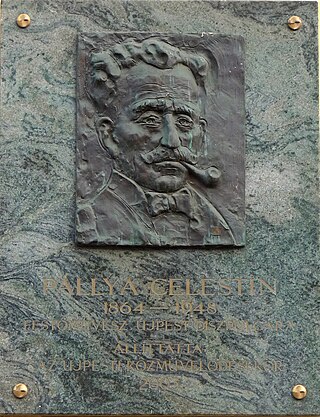 2
Pállya Celesztin festő.
2
Pállya Celesztin festő.
István Szőnyi
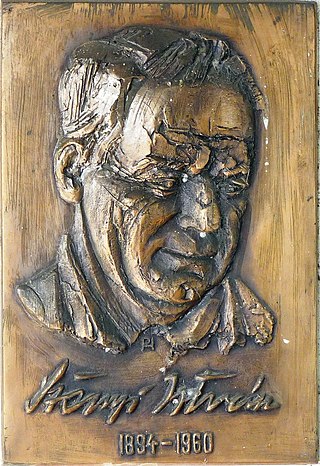 2
István Szőnyi (1894-1960) was a Hungarian painter and printmaker noted for works such as The Bend of the Danube and Zebegény. He and his family rescued Jews during the Holocaust. Hence they were...
2
István Szőnyi (1894-1960) was a Hungarian painter and printmaker noted for works such as The Bend of the Danube and Zebegény. He and his family rescued Jews during the Holocaust. Hence they were...
Hollán Ernő
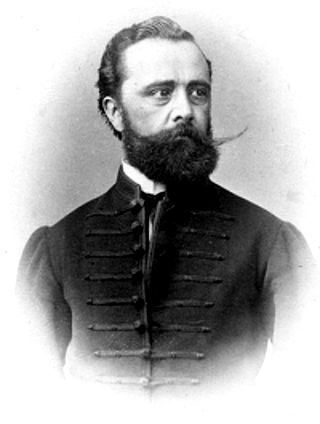 2
Kislődi Hollán Ernő, teljes nevén Hollán György Ernő János magyar hadmérnök, altábornagy, államtitkár, főrendiházi tag, valóságos belső titkos tanácsos, az MTA tagja, a Magyar Mérnök- és...
2
Kislődi Hollán Ernő, teljes nevén Hollán György Ernő János magyar hadmérnök, altábornagy, államtitkár, főrendiházi tag, valóságos belső titkos tanácsos, az MTA tagja, a Magyar Mérnök- és...
Adolf Fényes
 2
Adolf Fényes, originally Fischmann was a Hungarian painter of Jewish ancestry. He is best known for his cycle of paintings; The Life of a Poor Man and a series of still-lifes, done as table settings.
2
Adolf Fényes, originally Fischmann was a Hungarian painter of Jewish ancestry. He is best known for his cycle of paintings; The Life of a Poor Man and a series of still-lifes, done as table settings.
Katona István (történetíró)
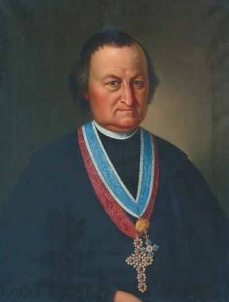 2
Katona István bölcseleti doktor, jezsuita pap, apát-kanonok, történetíró. Fő műve a hatalmas, 42 kötetes latin nyelvű magyar történelmi szintézis, a Historia critica regum Hungariae.
2
Katona István bölcseleti doktor, jezsuita pap, apát-kanonok, történetíró. Fő műve a hatalmas, 42 kötetes latin nyelvű magyar történelmi szintézis, a Historia critica regum Hungariae.
Tóth Kálmán (költő)
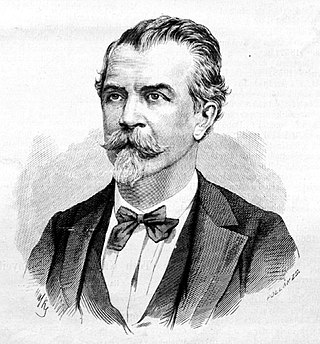 2
Tóth Albert Kálmán magyar költő, dráma- és újságíró, politikus, az MTA levelező, a Kisfaludy Társaság rendes tagja. Majthényi Flóra költő férje, akitől később elvált, Tóth Béla újságíró, filológus...
2
Tóth Albert Kálmán magyar költő, dráma- és újságíró, politikus, az MTA levelező, a Kisfaludy Társaság rendes tagja. Majthényi Flóra költő férje, akitől később elvált, Tóth Béla újságíró, filológus...
Pál Losonczi
 2
Pál Losonczi was a Hungarian communist political figure. He was Chairman of the Hungarian Presidential Council from 1967 to 1987.
2
Pál Losonczi was a Hungarian communist political figure. He was Chairman of the Hungarian Presidential Council from 1967 to 1987.
Karácsony Sándor
 2
Karácsony Sándor pedagógiai, filozófiai író, egyetemi tanár, magyar filozófiai gondolkodás egyik legeredetibb alakja.
2
Karácsony Sándor pedagógiai, filozófiai író, egyetemi tanár, magyar filozófiai gondolkodás egyik legeredetibb alakja.
József Tóth (geographer)
 2
József Tóth was a Hungarian geographer and academic, who served as Rector of the University of Pécs between 1997 and 2003.
2
József Tóth was a Hungarian geographer and academic, who served as Rector of the University of Pécs between 1997 and 2003.
Lipót Fejér
 2
Lipót Fejér was a Hungarian mathematician of Jewish heritage. Fejér was born Leopold Weisz, and changed to the Hungarian name Fejér around 1900.
2
Lipót Fejér was a Hungarian mathematician of Jewish heritage. Fejér was born Leopold Weisz, and changed to the Hungarian name Fejér around 1900.
Kálmány Lajos
 2
Kálmány Lajos magyar néprajzkutató, katolikus pap.
2
Kálmány Lajos magyar néprajzkutató, katolikus pap.
Ferenc Herczeg
 2
Ferenc Herczeg was a Hungarian playwright and author who promoted conservative nationalist opinion in his country.
He was nominated for the Nobel Prize in Literature three times.
2
Ferenc Herczeg was a Hungarian playwright and author who promoted conservative nationalist opinion in his country.
He was nominated for the Nobel Prize in Literature three times.
Koppány
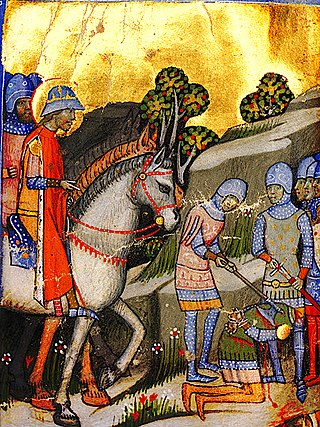 2
Koppány, also called Cupan was a Hungarian lord in the late 10th century and leader of pagans opposing the Christianization of Hungary. As the duke of Somogy, he laid claim to the throne based on the...
2
Koppány, also called Cupan was a Hungarian lord in the late 10th century and leader of pagans opposing the Christianization of Hungary. As the duke of Somogy, he laid claim to the throne based on the...
Wartha Vince
 2
Wartha Vince kémikus, borász, műegyetemi tanár, rektor, a Magyar Tudományos Akadémia tagja. 1899-től 1909-ig a Királyi Magyar Természettudományi Társulat elnöke.
2
Wartha Vince kémikus, borász, műegyetemi tanár, rektor, a Magyar Tudományos Akadémia tagja. 1899-től 1909-ig a Királyi Magyar Természettudományi Társulat elnöke.
Ányos Pál
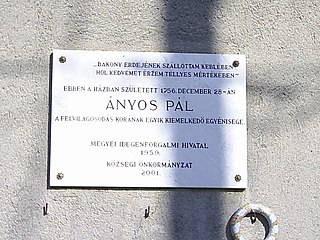 2
Fajszi Ányos Pál István pálos szerzetes, tanár, a magyar szentimentalizmus költészetének alakja.
2
Fajszi Ányos Pál István pálos szerzetes, tanár, a magyar szentimentalizmus költészetének alakja.
Gyula Wlassics
 2
Baron Gyula Wlassics de Zalánkemén was a Hungarian politician, who served as Minister of Religion and Education between 1895 and 1903.
2
Baron Gyula Wlassics de Zalánkemén was a Hungarian politician, who served as Minister of Religion and Education between 1895 and 1903.
Titusz Dugovics
 2
Titusz Dugovics or Titus Dugović was the alleged identity of an unknown Hungarian soldier who was stationed during the Siege of Belgrade by the Ottoman Empire's forces in Belgrade. However, the...
2
Titusz Dugovics or Titus Dugović was the alleged identity of an unknown Hungarian soldier who was stationed during the Siege of Belgrade by the Ottoman Empire's forces in Belgrade. However, the...
György Kmety
 2
György Kmety was a general in the Hungarian Army, and in the Ottoman Army under the name Ismail Pasha.
2
György Kmety was a general in the Hungarian Army, and in the Ottoman Army under the name Ismail Pasha.
Varga József (író)
 2
Varga József szlovéniai magyar pedagógus, író, költő, nyelvész.
2
Varga József szlovéniai magyar pedagógus, író, költő, nyelvész.
Hevesi Sándor
 2
Hevesi Sándor, születési nevén Hoffmann Sándor magyar rendező, egyetemi tanár, drámaíró, kritikus, író, műfordító, színházigazgató.
2
Hevesi Sándor, születési nevén Hoffmann Sándor magyar rendező, egyetemi tanár, drámaíró, kritikus, író, műfordító, színházigazgató.
Ervin Baktay
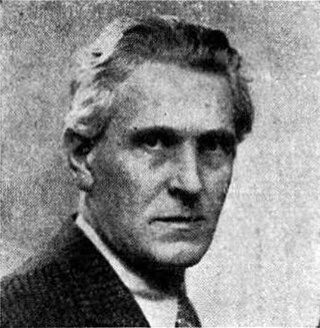 2
Ervin Baktay was an author noted for popularizing Indian culture in Hungary.
2
Ervin Baktay was an author noted for popularizing Indian culture in Hungary.
László Károly (műgyűjtő)
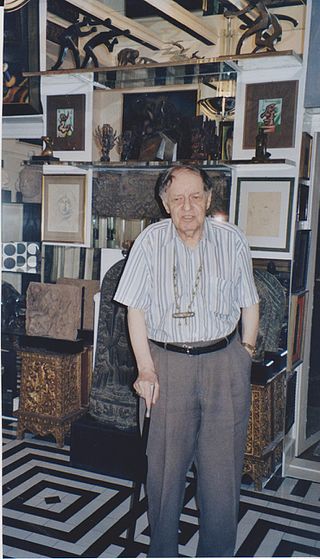 2
László Károly magyar-német-zsidó származású és identitású könyvkiadó, műgyűjtő, színész és író.
2
László Károly magyar-német-zsidó származású és identitású könyvkiadó, műgyűjtő, színész és író.
Joseph Haydn
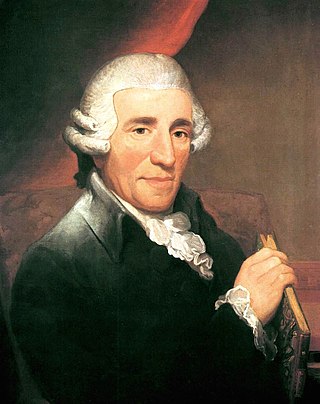 2
Franz Joseph Haydn was an Austrian composer of the Classical period. He was instrumental in the development of chamber music such as the string quartet and piano trio. His contributions to musical...
2
Franz Joseph Haydn was an Austrian composer of the Classical period. He was instrumental in the development of chamber music such as the string quartet and piano trio. His contributions to musical...
Mihály Mosonyi
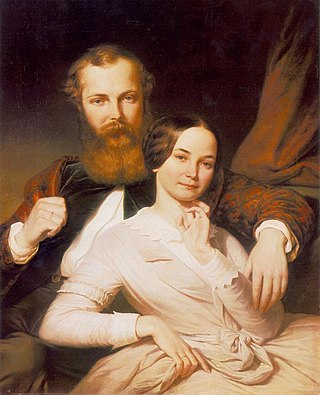 2
Mihály Mosonyi was a Hungarian composer. Born Michael Brand, he changed his name to Mosonyi in honor of the district of Moson, with Mihály being the Hungarian equivalent of "Michael". Like many of...
2
Mihály Mosonyi was a Hungarian composer. Born Michael Brand, he changed his name to Mosonyi in honor of the district of Moson, with Mihály being the Hungarian equivalent of "Michael". Like many of...
Győző Zemplén
 2
Győző Zemplén was a Hungarian physicist who worked in the fields of hydrodynamics and the kinetic theory of gases.
2
Győző Zemplén was a Hungarian physicist who worked in the fields of hydrodynamics and the kinetic theory of gases.
Balogh Ferenc (építész)
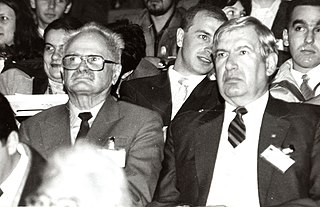 2
Balogh Ferenc romániai magyar építészmérnök. Balogh Edgár fia.
2
Balogh Ferenc romániai magyar építészmérnök. Balogh Edgár fia.
Hőgyes Endre
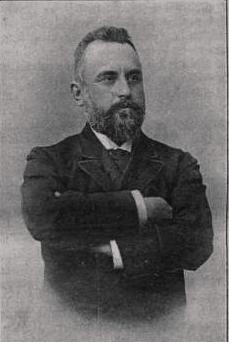 2
Hőgyes Endre orvos, egyetemi tanár, a Magyar Tudományos Akadémia tagja. A kísérleti orvostudomány kiemelkedő kutatója.
2
Hőgyes Endre orvos, egyetemi tanár, a Magyar Tudományos Akadémia tagja. A kísérleti orvostudomány kiemelkedő kutatója.
György Fejér
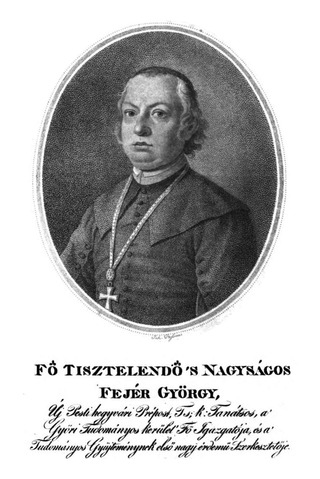 2
György Fejér was a Hungarian author, Provost – Canon, and Director of the Library, was born at Keszthely, in the county of Zala in Hungary.
2
György Fejér was a Hungarian author, Provost – Canon, and Director of the Library, was born at Keszthely, in the county of Zala in Hungary.
László Lajtha
 2
László Lajtha was a Hungarian composer, ethnomusicologist and conductor.
2
László Lajtha was a Hungarian composer, ethnomusicologist and conductor.
Gábor Dayka
 2
Gábor Dayka was a Hungarian poet.
2
Gábor Dayka was a Hungarian poet.
Sándor Vándor
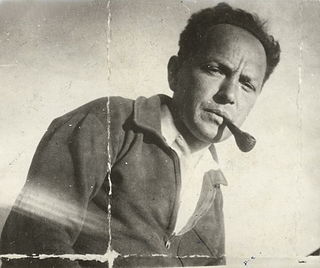 2
Sándor Vándor (1901–1945) was a Hungarian Jewish composer.
2
Sándor Vándor (1901–1945) was a Hungarian Jewish composer.
Friedrich Engels
 2
Friedrich Engels was a German philosopher, political theorist, historian, journalist, and revolutionary socialist. He was also a businessman and Karl Marx's closest friend and collaborator.
2
Friedrich Engels was a German philosopher, political theorist, historian, journalist, and revolutionary socialist. He was also a businessman and Karl Marx's closest friend and collaborator.
György Festetics
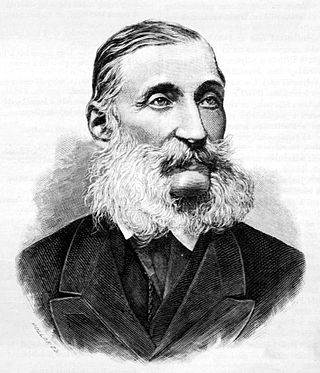 2
Count György László Festetics de Tolna was a Hungarian politician, who served as Minister besides the King between 1867 and 1871.
2
Count György László Festetics de Tolna was a Hungarian politician, who served as Minister besides the King between 1867 and 1871.
Ajtony
 2
Ajtony, Ahtum or Achtum was an early-11th-century ruler in the territory now known as Banat in present Romania and Serbia. His primary source is the Long Life of Saint Gerard, a 14th-century...
2
Ajtony, Ahtum or Achtum was an early-11th-century ruler in the territory now known as Banat in present Romania and Serbia. His primary source is the Long Life of Saint Gerard, a 14th-century...
Szelestey László (költő)
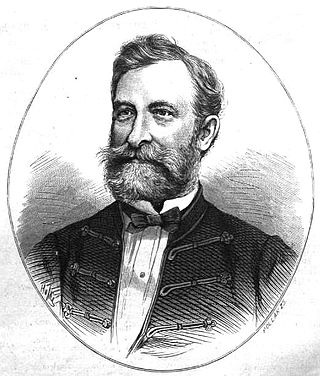 2
Alsószelestei Szelestey László Sándor lírikus és népies költő, ügyvéd, tanfelügyelő, királyi tanácsos, országgyűlési képviselő.
2
Alsószelestei Szelestey László Sándor lírikus és népies költő, ügyvéd, tanfelügyelő, királyi tanácsos, országgyűlési képviselő.
Flórián Albert
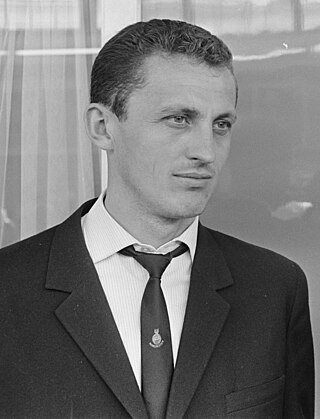 2
Flórián György Albert was a Hungarian professional football player, manager and sports official, who was named European Footballer of the Year in 1967. Nicknamed "The Emperor", he played as a...
2
Flórián György Albert was a Hungarian professional football player, manager and sports official, who was named European Footballer of the Year in 1967. Nicknamed "The Emperor", he played as a...
Ede Szigligeti
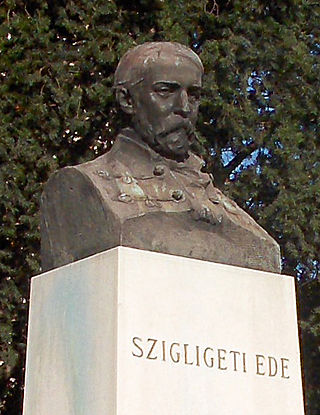 2
Ede Szigligeti was a Hungarian dramatist.
2
Ede Szigligeti was a Hungarian dramatist.
Mónus Illés
 2
Mónus Illés, álnevén Ács Tamás, születési nevén Brandstein Illés szociáldemokrata politikus, újságíró.
2
Mónus Illés, álnevén Ács Tamás, születési nevén Brandstein Illés szociáldemokrata politikus, újságíró.
Vadas Jenő
 2
Vadas Jenő, 1882-ig Vlkolinszky Jenő erdőmérnök, erdészeti szakíró, a magyarországi erdők főtanácsosa, a Bányászati és Erdészeti Akadémia tanára.
2
Vadas Jenő, 1882-ig Vlkolinszky Jenő erdőmérnök, erdészeti szakíró, a magyarországi erdők főtanácsosa, a Bányászati és Erdészeti Akadémia tanára.
Losonci István
 2
Losonci István Temesvár kapitánya, nagybirtokos, főnemes.
2
Losonci István Temesvár kapitánya, nagybirtokos, főnemes.
Tolnai Lajos (író)
 2
Tolnai Lajos, születési nevén Hagymássy Lajos író, publicista. A modern magyar irodalom egyik korai előhírnöke.
2
Tolnai Lajos, születési nevén Hagymássy Lajos író, publicista. A modern magyar irodalom egyik korai előhírnöke.
Bauer Sándor (mártír)
 2
Bauer Sándor autószerelő-tanuló, a kommunista elnyomás mártírja. Az emberi jogok eltiprása és a kommunista önkény ellen való tiltakozás jeléül 1969. január 20-án a Múzeumkertben nyilvánosan...
2
Bauer Sándor autószerelő-tanuló, a kommunista elnyomás mártírja. Az emberi jogok eltiprása és a kommunista önkény ellen való tiltakozás jeléül 1969. január 20-án a Múzeumkertben nyilvánosan...
Laszló Lovassy
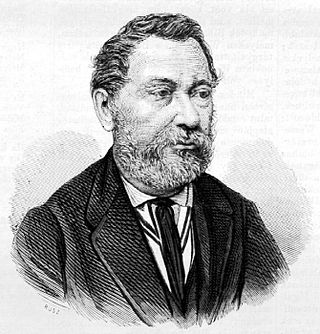 2
László Lovassy was one of the leaders of the Hungarian Revolution of 1848.
2
László Lovassy was one of the leaders of the Hungarian Revolution of 1848.
István Apáthy
 2
István Apáthy, also known as Stephan Apáthy (1863–1922), was a Hungarian zoologist and histologist, known for his work in medical science and microscope technique. He particularly studied...
2
István Apáthy, also known as Stephan Apáthy (1863–1922), was a Hungarian zoologist and histologist, known for his work in medical science and microscope technique. He particularly studied...
Kocsis Pál (színművész)
 2
Kocsis Pál Jászai Mari-díjas magyar színész, rendező, tanár.
2
Kocsis Pál Jászai Mari-díjas magyar színész, rendező, tanár.
Emília Márkus
 2
Emília Márkus,, was a Hungarian aristocrat, politician and the most renowned actress of her time in Hungary, known for her roles in a number of Hungarian theatrical and film productions, including...
2
Emília Márkus,, was a Hungarian aristocrat, politician and the most renowned actress of her time in Hungary, known for her roles in a number of Hungarian theatrical and film productions, including...
Pope John Paul II
 2
Pope John Paul II was head of the Catholic Church and sovereign of the Vatican City State from 1978 until his death in 2005.
2
Pope John Paul II was head of the Catholic Church and sovereign of the Vatican City State from 1978 until his death in 2005.
Sztárai Mihály
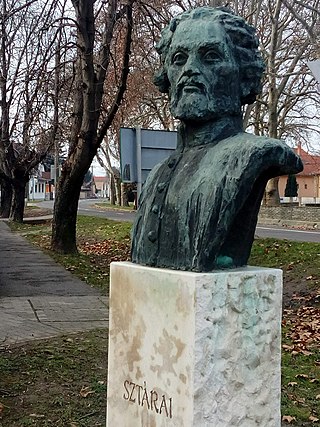 2
Sztárai Mihály reformátor, evangélikus lelkész, a Dunántúli evangélikus egyházkerület szuperintendense 1553-tól haláláig, énekszerző, a 16. századi magyar irodalom jelentős alakja.
2
Sztárai Mihály reformátor, evangélikus lelkész, a Dunántúli evangélikus egyházkerület szuperintendense 1553-tól haláláig, énekszerző, a 16. századi magyar irodalom jelentős alakja.
Pethe Ferenc
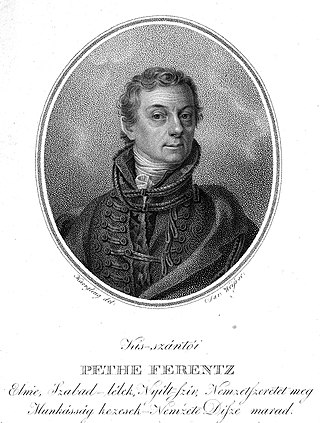 2
Pethe Ferenc újságíró, gazdasági szakíró, az első magyar gazdasági szaklap szerkesztője.
2
Pethe Ferenc újságíró, gazdasági szakíró, az első magyar gazdasági szaklap szerkesztője.
Tokaji Ferenc
 2
Tokaji Ferenc a hegyaljai kuruc felkelés vezére.
2
Tokaji Ferenc a hegyaljai kuruc felkelés vezére.
Jenő Huszka
 2
Jenő Huszka was a Hungarian composer of operettas.
2
Jenő Huszka was a Hungarian composer of operettas.
Simon Hollósy
 2
Simon Hollósy was a Hungarian painter. He was considered one of the greatest Hungarian representatives of 19th-century Naturalism and Realism.
2
Simon Hollósy was a Hungarian painter. He was considered one of the greatest Hungarian representatives of 19th-century Naturalism and Realism.
Pápay József (nyelvész)
 2
Pápay József nyelvész, a magyar finnugrisztika jelentős képviselője, a debreceni egyetem első magyar és finnugor nyelvészet professzora; Zichy Jenő harmadik expedíciójának tagja, az obi-ugor népek és...
2
Pápay József nyelvész, a magyar finnugrisztika jelentős képviselője, a debreceni egyetem első magyar és finnugor nyelvészet professzora; Zichy Jenő harmadik expedíciójának tagja, az obi-ugor népek és...
Péch Antal
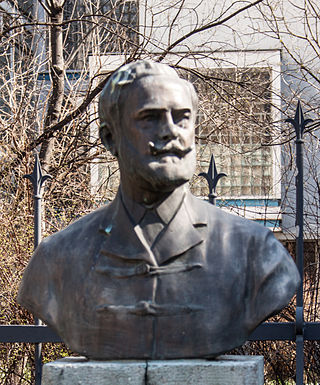 2
Péch Antal bányamérnök, az MTA tagja. A Bányászati és Kohászati Lapok megalapítója, első kiadója és szerkesztője. Péch József bátyja.
2
Péch Antal bányamérnök, az MTA tagja. A Bányászati és Kohászati Lapok megalapítója, első kiadója és szerkesztője. Péch József bátyja.
Reviczky Gyula
 2
Reviczky Gyula magyar költő, író.
2
Reviczky Gyula magyar költő, író.
Johann Wolfgang von Goethe
 2
Johann Wolfgang von Goethe was a German polymath and writer, who is widely regarded as the greatest and most influential writer in the German language. His work has had a profound and wide-ranging...
2
Johann Wolfgang von Goethe was a German polymath and writer, who is widely regarded as the greatest and most influential writer in the German language. His work has had a profound and wide-ranging...
Pál Kitaibel
 2
Pál Kitaibel was a Hungarian botanist and chemist.
2
Pál Kitaibel was a Hungarian botanist and chemist.
Szász Károly (költő, 1829–1905)
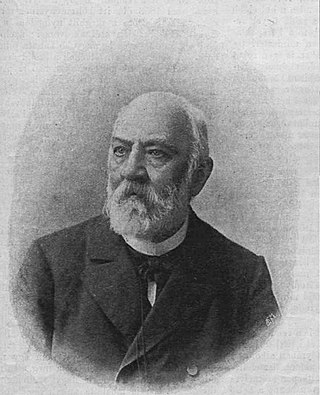 2
Szemerjai Szász Károly református lelkész, a Dunamelléki református egyházkerület püspöke 1884-től 1903-ig, emellett költő, drámaíró, műfordító, esztéta, politikus, a Magyar Tudományos Akadémia tagja.
2
Szemerjai Szász Károly református lelkész, a Dunamelléki református egyházkerület püspöke 1884-től 1903-ig, emellett költő, drámaíró, műfordító, esztéta, politikus, a Magyar Tudományos Akadémia tagja.
János Pilinszky
 2
János Pilinszky was one of the greatest Hungarian poets of the 20th century.
2
János Pilinszky was one of the greatest Hungarian poets of the 20th century.
Pálóczi Horváth Ádám
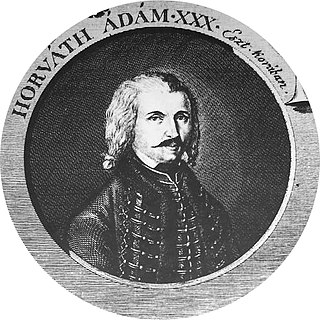 2
Pálóczi Horváth Ádám költő, író, hagyománygyűjtő. Kazinczy Klára költőnő férje.
2
Pálóczi Horváth Ádám költő, író, hagyománygyűjtő. Kazinczy Klára költőnő férje.
Saint Lawrence
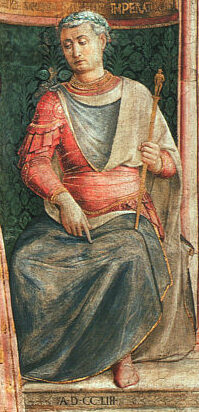 2
Saint Lawrence or Laurence was one of the seven deacons of the city of Rome under Pope Sixtus II who were martyred in the persecution of the Christians that the Roman Emperor Valerian ordered in 258.
2
Saint Lawrence or Laurence was one of the seven deacons of the city of Rome under Pope Sixtus II who were martyred in the persecution of the Christians that the Roman Emperor Valerian ordered in 258.
Beszédes József
 2
Beszédes József vízépítő mérnök, a Magyar Tudományos Akadémia levelező tagja.
2
Beszédes József vízépítő mérnök, a Magyar Tudományos Akadémia levelező tagja.
Péterfy Sándor
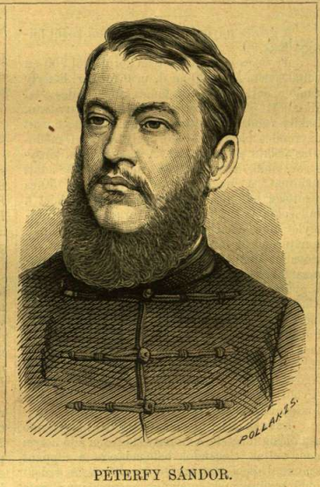 2
Péterfy Sándor állami tanítónőképző-intézeti tanár, tanügyi író.
2
Péterfy Sándor állami tanítónőképző-intézeti tanár, tanügyi író.
János Garay
 2
János Garay was a Hungarian poet and author, born in Szekszárd, Tolna County. From 1823 to 1828 he studied at Pécs, and subsequently, in 1829, at the University of Pest. In 1834 he brought out an...
2
János Garay was a Hungarian poet and author, born in Szekszárd, Tolna County. From 1823 to 1828 he studied at Pécs, and subsequently, in 1829, at the University of Pest. In 1834 he brought out an...
Jenő Rákosi
 2
Jenő Rákosi was a Hungarian writer, journalist, theater director, editor, and a member of Hungarian Academy of Sciences and Kisfaludy Society and a member of the Petőfi Association.
2
Jenő Rákosi was a Hungarian writer, journalist, theater director, editor, and a member of Hungarian Academy of Sciences and Kisfaludy Society and a member of the Petőfi Association.
Mansfeld Péter
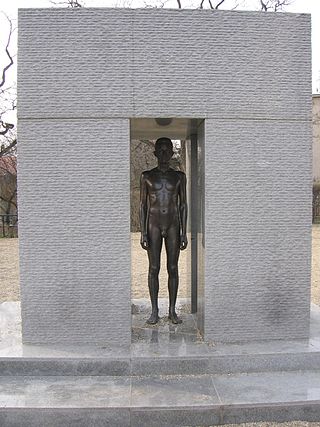 2
Mansfeld Péter vasesztergályos szakmunkástanuló, az 1956-os forradalmat követő megtorlások legfiatalabb áldozata. A „pesti srácok” egyikeként a Széna téri harcokban vett részt, a forradalom mártírja,...
2
Mansfeld Péter vasesztergályos szakmunkástanuló, az 1956-os forradalmat követő megtorlások legfiatalabb áldozata. A „pesti srácok” egyikeként a Széna téri harcokban vett részt, a forradalom mártírja,...
József Marek
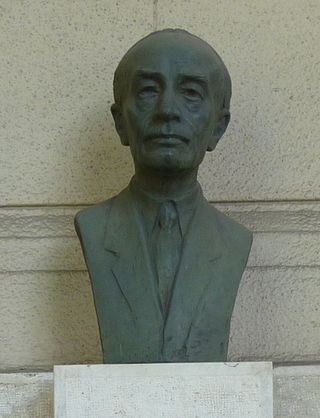 2
József Marek was a Hungarian veterinarian and scientist. Marek is best known for his discovery of the poultry disease that would eventually bear his name, Marek's disease. In his lifetime, Marek was...
2
József Marek was a Hungarian veterinarian and scientist. Marek is best known for his discovery of the poultry disease that would eventually bear his name, Marek's disease. In his lifetime, Marek was...
László Magyar
 2
László Magyar (1818–1864) was a Hungarian explorer and map-maker of Southwest Africa.
2
László Magyar (1818–1864) was a Hungarian explorer and map-maker of Southwest Africa.
Hatvany Lajos
 2
Hatvany Lajos, hatvani báró Kossuth-díjas magyar író, kritikus, irodalomtörténész, az MTA tagja; "az utolsó mecénás".
2
Hatvany Lajos, hatvani báró Kossuth-díjas magyar író, kritikus, irodalomtörténész, az MTA tagja; "az utolsó mecénás".
Öveges József
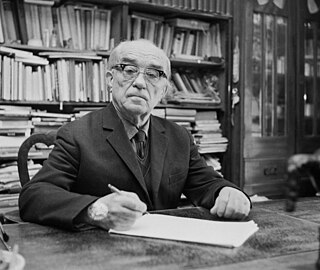 2
Öveges József piarista szerzetes, fizikus, pap, középiskolai és egyetemi tanár, cserkészvezető.
2
Öveges József piarista szerzetes, fizikus, pap, középiskolai és egyetemi tanár, cserkészvezető.
Féja Géza
 2
Féja Géza magyar író, újságíró, szerkesztő, állami polgári iskolai tanár.
2
Féja Géza magyar író, újságíró, szerkesztő, állami polgári iskolai tanár.
Bertalan Pór
 2
Bertalan Pór was a Hungarian painter associated with the development of modernist Hungarian art. He was a member of The Eight, a movement among several Hungarian painters in the early twentieth...
2
Bertalan Pór was a Hungarian painter associated with the development of modernist Hungarian art. He was a member of The Eight, a movement among several Hungarian painters in the early twentieth...
Karl Goldmark
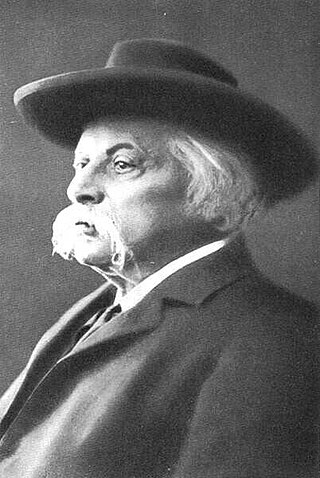 2
Karl Goldmark was a Hungarian-born Viennese composer.
2
Karl Goldmark was a Hungarian-born Viennese composer.
Révai Miklós
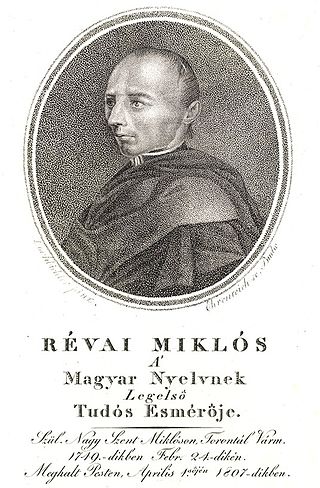 2
Révai Mátyás Miklós János piarista szerzetes, nyelvész, egyetemi tanár, a magyar történeti nyelvészet megalapítója. Máig élő helyesírási alapelvünket, a szóelemző elvet képviselte. Új nyelvészeti...
2
Révai Mátyás Miklós János piarista szerzetes, nyelvész, egyetemi tanár, a magyar történeti nyelvészet megalapítója. Máig élő helyesírási alapelvünket, a szóelemző elvet képviselte. Új nyelvészeti...
István Tisza
 2
Count István Imre Lajos Pál Tisza de Borosjenő et Szeged ; was a politician who served as prime minister of Hungary from 1903 to 1905 and from 1913 until 1917. He was also a political scientist,...
2
Count István Imre Lajos Pál Tisza de Borosjenő et Szeged ; was a politician who served as prime minister of Hungary from 1903 to 1905 and from 1913 until 1917. He was also a political scientist,...
Fürst Sándor
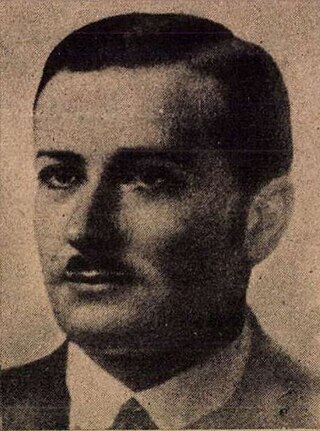 2
Fürst Sándor magyar kommunista politikus, a biatorbágyi merénylet elkövetésével ártatlanul megvádolt és kivégzett kommunisták egyike.
2
Fürst Sándor magyar kommunista politikus, a biatorbágyi merénylet elkövetésével ártatlanul megvádolt és kivégzett kommunisták egyike.
Leo Szilard
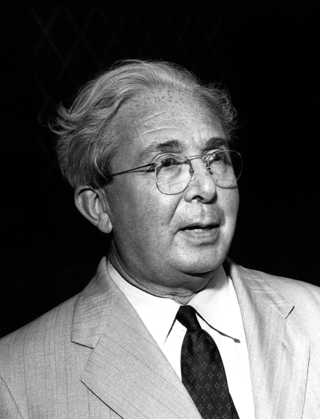 2
Leo Szilard was a Hungarian born physicist and inventor. He conceived the nuclear chain reaction in 1933, patented the idea in 1936, and in late 1939 wrote the letter for Albert Einstein's signature...
2
Leo Szilard was a Hungarian born physicist and inventor. He conceived the nuclear chain reaction in 1933, patented the idea in 1936, and in late 1939 wrote the letter for Albert Einstein's signature...
Lenkey János
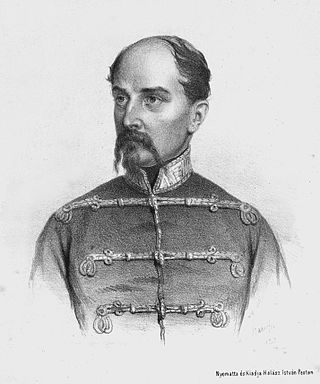 2
Lenkei és zádorfalvi Lenkey János 1848–49-es honvéd tábornok.
2
Lenkei és zádorfalvi Lenkey János 1848–49-es honvéd tábornok.
Kálmán Kittenberger
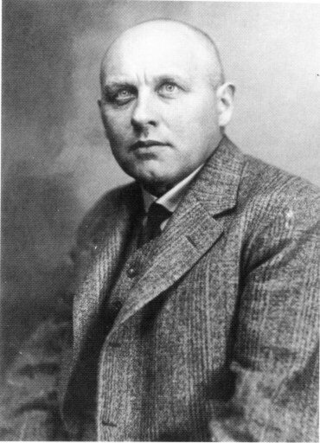 2
Kálmán Kittenberger was an Austro-Hungarian traveller, natural historian, biologist and collector. He was born in Léva, now in Slovakia (Levice).
2
Kálmán Kittenberger was an Austro-Hungarian traveller, natural historian, biologist and collector. He was born in Léva, now in Slovakia (Levice).
Zichy Péter
 2
Gróf zicsi és vázsonykői Zichy Péter Pál Keresztelő János Sándor Géza Miklós Nándor Ottó Béla jogász, emlékiratíró, a recski kényszermunkatábor egyik foglya.
2
Gróf zicsi és vázsonykői Zichy Péter Pál Keresztelő János Sándor Géza Miklós Nándor Ottó Béla jogász, emlékiratíró, a recski kényszermunkatábor egyik foglya.
Mihailo Vitković
 2
Mihailo Vitković was a Serbian and Hungarian poet, translator and lawyer. The well-to-do Serbian lawyer was an active participant in the organization and efflorescence of Hungarian and Serbian...
2
Mihailo Vitković was a Serbian and Hungarian poet, translator and lawyer. The well-to-do Serbian lawyer was an active participant in the organization and efflorescence of Hungarian and Serbian...
Prince Csaba
 2
In Hungarian mythology, Prince Csaba was the youngest son of Attila, King of the Huns. A fierce and skilled warrior, he led the Huns to victory in all the battles they encountered over the ages. He...
2
In Hungarian mythology, Prince Csaba was the youngest son of Attila, King of the Huns. A fierce and skilled warrior, he led the Huns to victory in all the battles they encountered over the ages. He...
Harsányi Kálmán
 2
Harsányi Kálmán magyar költő, író, drámaíró, színikritikus.
2
Harsányi Kálmán magyar költő, író, drámaíró, színikritikus.
Magda Szabó
 2
Magda Szabó was a Hungarian novelist. Doctor of philology, she also wrote dramas, essays, studies, memoirs, poetry and children's literature. She was a founding member of the Digital Literary...
2
Magda Szabó was a Hungarian novelist. Doctor of philology, she also wrote dramas, essays, studies, memoirs, poetry and children's literature. She was a founding member of the Digital Literary...
Sándor Sík
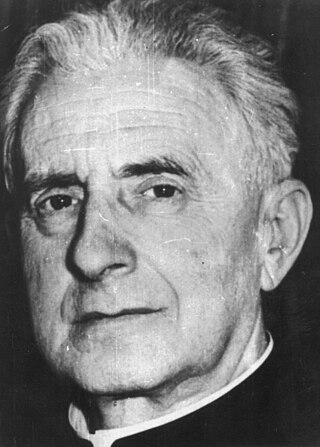 2
Sándor Sík was a Hungarian writer and priest, a representative of the New Catholic poetry in Hungary. He was a professor of literature at Szeged University from 1930; from 1948 he was the Piarist...
2
Sándor Sík was a Hungarian writer and priest, a representative of the New Catholic poetry in Hungary. He was a professor of literature at Szeged University from 1930; from 1948 he was the Piarist...
Imre Makovecz
 2
Imre Makovecz was a Hungarian architect active in Europe from the late 1950s onward.
2
Imre Makovecz was a Hungarian architect active in Europe from the late 1950s onward.
Endresz György
 2
Endresz György pilóta, repülőoktató.
2
Endresz György pilóta, repülőoktató.
Ignác Acsády
 2
Ignác Acsády was a Jewish-Hungarian historian, journalist, and fiction writer.
2
Ignác Acsády was a Jewish-Hungarian historian, journalist, and fiction writer.
Földes Ferenc (filozófus)
 2
Földes Ferenc magyar nyelvtanár, filozófus, író.
2
Földes Ferenc magyar nyelvtanár, filozófus, író.
Rónay György
 2
Rónay György József Attila-díjas (1967) költő, író, műfordító, esszéíró, irodalomkritikus, irodalomtörténész, országgyűlési képviselő.
2
Rónay György József Attila-díjas (1967) költő, író, műfordító, esszéíró, irodalomkritikus, irodalomtörténész, országgyűlési képviselő.
Sándor Wekerle
 2
Sándor Wekerle was a Hungarian politician who served three times as prime minister. He was the first non-noble to hold the office in Hungary.
2
Sándor Wekerle was a Hungarian politician who served three times as prime minister. He was the first non-noble to hold the office in Hungary.
Tormay Béla
 2
Nádudvari Tormay Béla György mezőgazdász, állatorvos professzor, számos állatgyógyászati alapmű szerzője.
2
Nádudvari Tormay Béla György mezőgazdász, állatorvos professzor, számos állatgyógyászati alapmű szerzője.
Besze János
 2
Megyeri Besze János magyar író, liberális politikus, ügyvéd, országgyűlési képviselő.
2
Megyeri Besze János magyar író, liberális politikus, ügyvéd, országgyűlési képviselő.
Bóna István
 2
Bóna István Széchenyi-díjas régészprofesszor, egyetemi tanár, az MTA tagja (1998).
2
Bóna István Széchenyi-díjas régészprofesszor, egyetemi tanár, az MTA tagja (1998).
Benkő István (esperes)
 2
Benkő István református esperes, egyházi író, lapszerkesztő.
2
Benkő István református esperes, egyházi író, lapszerkesztő.
András Mechwart
 2
András Mechwart de Belecska was a German-born Hungarian-German mechanical engineer, chief executive of the Ganz Works, and a pioneer in the Hungarian mechanical and electrical engineering. As an...
2
András Mechwart de Belecska was a German-born Hungarian-German mechanical engineer, chief executive of the Ganz Works, and a pioneer in the Hungarian mechanical and electrical engineering. As an...
Laszlo Toth
 2
Laszlo Toth is a Hungarian-born Australian geologist. He achieved worldwide notoriety when he vandalised Michelangelo's Pietà statue on 21 May 1972. He was not charged with a criminal offence after...
2
Laszlo Toth is a Hungarian-born Australian geologist. He achieved worldwide notoriety when he vandalised Michelangelo's Pietà statue on 21 May 1972. He was not charged with a criminal offence after...
Vidovszky Béla
 2
Vidovszky Béla festőművész.
2
Vidovszky Béla festőművész.
Wolfgang von Kempelen
 2
Johann Wolfgang Ritter von Kempelen de Pázmánd was a Hungarian author and inventor, known for his chess-playing "automaton" hoax The Turk and for his speaking machine.
2
Johann Wolfgang Ritter von Kempelen de Pázmánd was a Hungarian author and inventor, known for his chess-playing "automaton" hoax The Turk and for his speaking machine.
Franklin D. Roosevelt
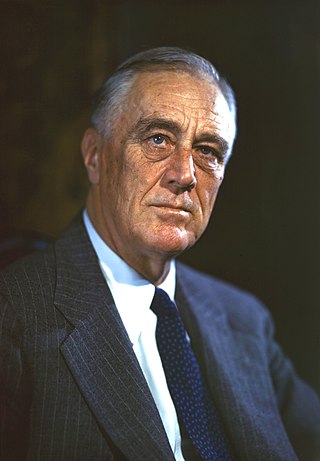 2
Franklin Delano Roosevelt, commonly known by his initials FDR, was an American statesman and politician who served as the 32nd president of the United States from 1933 until his death in 1945. He was...
2
Franklin Delano Roosevelt, commonly known by his initials FDR, was an American statesman and politician who served as the 32nd president of the United States from 1933 until his death in 1945. He was...
Robert Bosch
 2
Robert Bosch was a German industrialist, engineer and inventor, founder of Robert Bosch GmbH.
2
Robert Bosch was a German industrialist, engineer and inventor, founder of Robert Bosch GmbH.
Szabó Pál (író)
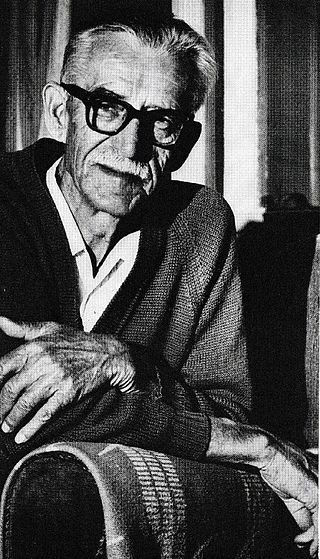 2
Szabó Pál kétszeres Kossuth-díjas magyar regényíró, politikus, elbeszélő.
2
Szabó Pál kétszeres Kossuth-díjas magyar regényíró, politikus, elbeszélő.
Nyáry Pál (politikus)
 2
Nyáregyházi Nyáry Pál politikus, Pest-Pilis-Solt-Kiskun vármegye alispánja, képviselő, az Országos Honvédelmi Bizottmány tagja, a régi nemes Nyáry család sarja.
2
Nyáregyházi Nyáry Pál politikus, Pest-Pilis-Solt-Kiskun vármegye alispánja, képviselő, az Országos Honvédelmi Bizottmány tagja, a régi nemes Nyáry család sarja.
Várkonyi István (politikus, 1852–1918)
 2
Várkonyi István szocialista politikus, vállalkozó, lapszerkesztő, az agrárszocialista mozgalom egyik vezetője.
2
Várkonyi István szocialista politikus, vállalkozó, lapszerkesztő, az agrárszocialista mozgalom egyik vezetője.
Ferenc Csik
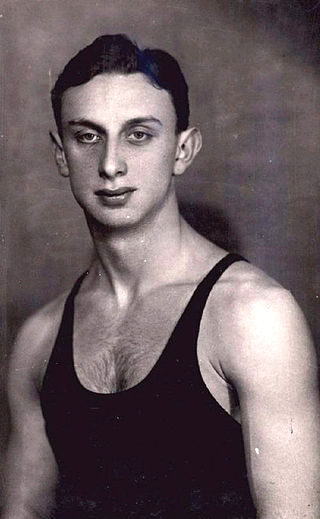 2
Ferenc Csik was a Hungarian swimmer who competed in the 1936 Summer Olympics.
2
Ferenc Csik was a Hungarian swimmer who competed in the 1936 Summer Olympics.
Ludwig van Beethoven
 2
Ludwig van Beethoven was a German composer and pianist. He is one of the most revered figures in the history of Western music; his works rank among the most performed of the classical music...
2
Ludwig van Beethoven was a German composer and pianist. He is one of the most revered figures in the history of Western music; his works rank among the most performed of the classical music...
Sándor Ferenczi
 2
Sándor Ferenczi was a Hungarian psychoanalyst, a key theorist of the psychoanalytic school and a close associate of Sigmund Freud.
2
Sándor Ferenczi was a Hungarian psychoanalyst, a key theorist of the psychoanalytic school and a close associate of Sigmund Freud.
Alexander Asboth
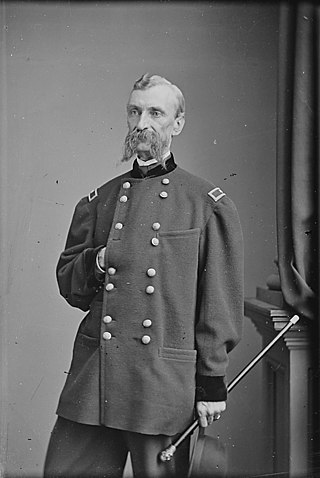 2
Alexander "Sandor" Asboth was a Hungarian military leader best known for his victories as a Union general during the American Civil War. He also served as United States Ambassador to Argentina and as...
2
Alexander "Sandor" Asboth was a Hungarian military leader best known for his victories as a Union general during the American Civil War. He also served as United States Ambassador to Argentina and as...
Pál Németh
 2
Pál Németh was a Hungarian sportsperson and later coach in hammer throwing.
2
Pál Németh was a Hungarian sportsperson and later coach in hammer throwing.
Gáspár András (író)
 2
Gáspár András magyar sci-fi és fantasy író, tevékeny formálója volt a kilencvenes évek alakulóban lévő magyarországi fantasztikus könyvkiadásának.
2
Gáspár András magyar sci-fi és fantasy író, tevékeny formálója volt a kilencvenes évek alakulóban lévő magyarországi fantasztikus könyvkiadásának.
Dési Huber István
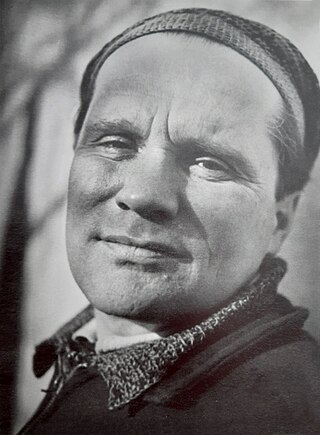 2
Dési Huber István posztumusz Kossuth-díjas (1958) magyar festőművész, grafikus. Huber Győző író öccse.
2
Dési Huber István posztumusz Kossuth-díjas (1958) magyar festőművész, grafikus. Huber Győző író öccse.
Károly Ferenczy
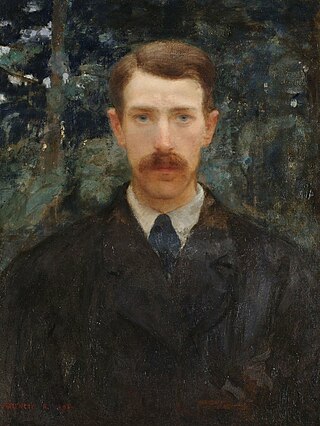 2
Károly Ferenczy was a Hungarian painter and leading member of the Nagybánya artists' colony.
2
Károly Ferenczy was a Hungarian painter and leading member of the Nagybánya artists' colony.
Zsigmond Széchenyi
Tamás Nádasdy
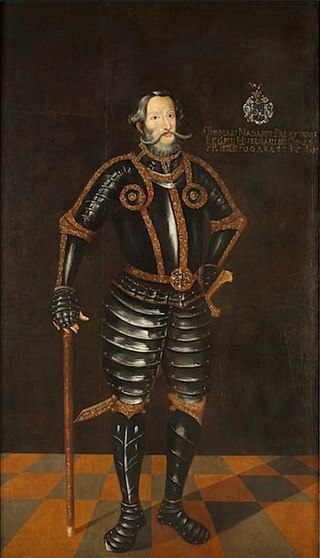 2
Baron Tamás Nádasdy de Nádasd et Fogarasföld (I), called the Great Palatine (1498–1562), was Hungarian nobleman, great landowner and a statesman.
2
Baron Tamás Nádasdy de Nádasd et Fogarasföld (I), called the Great Palatine (1498–1562), was Hungarian nobleman, great landowner and a statesman.
Márk Rózsavölgyi
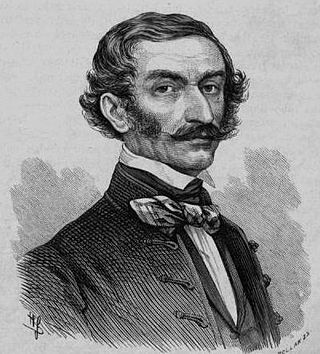 2
Márk Rózsavölgyi was a Hungarian composer and violinist. He has been called "the father of csárdás".
2
Márk Rózsavölgyi was a Hungarian composer and violinist. He has been called "the father of csárdás".
Lajos Haynald
 2
Stephan Franz Lajos Haynald was a Hungarian Archbishop of Kalocsa-Bács, naturalist, and cardinal.
2
Stephan Franz Lajos Haynald was a Hungarian Archbishop of Kalocsa-Bács, naturalist, and cardinal.
Károly Zipernowsky
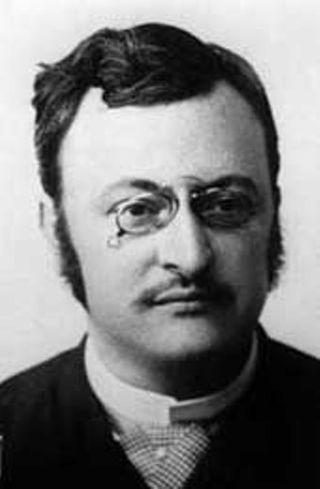 2
Károly Zipernowsky was an Austrian-born Hungarian electrical engineer. He invented the transformer with his colleagues at the famous Hungarian manufacturing company Ganz Works and he contributed...
2
Károly Zipernowsky was an Austrian-born Hungarian electrical engineer. He invented the transformer with his colleagues at the famous Hungarian manufacturing company Ganz Works and he contributed...
Kormos István
 2
Kormos István magyar költő, író, műfordító, dramaturg, kiadói szerkesztő; második felesége Rab Zsuzsa költőnő.
2
Kormos István magyar költő, író, műfordító, dramaturg, kiadói szerkesztő; második felesége Rab Zsuzsa költőnő.
Tibor Déry
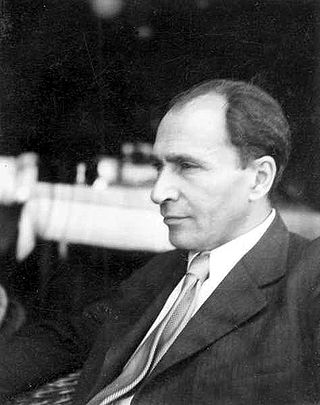 2
Tibor Déry was a Hungarian writer and poet. He also wrote under the names Tibor Dániel and Pál Verdes.
2
Tibor Déry was a Hungarian writer and poet. He also wrote under the names Tibor Dániel and Pál Verdes.
Pais Dezső
 2
Pais Dezső Kossuth-díjas magyar nyelvész, az MTA tagja.
2
Pais Dezső Kossuth-díjas magyar nyelvész, az MTA tagja.
József Galamb
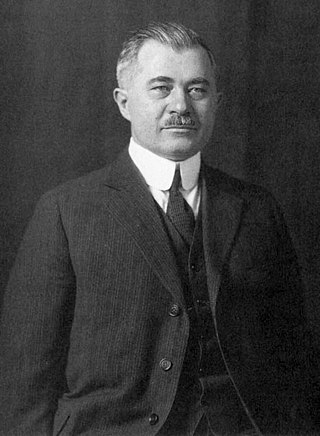 2
József Galamb was a Hungarian mechanical engineer, most known as main-engineer for designing the Ford Model T.
2
József Galamb was a Hungarian mechanical engineer, most known as main-engineer for designing the Ford Model T.
Endre Ságvári
 2
Endre Ságvári, was a Hungarian lawyer, communist and anti-fascist activist.
2
Endre Ságvári, was a Hungarian lawyer, communist and anti-fascist activist.
Lipp Vilmos
 2
Lipp Vilmos János bölcseleti doktor, régész, csorna-premontrei kanonok és főgimnáziumi igazgató.
2
Lipp Vilmos János bölcseleti doktor, régész, csorna-premontrei kanonok és főgimnáziumi igazgató.
Laky Demeter
 2
Laky Demeter pedagógiai író, műfordító, a csornapremontrei kanonok-rend perjele.
2
Laky Demeter pedagógiai író, műfordító, a csornapremontrei kanonok-rend perjele.
Bendefy László
 2
Bendefy László magyar földmérő mérnök (geodéta), geológus, történész, tudomány- és technikatörténész. 1934-ig születési nevén, Benda Lászlóként publikált, 1934-es munkái Bendefy-Benda László néven...
2
Bendefy László magyar földmérő mérnök (geodéta), geológus, történész, tudomány- és technikatörténész. 1934-ig születési nevén, Benda Lászlóként publikált, 1934-es munkái Bendefy-Benda László néven...
Saint Sebastian
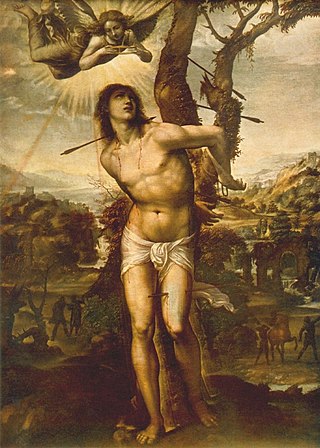 2
Sebastian was an early Christian saint and martyr. According to traditional belief, he was killed during the Diocletianic Persecution of Christians. He was initially tied to a post or tree and shot...
2
Sebastian was an early Christian saint and martyr. According to traditional belief, he was killed during the Diocletianic Persecution of Christians. He was initially tied to a post or tree and shot...
György Jendrassik
 2
György Jendrassik or George Jendrassik was a Hungarian physicist and mechanical engineer.
2
György Jendrassik or George Jendrassik was a Hungarian physicist and mechanical engineer.
Gyula Csortos
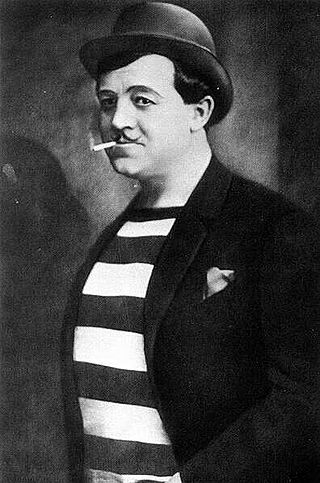 2
Gyula József Csortos was a Hungarian film and stage actor who appeared in 80 films between 1912 and 1944. He was born in Munkács and died in Budapest.
2
Gyula József Csortos was a Hungarian film and stage actor who appeared in 80 films between 1912 and 1944. He was born in Munkács and died in Budapest.
Pál Tomori
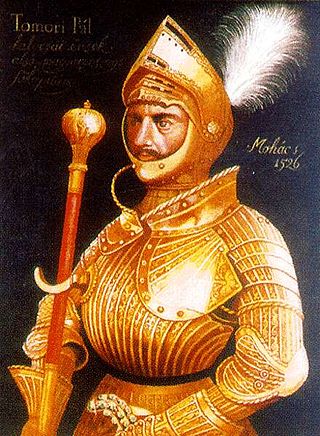 2
Pál Tomori was a Catholic monk and archbishop of Kalocsa, Hungary. He defeated an Ottoman army near Sremska Mitrovica in 1523.
2
Pál Tomori was a Catholic monk and archbishop of Kalocsa, Hungary. He defeated an Ottoman army near Sremska Mitrovica in 1523.
Holló László
 2
Holló László Kossuth-díjas magyar festő.
2
Holló László Kossuth-díjas magyar festő.
Péter Perényi
 2
Péter Perényi de Nagyida, son of Simon of the Perényi branch of the Šubić clan, was the head of Temes County from the end of the 14th century into the start of the 15th century. He also commanded...
2
Péter Perényi de Nagyida, son of Simon of the Perényi branch of the Šubić clan, was the head of Temes County from the end of the 14th century into the start of the 15th century. He also commanded...
Leo Tolstoy
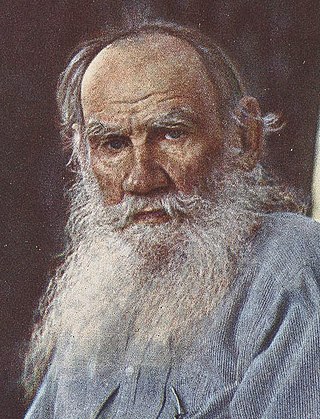 2
Count Lev Nikolayevich Tolstoy, usually referred to in English as Leo Tolstoy, was a Russian writer. He is regarded as one of the greatest and most influential authors of all time. He received...
2
Count Lev Nikolayevich Tolstoy, usually referred to in English as Leo Tolstoy, was a Russian writer. He is regarded as one of the greatest and most influential authors of all time. He received...
Bereczki Máté
 2
Bereczki Máté pomológus.
2
Bereczki Máté pomológus.
Katalin Varga
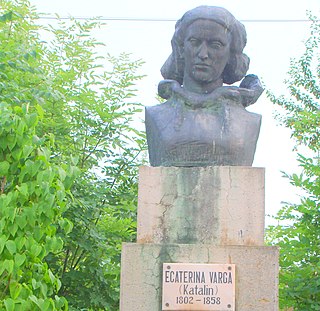 2
Katalin Varga was the leader of the Transylvanian Miners' Movement in the 1840s.
2
Katalin Varga was the leader of the Transylvanian Miners' Movement in the 1840s.
Kiss Bálint (lelkész)
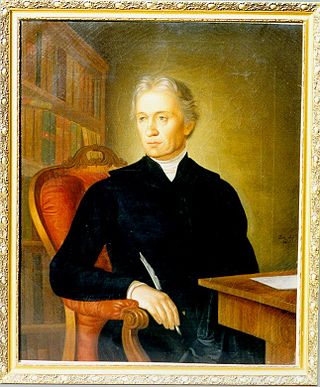 2
Kiss Bálint vagy Kis Bálint református lelkész, történész, pedagógus, a Magyar Tudós Társaság levelező tagja. Sokoldalú szakírói munkásságából különösen a magyar őstörténetre vonatkozó kutatásai és...
2
Kiss Bálint vagy Kis Bálint református lelkész, történész, pedagógus, a Magyar Tudós Társaság levelező tagja. Sokoldalú szakírói munkásságából különösen a magyar őstörténetre vonatkozó kutatásai és...
Bárczi Gusztáv
 2
Bárczi Gusztáv magyar orvos, gyógypedagógus.
2
Bárczi Gusztáv magyar orvos, gyógypedagógus.
Kanizsai Dorottya
 2
Kanizsai Dorottya (1490-1532 után) a 15. és 16. században élt magyar főúrnő, Kanizsai Miklós soproni ispán leánya. Születésének és halálának körülményei ismeretlenek. A források utoljára 1532-ben...
2
Kanizsai Dorottya (1490-1532 után) a 15. és 16. században élt magyar főúrnő, Kanizsai Miklós soproni ispán leánya. Születésének és halálának körülményei ismeretlenek. A források utoljára 1532-ben...
Karl Marx
 2
Karl Marx was a German-born philosopher, economist, political theorist, historian, sociologist, journalist, and revolutionary socialist. His best-known works are the 1848 pamphlet The Communist...
2
Karl Marx was a German-born philosopher, economist, political theorist, historian, sociologist, journalist, and revolutionary socialist. His best-known works are the 1848 pamphlet The Communist...
Árpád Göncz
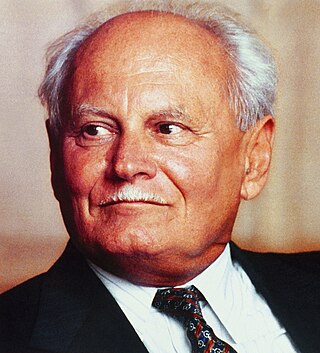 2
Árpád Göncz was a Hungarian writer, translator, lawyer, agronomist, and liberal politician who served as President of Hungary from 2 May 1990 to 4 August 2000. Göncz played a role in the Hungarian...
2
Árpád Göncz was a Hungarian writer, translator, lawyer, agronomist, and liberal politician who served as President of Hungary from 2 May 1990 to 4 August 2000. Göncz played a role in the Hungarian...
Sámuel Teleki (explorer)
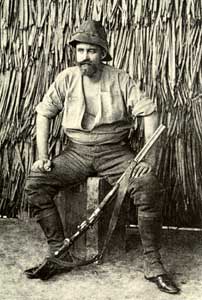 2
Count Sámuel Teleki de Szék was a Hungarian explorer who led the first expedition to Northern Kenya. He was the first European to see Lake Turkana.
2
Count Sámuel Teleki de Szék was a Hungarian explorer who led the first expedition to Northern Kenya. He was the first European to see Lake Turkana.
Vachott Sándor
 2
Vachottfalvi Vachott Sándor költő, író, ügyvéd, az MTA levelező tagja, a Kisfaludy Társaság rendes tagja, Vahot Imre bátyja.
2
Vachottfalvi Vachott Sándor költő, író, ügyvéd, az MTA levelező tagja, a Kisfaludy Társaság rendes tagja, Vahot Imre bátyja.
Matthias Bel
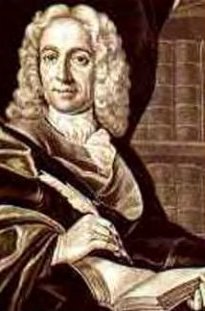 2
Matthias Bel or Matthias Bél was a Lutheran pastor and polymath from the Kingdom of Hungary. Bel was active in the fields of pedagogy, philosophy, philology, history, and theoretical theology; he was...
2
Matthias Bel or Matthias Bél was a Lutheran pastor and polymath from the Kingdom of Hungary. Bel was active in the fields of pedagogy, philosophy, philology, history, and theoretical theology; he was...
Bencze József (költő)
 2
Bencze József tanár, költő.
2
Bencze József tanár, költő.
Miklós Barabás
 2
Miklós Barabás was a Hungarian painter. He is mostly known for his portrait paintings, including a famous portrait of a young Franz Liszt, done in 1847 and an 1853 portrait of Emperor Franz Joseph I.
2
Miklós Barabás was a Hungarian painter. He is mostly known for his portrait paintings, including a famous portrait of a young Franz Liszt, done in 1847 and an 1853 portrait of Emperor Franz Joseph I.
Rudnay Gyula
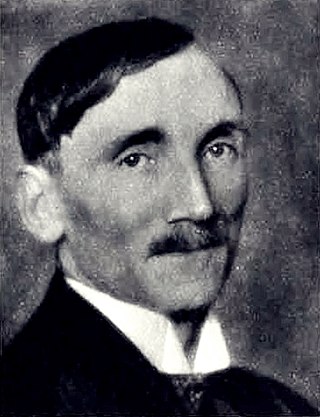 2
Rudnay Gyula János Corvin-lánccal kitüntetett, Kossuth-díjas magyar festőművész, grafikus, iparművész, főiskolai tanár; a bajai művésztelep megalapítója és vezetője.
2
Rudnay Gyula János Corvin-lánccal kitüntetett, Kossuth-díjas magyar festőművész, grafikus, iparművész, főiskolai tanár; a bajai művésztelep megalapítója és vezetője.